PARADISE

PLANS RAMP UP FOR 50TH ANNIVERSARY CELEBRATIONS
SHOWTIME
FOUR GREAT CULTURAL SHOWS COMING UP



PLANS RAMP UP FOR 50TH ANNIVERSARY CELEBRATIONS
SHOWTIME
FOUR GREAT CULTURAL SHOWS COMING UP

Paradise is the complimentary in-flight magazine of Air Niugini, Papua New Guinea’s international airline. The magazine is published by Business Advantage International.
BUSINESS ADVANTAGE INTERNATIONAL
PUBLISHING DIRECTOR
Andrew Wilkins
COMMERCIAL DIRECTOR
Robert Hamilton-Jones
ADVERTISING WITH US
Paradise is distributed in-seat on all Air Niugini international flights and selected domestic services. Additional circulation includes hotels, cafes and corporate offices in PNG. It is the country’s most-read magazine. To find out how to be seen in the magazine, contact our Advertising Sales Manager Robbie Milne @ rm@businessadvantageinternational.com

Business Advantage International Pty Ltd businessadvantageinternational.com
CORRESPONDENCE TO THE AIRLINE
The Chief Executive Officer Air Niugini
PO Box 7186, Boroko, NCD, Papua New Guinea Tel +675 327 3498 Fax +675 327 3550
EDITOR
Robert Upe
STAFF WRITERS
Charlotte Armstrong, Nadav Shemer Shlezinger
CONTRIBUTORS
John Brooksbank, Paul Chai, Greg Clarke, Ricky French, Bronwen Gora, Belinda Jackson, Godfreeman Kaptigau, Lemach Lavari, Lennox Matainaho, Theresa Patterson, Roan Paul, Craig Tansley, Mary Tao
AIR NIUGINI EDITORIAL CONSULTANT
Illan Kaprangi
DESIGN
Alicia Freile, Peter Schofield
PROOFREADER
Sally Woollett
Editorial inquiries paradise@businessadvantageinternational.com airniuginiparadise.com
Printed in Australia. Both printer and paper manufacturer for this publication are accredited to ISO14001, the internationally recognised standard for environmental management. This publication is printed using vegetable inks and the stock is elemental chlorine free and manufactured using sustainable forestry practices.
Some of the articles in this publication are edited versions of those first published on the online PNG business magazine, businessadvantagepng.com.
Unsolicited manuscripts, artwork, transparencies and photographs are submitted at the sender’s risk. While all care will be taken, neither the publishers nor the airline will accept responsibility for accidental loss or damage. No part of this publication may be reproduced without the written permission of the publisher. Statements, opinions and points of view expressed by the writers are their own and do not necessarily represent those of the publisher, editor, or the airline. Information contained in this publication may be correct only at the time it was originally obtained by the writers and may be subject to change at any time and without notice. © Copyright. 2025. All rights reserved.

For the use of Arti cial Intelligence (AI) to automate the processing of invoices from suppliers.
For the use of Artificial Intelligence (AI) to automate the processing of invoices from





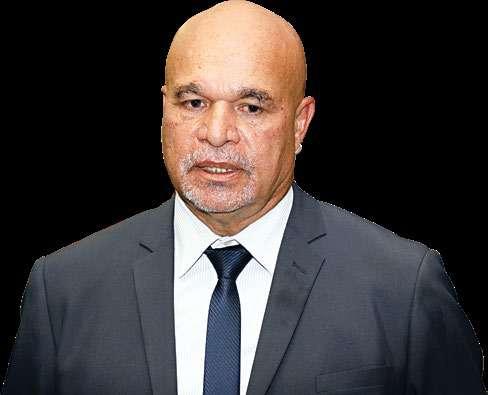


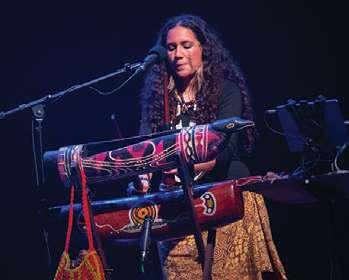


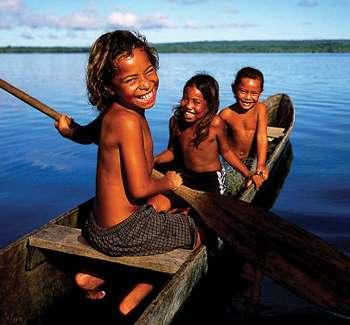




As Papua New Guinea proudly prepares to commemorate its golden jubilee, marking 50 extraordinary years of independence, we at Air Niugini are deeply honoured to join the nation in celebrating this historic milestone. It is a moment of profound reflection, celebration and anticipation, as together we embrace our past and look towards a vibrant future.
Much like our emblem, the majestic bird of paradise, PNG has soared through these five decades with beauty, resilience and a unique spirit that captivates the world. The bird of paradise, symbolic of our national pride, is not only at the heart of our cultural identity but also inspires Air Niugini’s own commitment to excellence through our signature ‘Bird of Paradise Service’. Each journey on board our aircraft is a promise of warmth, hospitality and the true spirit of PNG.
This anniversary also marks a transformative era for Air Niugini as we welcome the arrival of our first Airbus A220 aircraft this September, aligning with our national celebrations. Over the next four years, our fleet renewal program will see the introduction of 11 Airbus A220s and new Boeing Dreamliners, symbolising our unwavering dedication to connecting PNG internally and with the world. These aircraft represent not only technological advancement and sustainability, but also our pledge to enhance passenger comfort, elevate our service quality, and boost the economic potential and tourism opportunities for our beautiful country.
In this special edition of Paradise, readers will receive an exclusive glimpse of the vibrant celebrations planned to mark 50 years of independence. Port Moresby will serve as the epicentre of these
festivities, featuring a dazzling array of cultural festivals, unity parades, music concerts, military demonstrations, carols by the sea, and potentially even a royal visit by King Charles III.
Jacksons International Airport will experience increased activity as additional aircraft bring international guests and dignitaries, while Port Moresby Harbour will welcome regional ships carrying senior officials.
Sir John Guise Stadium will host spectacular performances by military bands from nations such as the UK, France, Japan, India, Australia, New Zealand, Tonga and Fiji. Various city locations will showcase community-driven cultural and music festivals, unity floats and parades, highlighting traditional skills like bilum making and indigenous cuisine, alongside vibrant displays by ethnic communities. Additionally, readers will enjoy compelling personal stories from Papua New Guineans reflecting on their experiences since independence, complemented by insights into the nation’s thriving economic activities, such as the booming coffee export sector.
When the National Airline Commission, later Air Niugini, was first conceived alongside PNG’s own currency under the visionary stewardship of the late Sir Julius Chan, it was with the vision to ensure the success of our nation’s independence. As with any young country, we have faced our share of challenges; yet equally, we have celebrated tremendous achievements and milestones.
Today, there is much to commemorate – and Air Niugini remains proud to play an integral role in our nation’s ongoing success story. And though we may come from many tribes, clans, cultures and countries, the 2000 men and women who make up the Air Niugini family are staunchly and unquestionably Papua New Guinean, embodying the nation’s strength and spirit every day.
Congratulations, PNG – together, we soar higher!
Bamahuta! Lukim yu bihain.
Gary Seddon Chief Executive Officer

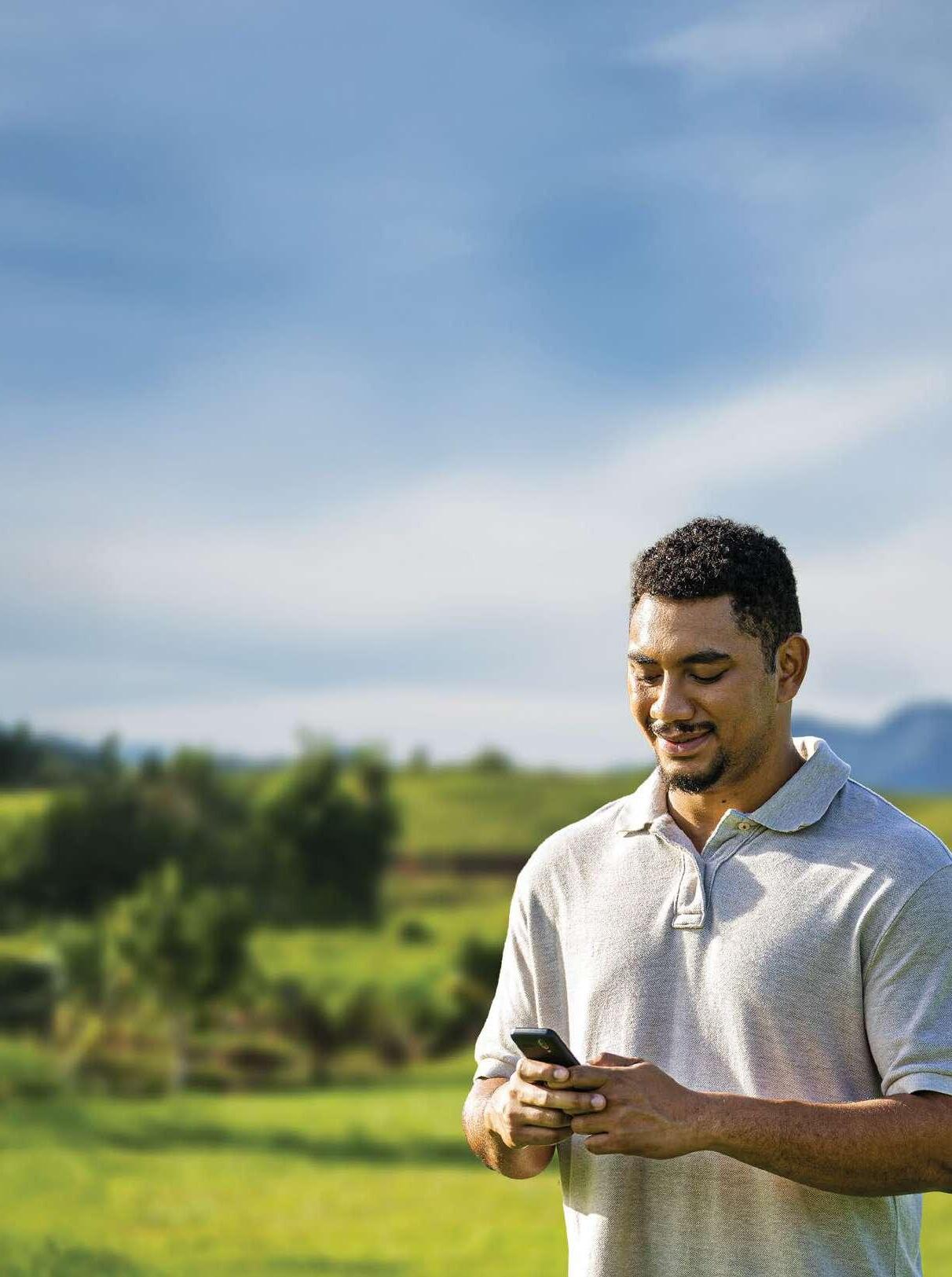
The Deputy Prime Minister and Member for Lae speaks to Lemach Lavari about his hopes for PNG’s second-largest city, developments in the
town and plans for 50th independence celebrations.
Q: Can you tell us a bit about yourself?
A: I’d like to call myself a reluctant politician because I never wanted to run for public office, but this is now my second term in parliament. It was the overwhelming desire of some people in my community who pushed me into politics.
Lae needed a firm hand with good management skills and coming from a business background I try to provide that. Before politics I was a businessman, and I also worked as a police patrol officer in the Highlands.
Q: What do you see as some of your achievements?
A: My main aim for Lae has been to improve management of resources and to invest in building a safe and conducive city that supports business development and a thriving community.
One of the first things I did was to establish the Lae City Authority (LCA). The LCA manages the affairs of the city. Secondly, I have obtained increased government funding with tax returns through an agreement with our national tax office.
So, we now have an efficient governance structure with considerable government funding. The result has been an 80 per cent decrease in major crime through our partnership with the police and local communities. If you grew up in Lae in the 80s and 90s, it was known as the crime capital of PNG. It is much safer now.
Our investment in education has seen more students having access to better education
and, in turn, more of them are graduating from secondary schooling into universities and colleges in the country.
Also, we’ve never had a reliable ambulance service in Lae until now. The St John Ambulance do a tremendous job in responding to medical emergencies in the city and surrounds. LCA fully funds the St John Ambulance.
We’ve also improved road systems within the residential and business areas in the city.
The dream is to make Lae the most model urban centre in PNG; the safest, secure
where pioneer American pilot Amelia Earhart took off from in 1937, and we have caves that were used as hospitals during the war.
The annual Morobe Show, which is the largest agricultural show in the country, takes place every September in Lae. It exhibits PNG’s agriculture, industries and culture. The event brings together almost 80,000 people over a week. Moreover, from Lae, you have access to travel out to some good diving spots in Salamaua or to visit the waterfalls of Finschhafen.
Q: What kind of development do you want to see in Lae?
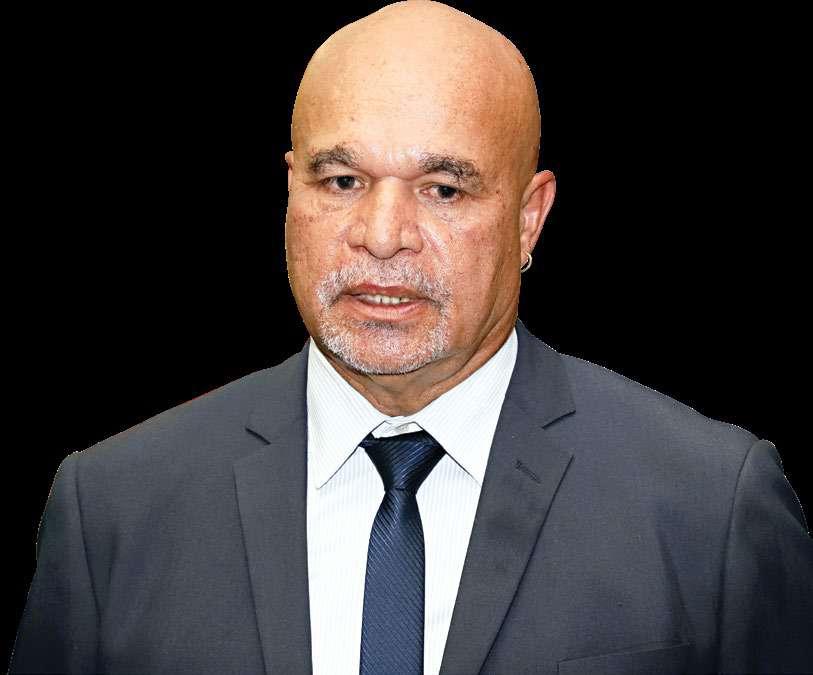
The dream is to make Lae the most model urban centre in PNG; the safest, secure and cleanest city in PNG.
Lae as becoming their preferred location in PNG to operate in because they say it’s a safer city.
So, we need to continue to increase investment in policing and in developing our road and transportation services as well. A major investment that is already contributing to more economic development is the Nadzab International Airport. We now have the capacity for more arrivals. Also, soon to be completed is the new four-lane Lae-to-Nadzab highway. An improved transport system contributes to business efficiency and makes it easier for our people to travel.
Q: What are the upcoming developments?
We are currently refurbishing the Sir Ignatius Kilage Stadium and aim to complete it by September. We’re also doing a four-lane road upgrade of the Unitech to Eriku road. This will cut down our traffic congestion
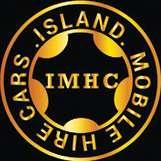

issue. Moreover, we’ve secured funding and will soon commence the development of two new suburbs that will house about 2400 residents.
Q: What are the city’s plans for the 50th anniversary celebrations?
We’re going to do a huge celebration. We’ve got an independence committee that is planning our activities. We’ve allocated money to all our suburbs for each council ward to participate.
There will be a grand event at the Lae Showground and the Sir Ignatius Kilage Stadium where there will be cultural dance groups from our 22 provinces performing. Also, we will have school children marching, and for the first time, we will have the new Lae Police Band performing. It will be the only police band outside of Port Moresby. Of course we will cap it off with fireworks shows. n



One of Papua New Guinea’s founding fathers and former Prime Minister Sir Julius Chan passed away aged 85 on January 30.
The nation went into an official week of mourning following Sir Julius’s death at his home in Huris, New Ireland Province.
Sir Julius was honoured with a state funeral in Port Moresby before being buried in his home province.
“Sir Julius Chan was not just a leader; he was a statesman
Sir Julius Chan was not just a leader; he was a statesman of great wisdom and resilience.
of great wisdom and resilience, a man who dedicated his life to the service of our country,” Prime Minister James Marape said.
Sir Julius was one of the country’s longest serving politicians. He was elected to PNG’s pre-independence House of Assembly in 1968, and he was
still a member of the National Parliament and the Governor of New Ireland Province when he passed away.
He had two terms as Prime Minister, from 1980 to 1982 and 1994 to 1997. He also served as Deputy Prime Minister and Finance Minister.
Sir Julius was one of PNG’s last founding fathers, with many of the other independence leaders having already passed away, including PNG’s first prime minister Sir Michael Somare, who died in 2021.
A statement from the PM’s office at the time of Sir Julius’s death said: “His passing comes at a pivotal moment in our nation’s history, as PNG prepares to celebrate 50 years of independence – a milestone he

played a crucial role in achieving. As we reflect on our journey as a nation, we must also honour the legacy of great leaders like Sir Julius, whose vision, courage, and leadership helped shape the Papua New Guinea we know today.” n


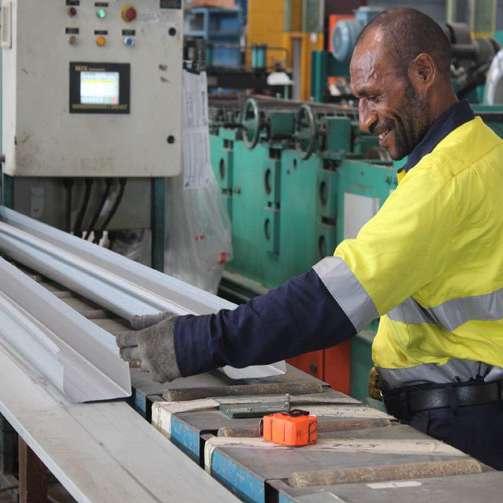
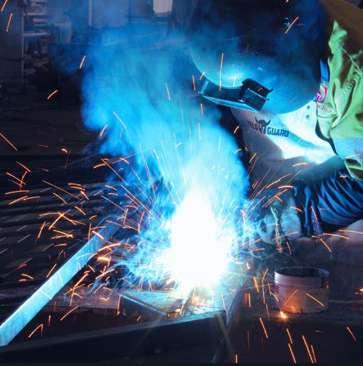

Hot on the heels of the Australian National Rugby League (NRL) announcing that a Papua New Guinean team will join the competition in 2028, plans have been revealed for a team village to be built in Port Moresby.
The high-security compound will accommodate about 200 people, including players, their families and staff who move to PNG to be part of the new team.
The PNG government has committed PGK375 million (A$150 million) to the facility, which, according to Australian media reports, will include a Centre of Excellence that will rival the training facilities of the other 17 NRL clubs.


Tax incentives are also being offered to entice players to PNG.
Among the players already linked to the new team is four-time NRL premiership winner
Nathan Cleary. He is the partner of Mary Fowler. Fowler, a star player with Australia’s women’s team the Matildas, has a Papua New Guinean mother and has previously spoken proudly about her Papuan background.
Cleary is signed with Penrith until the end of 2027, theoretically clearing the way for him to play for PNG in 2028.
Sam Walker, a rising star with the Roosters, is another player who has been named by media outlets as a chance to wear PNG colours, along with Justin Olam, Alex Johnston and Nene Macdonald.
Meanwhile, it has been announced that the new team will play its home matches at the Sir Hubert Murray Stadium.


This redevelopment will not only provide a worldclass home for our NRL team but also create jobs and boost tourism.
The 25,000-capacity stadium was built in 1969 and requires upgrades to meet NRL requirements. If the upgrades are not finished in time for the 2028 season, the 15,000-seat Santos National Football Stadium looms as a temporary alternative.
It’s likely the work will be done in two stages, with the first stage bringing the Sir Hubert Murray Stadium up to NRL standards with improved seating, roofing,


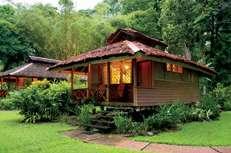


lighting and communications infrastructure, and the second stage consisting of a hotel and car parking.
At the time of the venue announcement, the Prime Minister, James Marape, was quoted by media outlets as saying: “Sir
Hubert Murray Stadium is more than just a venue – it’s a symbol of PNG’s passion for rugby league. This redevelopment will not only provide a world-class home for our NRL team but also create jobs and boost tourism.” n





The Papua New Guinea Divers Association (PNGDA) has purchased an existing hyperbaric/recompression chamber in Port Moresby.
The association says the chamber represents a critical asset to PNG, reinforcing the safety and medical preparedness of the country’s growing dive tourism industry.
“The chamber ensures that visiting divers and local dive professionals have access to advanced medical treatment in-country, eliminating the need for costly and timeconsuming overseas medical evacuations for conditions such as decompression sickness,” the association says.
The chamber, purchased from a US company, is the only one in PNG. The next closest is in Townsville, Australia.
The chamber is strategically located at Jacksons International Airport, enabling

patients to be transported by pressurised medivac aircraft from anywhere in the country. This significantly reduces critical response times by eliminating the need for ground transport.
The facility’s operational funding is being sourced from the PNGDA’s environment and safety fee, which is collected from divers.
Beyond treating diving-related conditions such as decompression illness, hyperbaric chambers play a crucial role in modern medicine. They are widely used for hyperbaric oxygen therapy, which is effective in treating various non-diving-related conditions such as non-healing diabetic ulcers, gangrene, gas poisoning and sports-related injuries.
The PNGDA is working towards expanding the facility’s capabilities to offer these lifeenhancing treatments in-country.
PNGDA president, Dietmar Amon, said: “The purchase of the chamber firmly establishes the PNG Divers Association as a key player, not just in the dive tourism industry, but in the broader medical landscape of PNG. This facility will provide residents access to essential treatments that would otherwise require travel abroad.’’ n


The Grand Papua Hotel and the Gateway Hotel and Apartments in Port Moresby have both been awarded SafeHotels certification, the world’s leading safety and security certification.
SafeHotels is the first independent, global hotel safety and security certification and is based on best practice, safety, security and hygiene globally.
The process includes onsite assessments by experts with years of knowledge and understanding of hotels around the world.
The Grand Papua, which achieved premium status, was




The lobby of the Gateway Hotel, which has been awarded SafeHotels certification.
the first hotel to be certified in Australasia and the Pacific Islands.
“We are absolutely thrilled to have achieved the certifications on the first attempt,” says
Steamships Hospitality Chief Executive Officer Alan Christie.
“On average, only one in five hotels achieve certification and even fewer achieve
premium certification in their first assessment, and I cannot commend enough the teams at Grand Papua Hotel and the Gateway Hotel and Apartments for their commitment over the past few months to achieving excellence.”
Christie says guests who choose to stay at the Grand Papua Hotel and Gateway Hotel and Apartments can have peace of mind that their chosen hospitality venue has undergone and completed a rigorous checklist, to ensure that all possible measures have been taken to ensure customer well-being, and that each hotel has thought through its safety, security and hygiene programs, from prevention to crisis management. n
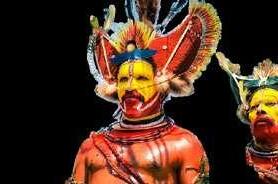

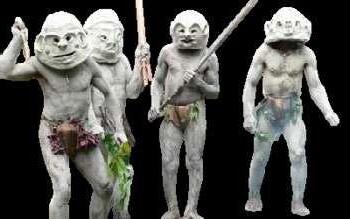

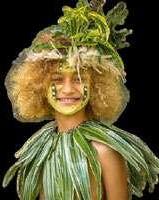



TAKEN BY RABBI PORA ROP
A balancing act. The photographer took his family on a day trip to Busamang village, about a 45-minute boat ride from Lae’s main wharf, and snapped this photo of his three children playing on a coconut tree. The children – Nailah, 14, Ramelah, 11, and Matheo, 9 – had lots of fun on the outing, the photographer says. “The village is so nice and tranquil. The villagers are very friendly and there’s a warm and welcoming atmosphere.”



If you have a photo of Papua New Guinea that you’d like published in Paradise , email your submission to paradise@businessadvantageinternational.com. Photos should be at least 1.5mb and 300dpi.







The 16th of September 2025 will be a momentous day in the history of our country. It will mark 50 years of Papua New Guinea as an independent nation – an achievement we can all be genuinely proud of.
Fifty years ago, my honourable predecessor and the father of our nation, Grand Chief Sir Michael Somare, was serving as Chief Minister in the government of the Territory of Papua New Guinea. The colonial era of our history was drawing to a close, and he – alongside a small and dedicated team of politicians and civil servants – was laying the foundations for a new nation.
Already, institutions such as the Bank of Papua New Guinea and Air Niugini had been established to support the building of our independent nation.
Today, we are modernising Air Niugini – our national airline and a symbol of nationhood since 1973. My government has launched the largest fleet renewal in the airline’s history, a PGK5 billion program that includes the acquisition of 13 new aircraft – 11 Airbus A220s and two Boeing 787 Dreamliners. This investment, supported through financing from the Government of Papua New Guinea, the Asian Development Bank, the US Export-Import Bank, and Export Finance Australia, marks a new chapter in aviation for our country.
The modernisation of Air Niugini is aimed at delivering safe, reliable, and world-class air services, connecting our people more efficiently across the nation, and enhancing our links to the region and the world.
At the time of independence, I was just four years old, growing up in the remote Nomad River area of Western Province. I had no idea then of the hard work and dedication of those visionary early leaders. Nor did I know that I would one day follow in the Grand Chief’s footsteps and have the privilege of leading this great country.
This golden jubilee is a time not only to honour the achievements of our founding fathers, but also to recognise the countless contributions
of the men, women and children who have helped shape the people we are today.
Our journey has been extraordinary. We remain a young nation, with our greatest days still ahead of us.
Yet we are also an ancient people – with deep-rooted cultures, over 800 languages, time-honoured customs and traditions, and a profound connection to our land and sea.
We are a country of volcanoes and mountains, deep forests and pristine rivers, rich biodiversity, and coastal waters teeming with marine life.
To put it in a succinct summary: we are the most linguistically, culturally, and biologically diverse nation on Earth. At independence in 1975, fewer than one per cent of our people were formally educated, over 90 per cent of the country was disconnected from roads, electricity or services, and our economy was valued at under PGK1 billion to support a population of over 3.5 million. Despite these enormous challenges, we have endured and advanced as one people, one nation, one country – 50 years on.
In this anniversary year, I invite all Papua New Guineans – and our international partners and friends – to join us in celebrating this remarkable milestone.
There will be celebrations in communities across the country, but this is also an opportunity for all of us to rediscover PNG. I encourage you to travel through our highlands and islands, stay in our many hotels, resorts and lodges, attend our vibrant cultural shows and festivals, build new connections, and rekindle old ones.
Paradise magazine was first published by Air Niugini in 1976 – in the very first year of our nationhood. Since then, it has faithfully showcased the very best of PNG.
In this special issue, the magazine shares our history and culture and offers a dedicated focus on heritage tourism and the many travel opportunities available in this milestone year.
Please join me in celebrating our past and inspiring our future.
The Hon. James Marape MP
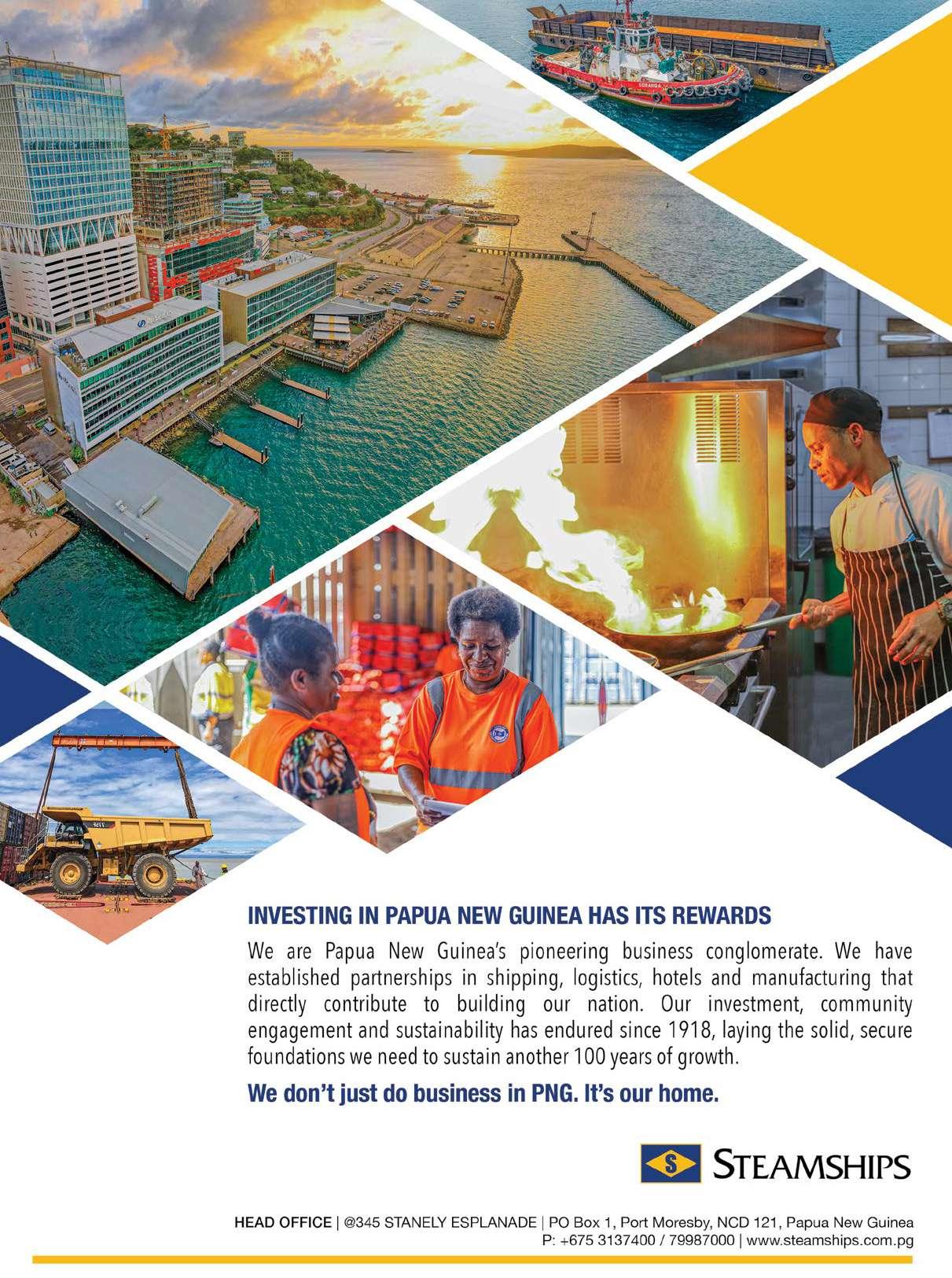
As PNG prepares to celebrate its 50th year of independence, Theresa Patterson reports on the plans that are afoot in Port Moresby, where most of the country’s celebrations will be centred.
Cultural festivals, unity parades, music concerts, choirs, a possible visit by King Charles III and carols by the sea. These are just some of the things on the program as Papua New Guinea prepares to usher in the country’s golden jubilee of independence.
As the country of more than 600 tribes and over 800 languages proudly comes together, streets and shops will be awash in the nation’s colours of red, yellow and black –making Port Moresby an amazing spectacle to behold and be part of.
Dignitaries and politicians from all parts of the world are expected in PNG for the celebrations.
A moment’s reflection amid the buzz and momentum, though, might reveal something profound: for all its remarkable diversity, and even with the issue of Bougainville’s independence ongoing, PNG remains independent half a century on from September 16, 1975.
Unlike many emerging countries in the post-colonial period of the 1950s and 1960s, PNG, as a Trust Territory administered by Australia, did not have to put up an ugly fight for independence. In fact, the transition from colonial administration to self-governance was peaceful, ending two decades of Australian management after World War 2.
As attitudes towards imperialism shifted, local elites within PNG increasingly pushed for self-reliance, including PNG’s founding fathers, the last of whom – Sir Julius Chan – passed on January 30 this year, the day the logo for the 50th year of independence was launched. It was on January 30, too, that the theme for this year’s anniversary – ‘Celebrate Our History, Inspire the Future’ – was revealed.
In keeping with the spirit of the new theme, and in tandem with the National Capital District’s (NCD) ‘Amazing Port Moresby’ vision, the capital city will serve as the “epicentre of the celebrations”, Governor Powes Parkop said recently.
Provincial governments will align with the Port Moresby plan, coordinating their own activities in their main centres (for Lae’s independence plans, see our interview with MP for Lae, John Rosso, on page 10).
Air Niugini, meanwhile, will welcome the arrival of the first of its new Airbus A220 aircraft in September to coincide with independence celebrations. The aircraft are part of the airline’s major refleeting program.
Air Niugini’s Chief Executive Officer, Gary Seddon, says the airline will embrace the independence celebrations. “We will join other PNG owned companies and PNG-based
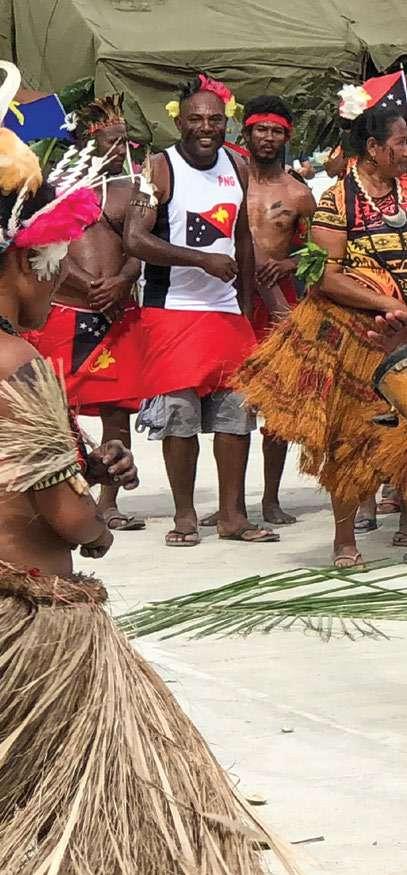
The
capital city will serve as the ‘epicentre of the celebrations.’
companies and those companies that are significantly older than us and our citizenry and fly the flag, as we always have done, very proudly,” he says.
“Our new A220 aircraft arrive to coincide with September 16 and to demonstrate

50 years of achievement. There’s no better way to demonstrate 50 years of achievement than to see it emblazoned on an aircraft.”
With expectations so high, here are some of the events planned for independence in the capital.
Celebrations will kick off every weekend with cultural displays by ethnic communities (such as Pacific Islander, Australian, Filipino, Malaysian, Chinese and Indian communities). Each weekend, one cultural community will showcase their food, customs
and bilas (traditional wear) at Sir Hubert Murray Stadium.
JUNE 28–JULY 5
Following community days, there will be an arts and music festival at Sir John Guise Stadium featuring PNG artists based locally and in Australia. Admission is free and open to the public.
With this event, the country’s four regions will host respective celebrations over
four weekends at various locations in Port Moresby. The format is ‘one region to one weekend’, with different provinces from each region hosting cultural shows at multiple venues, giving the public options for different gatherings.
Church prayers will be held during the month of Repentance Day. Keep an eye out on the calendar of events from the National Events Council to confirm times and dates.
PORT MORESBY
INDIGENOUS LANDOWNER
(MOTU KOITABU ASSEMBLY) 50TH ANNIVERSARY PRAYER DAY ON SEPTEMBER 7
Join Port Moresby’s indigenous landowners, who will pray for the 50th anniversary of the city and walk from Ela Beach to Sir Hubert Murray Stadium. The program ends with a church service at the stadium, which is open for everyone to attend.
‘AMAZING PORT MORESBY’ UNITY PARADE ON SEPTEMBER 12
Floats from businesses and different cultural communities will join the public for a parade from Murray Barracks to Ela Beach. On arrival at Ela Beach, there will be events, plus market stalls, which will be held on September 13 and 14 as well.
‘AMAZING PORT MORESBY’ FESTIVAL ON SEPTEMBER 12–16
Celebrations will continue at Ela Beach, Murray Barracks and Unagi Oval, in partnership with the Tourism Promotion Authority. There will be the Festival of a Thousand Tribes, music and arts festivals and cultural shows at the University of Papua New Guinea and Pacific Adventist University.
PASIN TUMBUNA ON SEPTEMBER 13–14
For an immersive cultural showcase, head to the Port Moresby Nature Park to witness sago-making, bilum -making, claypot-making and local food preparations.
Thousands of students will line Independence Boulevard, creating a ‘PNG 50’ formation. Additionally, there will be a flag-raising ceremony, singing of the national anthem with the Prime Minister and delegates in attendance, and then the lowering of the flag. The Ministry of Foreign Affairs said in January that King Charles III is expected to attend the celebrations, but this had not been confirmed when Paradise went to press.
The Prime Minister’s dinner, to be confirmed for September 15 or 16, will also be held,

with the day ending with an explosion of night-time fireworks.
It is expected that the Bank of PNG will release new independence-themed notes and coins.
Grab your tickets for a music show at Ela Beach. The NCD office is yet to confirm the line-up but in previous years they have invited
local choir groups to perform as well as local artists such as Sheii and Kronos.
Event details and dates were accurate at the time of going to press, but for updates, possible changes to programming and the addition of new events see facebook.com/profile. php?id=61572736064368.

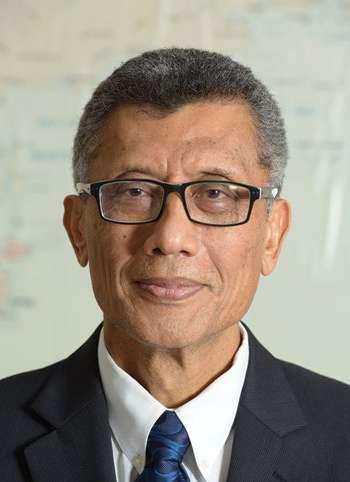
Simon Foo started with Air Niugini when the airline was launched in 1973 and rose to become its chief executive officer from 2013 to 2018. He sat down with Paradise magazine to discuss the 50th anniversary of PNG’s independence, the early days of the airline and what both have meant to the country over the past half a century. Ricky French reports.
Ask Simon Foo what his strongest memory is of his 45-year career with Air Niugini and his mind flashes straight back to November 1, 1973, and a handshake on the tarmac between then chief minister Michael Somare and Air Niugini general manager Ralph Conley.
Foo wasn’t there to witness the ribboncutting ceremony at the airport in Port Moresby, or to see Air Niugini’s firstever flight take to the skies. He was 800 kilometres away in Rabaul, waiting for the plane to land. But the iconic photo has stayed with him. It represented not only the months of work that had gone into setting up the airline, but also a new dawn for the country, coming just one month before Papua New Guinea became a self-governing territory, a prelude to independence two years later.
The symmetry was no coincidence. A newly independent country needed a national airline to call its own. It came around the same time as the establishment of the country’s first central bank, the Bank of Papua New Guinea, and the nationalisation of telecommunication services. “Air Niugini was an important piece in the puzzle,” says Foo. “Our founding fathers saw it as one of the steps to uniting Papua New Guinea.”
The birth of the airline also united the country in a practical sense. “There were hardly any roads linking towns, especially in the highlands,” says Foo. “So, air services were vital for getting supplies, government services and people into those remote communities.”
Foo’s aviation career began in 1971 when he joined TAA (Trans Australia Airlines) as a traffic officer in Rabaul, a multi-skilled role that involved everything from checking in passengers to loading baggage and dispatching the planes. Air Niugini was forged as a partnership between the PNG government, TAA, Ansett Airways and Qantas, before becoming wholly government owned in 1980.
Fusing four different systems and business cultures into one airline proved an interesting challenge for the fledgling airline. Something as simple as managing seating rows on the planes caused unexpected headaches, says Foo. “Ansett had seats starting at row one, and TAA had seats starting at row two. There were two sets of books for flight operations and procedures – all these small things that needed to be ironed out.”
Foo says that recruiting and training up local workers is one of his proudest memories. “It was wonderful seeing the development of a highly skilled workforce. People had to be trained up on everything from checking in procedures, to managing load sheets and dispatching planes. There was a great sense of starting our own airline, and we worked hard to make it successful, from the ground staff to the cabin crew to the pilots and the engineers. Many lifelong friendships were made, and we have a lot to be thankful for.”
PNG’s push for independence from Australia came at a time when many nations around the region were shaking off post-war colonial control. Foo says there were mixed moods in the country at the time, with some people

Simon Foo, former Air Niugini chief, says the growth of the airline went hand-in-hand with PNG’s independence (opposite page); then Chief Minister Michael Somare cuts the ribbon to send Air Niugini’s first flight on its way from Port Moresby to Rabaul on November 1, 1973, while the airline’s General Manager Ralph Conley looks on (above).
believing the country wasn’t yet ready for independence. Some even left for good. But, on the whole, the move was embraced and seen as an important step forward. “Most people chose to stay, contribute and make a future in a great country,” says Foo. “We were blessed to have great founding fathers, led by Michael Somare, our first prime minister.”
Foo’s home province of East New Britain was at the epicentre of the drive towards self-determination, as headquarters for the Mataungan Association, who were pushing
for autonomy in the Tolai community. The momentum spread from there through the rest of the country, culminating in the lowering of the Australian flag and the raising of the PNG flag on September 16, 1975, bringing to an end almost a century of colonial rule. A country of hundreds of tribes was now united as one. “It was a momentous occasion,” says Foo. “The vision of our founding fathers was for selfdetermination as a sovereign country, with a constitutional democracy. And that vision has carried us to today.”
Foo says the formation of a national currency and banking system, investment in education and the establishment of provincial governments to manage the distribution of money and services to regional communities were major milestones for the country. But it’s the maintenance of democracy over the last 50 years that Foo thinks should be most celebrated.
“We’ve had many changes of government, and these were democratically done on the floor of parliament, with no wars, coups or battles; no revolutions or dissent. Our various leaders have done so well under sometimes difficult circumstances to keep one country together for 50 years. It’s going to be a wonderful celebration in September.”
Foo says that managing PNG’s natural resources, investing in technical education and improving the quality of life for the country’s rural population are issues that need to be tackled next. “There is of course more to be done, but over the last
Air Niugini was an important piece in the puzzle. Our founding fathers saw it as one of the steps to uniting PNG.
50 years we have developed successfully and achieved much. Papua New Guinea is still the land of opportunity, and we now have young leadership to take us forward into the next 50 years.”
As the country has grown and matured, so too has its national airline. “From humble beginnings of a small fleet flying only limited routes the airline now flies to over 20 domestic destinations, as well as most neighbouring countries,” says Foo, adding that the upcoming re-fleeting program, which will see state-of-the-art Airbus A220 aircraft enter the fleet in September, represents an exciting new chapter for the airline.
“Air Niugini has always been there,” says Foo. “Papua New Guineans still regard it as the national airline, and a point of pride in the country. You travel overseas and come back to the airport and see the tail of the airplane and the logo of Air Niugini and you immediately know, ‘I’m going home.’”


Unlock superior performance and reliability for your marine diesel engines with Shell Gadinia S3 40! This high-quality lubricant is expertly formulated to extend oil life, protect your engine from wear and tear, and maximize system efficiency. By choosing Shell Gadinia S3 40, you're not just buying a lubricant; you're investing in the longevity and smooth operation of your equipment, ultimately reducing operating costs and minimizing downtime. Trust Shell Gadinia S3 40 to keep your marine diesel engines running stronger, for longer.
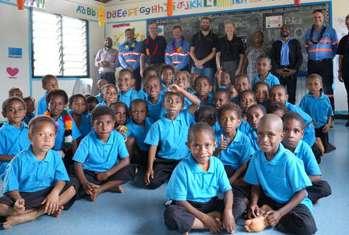

IMPACT IN HEALTH*
1,784,419* VACCINATIONS THROUGH ROUTINE IMMUNISATION
42,884 ANTENATAL CARE FIRST VISITS
At Santos, our purpose is to provide reliable and affordable energy to help create a better world for everyone.


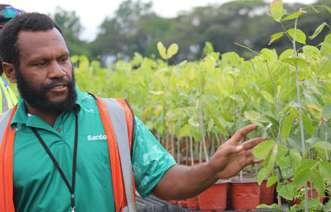
TAX CREDIT SCHEME
73 HEALTH FACILITIES SUPPORTED IN HELA, SOUTHERN HIGHLANDS AND GULF
31,563 SAFE BABY DELIVERIES
IMPACT IN EDUCATION
2,615 LANDOWNER TERTIARY STUDENTS SUPPORTED
1,566* CHILDREN ENROLLED IN FOUR LITERACY LIBRARIES
20 COMMUNITY DEMONSTRATION FARMS ESTABLISHED WITH SUPPORT FROM FRESH PRODUCE DEVELOPMENT AGENCY
EARTHQUAKE RESPONSE 2018
200 VILLAGES PROVIDED WATER, FOOD, SHELTER & EMERGENCY KITS
2,150 MEDICAL CASES TREATED
187 TONS OF FOOD DELIVERED THROUGH 296 SLING LOADS
280 PROJECTS DELIVERED IN AREAS OF HEALTH, EDUCATION, TRANSPORT, LAW & JUSTICE LANDOWNER COMPANIES
2,382 TOTAL LANDOWNER COMPANY WORKFORCE ACROSS 12 COMPANIES
NATURE-BASED SOLUTIONS
4,000,000 TREES PLANTED THROUGH MARKHAM VALLEY AFFORESTATION AND REFORESTATION PROJECT
*Delivered with funding from the Australian Department of Foreign Affairs and Trade.
*Results of Health and Community Development Initiative from 2016-2023.


Theresa Patterson speaks to elder stateswoman Her Excellency Winnie Kiap, a former diplomat who represented PNG on the world stage. She was the country’s High Commissioner to the United Kingdom from 2011 to 2022, with accreditation to Cyprus, Egypt, Israel, South Africa and Zimbabwe.
Q: Looking over the past 50 years, what do you see as the most significant achievements Papua New Guinea has made since gaining independence?
A: I was in Wewak in March hearing all the speeches about Sir Michael Somare when he was taking us to independence.
Everyone was saying the main thing about all that is the fact that he was trying to get everyone in the country to form one country. It was Somare who was talking to the New Guinea islanders, calming the fear of the Highlanders and talking to the Papuan side. He was great at it.
The most successful thing then, I think, about our independence is that we are one – because we are very different. We are culturally, linguistically, everything different. But we are one country.
Q: What about our biggest challenges?
A: Well, Bougainville was and is a challenge. That one country
that Somare and his cohort dreamt of and brought about is now being challenged. It’s a thing that has to be managed very well.
Another big challenge is that we rank poorly as far as literacy rates go. Sixty per cent of our population is under the age of 25. And I’m not sure if we are planning for this because I don’t see a focus on education.
Our constitution says every child has to be educated. But the mechanics to activate the constitutional instructions are not there.
Q: What about diplomatic challenges, including with the countries you were posted to?
A: I think in our early years, we did not have diplomatic issues. We ran on the policy of ‘friend to all and enemy to none’.
But the world is more challenged now. We have conflicts, weakening of international law and international order. The diplomatic challenges include understanding international institutions, instruments, laws and how they affect policy.
Q: If you could choose or define a metric for what makes PNG ‘independent’ in any meaningful sense, what would that be?
A: After 50 years, we should be exporting talent. One of the things I think about is that we don’t look outwards. If we come out of universities and don’t have jobs, instead of looking outwards we stay unemployed here. Secondly, we don’t know how to market ourselves.

Ambassador Joshua Kalinoe’s daughter, who is now teaching in a school in Queensland, taught for a while in a school in East London. A son of Sir Arnold Amet, the PNG ambassador-designate to the US, practised law in London – I was so proud of them. We should not only import skills, but we also need to export them. When we go outside, we enlarge our view of the world, we add onto our skills and then we
The most successful thing then about our independence is that we one – because we are very different. We are culturally, linguistically, everything different. But we are one country.

Papua New Guinea gained independence from Australia on September 16, 1975, to become a constitutional monarchy and member of the British Commonwealth.
Officiating at the main ceremony held in Port Moresby were Prince Charles, Prince of Wales (representing Her Majesty Queen Elizabeth II, the reigning PNG and British monarch at the time); Sir John Kerr, Governor-General of Australia; Prime Minister of Australia, Gough Whitlam; and Chief Minister of Papua New Guinea, Michael Somare – the country’s founding father, first Prime Minister and later Grand Chief.
December The Territory of Papua and New Guinea, administered by Australia, is renamed Papua New Guinea. Michael Somare, Chief Minister in an interim coalition government, is sworn in as head of the governing Executive Council. PNG also adopts a new flag, designed by 15-year-old student Susan Karike.
November Air Niugini, PNG’s national airline, launches operations. The Bank of PNG launches as the country’s Central Bank.
December National Broadcasting Commission (NBC) established, renamed the National Broadcasting Corporation in 1994.
February Queen Elizabeth II visits PNG for the first time, along with Prince Philip, Princess Anne, Captain Mark Phillips and Lord Louis Mountbatten. The Queen visits the country again in 1977 and 1982, to become known as Missis Kwin and Mama bilong bik famili in Tok Pisin.
April The Papua New Guinean kina (PGK) replaces the Australian dollar as the new currency. The name ’kina‘ is derived from the
Paradise looks at some of the events that have helped define PNG over the past half-century.
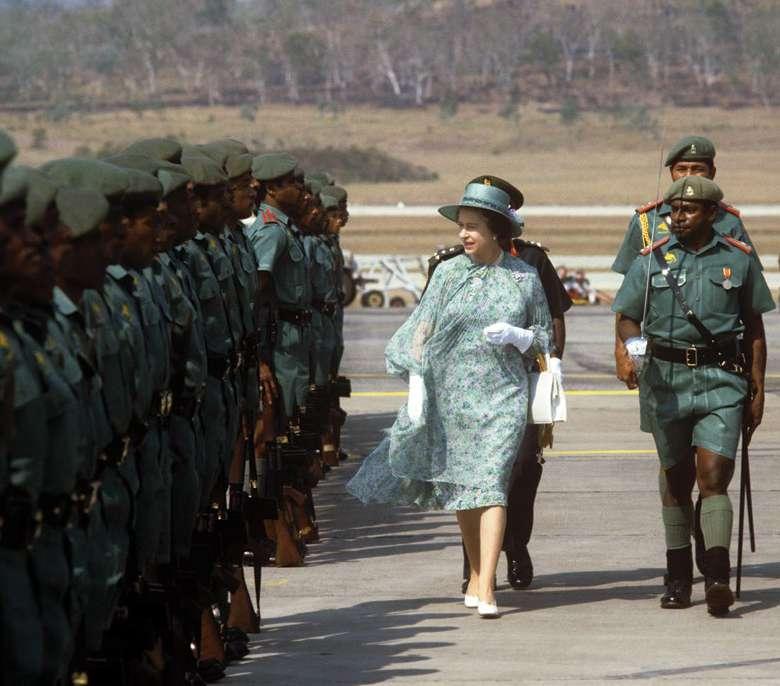
Kuanua language of the Tolai region, referring to the pearl shell used widely for trading.
September PNG officially gains independence. Michael Somare, later Grand Chief, is appointed Prime Minister. The country’s only operating mine, Panguna on Bougainville, helps bankroll the move to nationhood.
October PNG joins the United Nations.
July PNG makes its debut at the Olympic Games, held in Montreal, Canada.
July First edition of Paradise, PNG’s most widely read magazine, is published.
June–July First parliamentary elections are held since independence.
March Julius Chan (later Sir Julius) succeeds Michael Somare as Prime Minister.
February OK Tedi Mining Limited is formed as a partnership between BHP, the PNG government, Amoco and Inmet. Mining starts in 1984.
1982
June Michael Somare returns as Prime Minister.


August PNG’s Parliament House is officially opened by Prince Charles, now King Charles III.
August Paias Wingti succeeds Michael Somare as Prime Minister.
July Rabbie Namaliu (later Sir Rabbie) succeeds Paias Wingti as Prime Minister.
1989
May In production since 1972, PNG’s largest mine and biggest export earner, Panguna,

closes permanently due to ongoing civil unrest in Bougainville.
July Paias Wingti returns as Prime Minister.
August Julius Chan returns as Prime Minister. September Volcanic eruption destroys Rabaul airport and damages most of Rabaul township.
March Julius Chan resigns as Prime Minister following the Sandline Affair in Bougainville. He is succeeded by Bill Skate.
April After nine years of conflict, a permanent ceasefire is signed in Bougainville by government representatives and secessionist leaders.
August The Bougainville Peace Agreement is signed in Arawa, guaranteeing a referendum in 10 to 15 years on Bougainville’s future political status.
June Sir Michael Somare becomes Prime Minister for the third time.
January Nationally owned Kigabah Estate in Western Highlands Province wins an award from American company Starbucks for producing a rare and premium coffee. The commodity becomes a major source of export income.
July Digicel launches in PNG, causing significant disruption to – and expansion of –PNG’s telecommunications market.
August Francis Kompaon wins PNG’s first-ever Paralympic medal when he takes silver in the 100-metre sprint at the Beijing Olympics.
December The ExxonMobil-led PNG LNG project, PNG’s first liquefied gas project, is given the go-ahead.
September First awards are given in the Crocodile Prize literary competition, established in 2010 to encourage creative and critical writing in PNG.
December PNG experiences a constitutional crisis, with Peter O’Neill voted by Parliament as Prime Minister, while the Supreme Court deems Sir Michael Somare to hold the position.
February Peter O’Neill returns as Prime Minister after national elections.
May The PNG LNG project exports its first gas. July Steven Kari and Dika Toua put PNG

weightlifting on the world map by snatching two gold medals at the Commonwealth Games in Glasgow, Scotland.
November PNG’s reputation for luxury tourism is boosted with a thumbs-up from millionaire rock star Mick Jagger, after a visit to Western Highlands and Milne Bay.
July PNG hosts the Pacific Games in Port Moresby for the third time, after 1969 and 1991.
October Pope Francis appoints the Catholic Archbishop of Port Moresby, Sir John Ribat, as the first PNG cardinal and the first cardinal from the Pacific.
October Master sailors Justin John, Sanakoli John, Job Siyae and Danish adventurer Thor Jensen are awarded medals in Alotau for their first recorded circumnavigation of the island of New Guinea in a traditional sailing canoe. The 14-month, 6300-kilometre expedition sets a world record and inspires preservation of PNG’s cultural heritage.
November Chaired by Prime Minister Peter O’Neill, PNG hosts Asia-Pacific Economic Cooperation meetings for the first time.

May James Marape succeeds Peter O’Neill as Prime Minister.
June Iko Iko (‘My bestie’), by Lae’s Justin Wellington, is released to become a global chart hit, with 167 million views on YouTube alone.
December Bougainville overwhelmingly votes for separation from PNG. Discussions continue.
February Skateboard in a War Zone, about a sports school for girls in Kabul, wins an Oscar for best documentary. The school was
started by Lae skateboarder Oscar Percovich, who went on to found skateboarding schools in other countries after the Taliban took over Afghanistan.
December Port Moresby-based singer and songwriter Danielle Morgan is crowned Pacific Break’s 2022 winner – the first female artist to take out the top prize in the competition’s history. Her song Fight tells the story of West Papuans’ fight for freedom.
January Australian Prime Minister Anthony Albanese joins Prime Minister James Marape for their first Annual Leaders’ Dialogue in Port Moresby. They agree to a Joint Statement of Commitment to negotiate a Bilateral Security Treaty.
August Rabaul reggae star Anslom Nakikus wins Band of the Year category at the 2023 International Singer-Songwriters Association Awards in Atlanta, US.
February PNG’s Prime Minister James Marape becomes the first Pacific leader to address a joint sitting of both houses of the Australian Parliament. He hails his country’s ties with “big brother” Australia.
September Pope Francis visits PNG with a historic call for stewardship of the nation’s rich natural resources and a plea for peace amid ongoing tribal conflicts. It’s the third papal visit, following tours by Pope John Paul II in 1984 and 1995.
November Commonwealth Games gold medallist and four-time Olympic swimmer Ryan Pini from Port Moresby is appointed Mental Health Ambassador for the International Olympic Committee.
December The Australian and PNG Prime Ministers Anthony Albanese and James Marape announce that PNG will join the National Rugby League in 2028.
February Australia and PNG start negotiations on a defence treaty, in a move that could have major implications for national security and the Pacific’s strategic landscape.
Research by Richard Andrews.
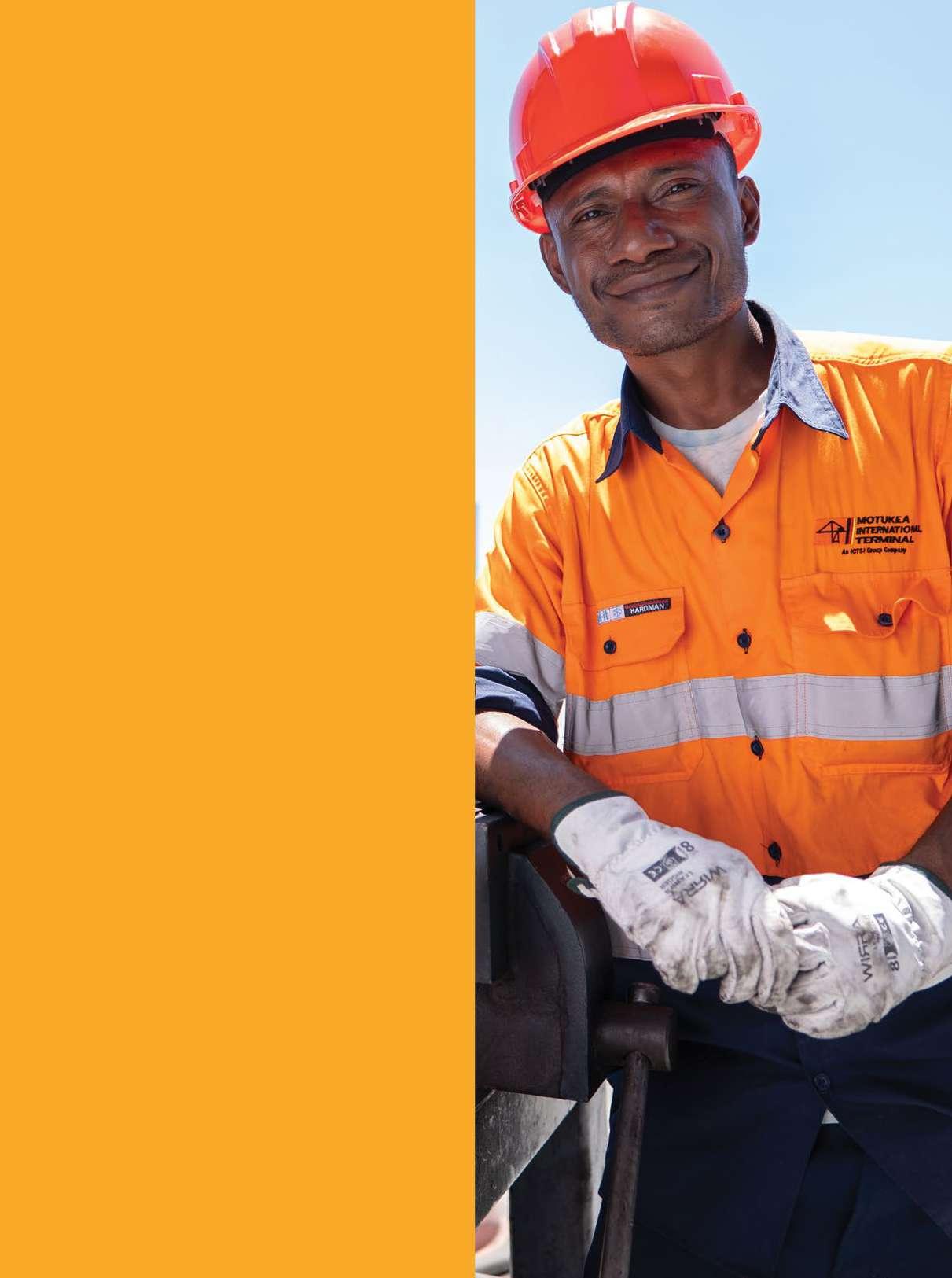
Papua New Guinean port equipment operators and engineers play a vital role at the terminals of Lae and Motukea, putting to good use their expertise in ship-to-shore cranes and mobile harbor crane operations and maintenance.
Through ICTSI South Pacific’s Center of Excellence program and guidance from international experts, local talent continues to grow, powering PNG’s trade gateways and contributing to economic development. The collaboration has come full circle, with PNG operators now training port operators and engineers overseas—an inspiring example of knowledge-sharing and mutual growth.
ICTSI South Pacific – developing skills, driving progress.
HAPPY YEAR OF 50 th
PAPUA NEW GUINEA! INDEPENDENCE
Celebrating unity and progress at the terminals in Lae and Motukea.
Together, we build a brighter future.
ICTSI South Pacific Limited Motukea International Terminal, Porebada Road Motukea Island, Port Moresby, NCD 121 Papua New Guinea www.png.ictsi.com
INTERVIEWS BY MARY TAO
PICTURES: LENNOX MATAINAHO

Norashiba Kewa , 23, from Hela is an accounting graduate from the Somare Institute of Leadership and Governance, and says that this Independence Day will be about bringing family together to celebrate, like they do every year. “We usually go out for a picnic at Sogeri, Crystal Rapids. We like going up to the mountains.”
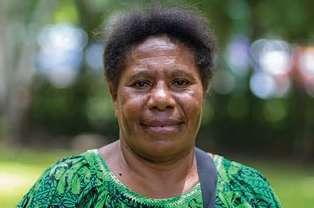
Stella Harry, 47, from Eastern Highlands is a stay-at-home mother and reminisces about past celebrations she’s watched in different provinces around the Highlands region. “We enjoyed staying in Tari because we like their dressing and their dances. They have ‘springs’ in their legs so we went to see them just bouncing up and down!” Her hope going forward from the the 50th anniversary is a safe space for children to live and go to school. “We want a good education for our kids.”
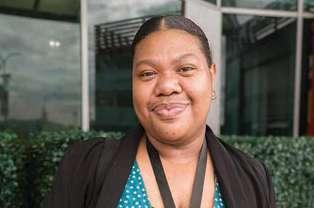
Irene Pokana , 28, from Manus is a loans officer. “I do feel proud about it (the 50th anniversary). Every year, there’s a lot of developments happening, a lot of infrastructure. I like that every year, PNG is growing – every anniversary counts.” Pokana adds that September 16 is a significant day in her family, and they dress the part by wearing matching meri blouses. “We try to see where the big festivals happen, so we go to be part of it. To us it’s very, very important because it’s the country’s birthday. I’m a proud Papua New Guinean.”

Lydia Ali, 27, from Central is a manager. “Normally, my family and I use it as a holiday to get together with friends and family and to celebrate the country’s anniversary,” says Ali. Reflecting on the current economic and political climate of the country, she adds: “I’m not really excited, but I’m grateful that we’ve come this far. Other countries are facing war and still fighting for their rights while we are here. Every day we get to go about our normal lives and carry on to put food on the table, and it is what I’m grateful for. On top of that we are still a Christian country, and we go by those morals.”
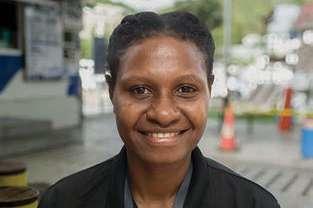
Senedine Urima , 25, and from Sepik is a food service attendant who is concerned about the crime rates and the increase of prices of goods and services. But she says she will celebrate on September 16. “Yes, I will celebrate to appreciate our founding father (Sir Michael Somare) who spent the time to get independence for us.”

Sande Kewa , 41, from Hela is a metal fabrication and welding trainer who says: “I usually put on my head decoration, made of the feathers of the raggiana bird-of-paradise. That shows that I’m proud of my nation, I’m proud of my leaders and I’m proud of my beautiful country.” Kewa reflects about where it all began and says: “In 1975, our leaders and forefathers like Sir Michael Somare, Sir Julius Chan, Pais Wingti, Sir Rabbie Namaliu and Sir Pita Lus were some of the few people who were there to get independence. So, we are all happy about that.”

Charles Amadi, 19, is from Central, Gulf and Western provinces and West Papua. He is a salesperson whose community hosts their own small cultural celebration, where he has showed off his Gulf side, by performing a contemporary dance. “It will be our golden jubilee and I’m proud,” he says.

Ricky Gutuma , 50, from Central is a business owner. “I’m proud”, says Gutuma about the country turning 50. He also says he feels grateful to be almost the same age as the country. “It’s good to see that we are progressing, since they (Australia) left us. To celebrate our independence, we play sports and do church activities.”
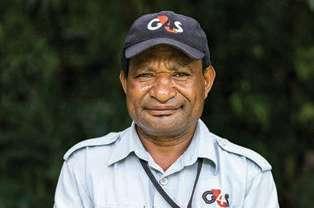
Olum Supas, 38, from Southern Highlands is a security guard who says he feels, “happy and good” about the country turning 50. Independence Day is a joyous occasion for his family, and they typically celebrate by having a mumu or sharing gifts. “Fifty years is a long time,” says Supas. “God has blessed our country, allowing us to gain independence safely, and also blessed our country with natural resources. This year’s Independence Day, I will be celebrating safely with my family.”

Michael Kumbon, 56, from Enga is a church leader who was in grade one at school when PNG gained independence. Kumbon says the government must take stock of the country’s progress. “We should revisit what has happened from 1975 until now and then decide whether we are moving in the right or wrong direction. The good thing is that we are independent, we are able to look after ourselves. For many countries I think it was not that easy to get independence. I think that is one of the reasons we should celebrate, despite the problems that we have.”
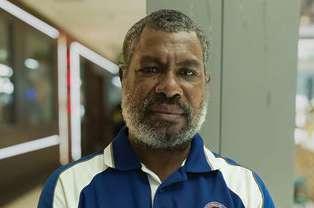
Stephen Palaka , 53, from Central is a marine pilot. I think it’s worth celebrating. “For me personally, I’m happy that we got independence. If we continued to be colonised, we might not have this freedom that we have today,” he says. “I’m looking forward to making it a special celebration this year.” Palaka says despite the country’s issues, being an independent country in the first place should be acknowledged. “The good thing is that we have independence – we have an Independence Day. So, however we can contribute, personally or as a family or community – that’s the main thing that matters.”
TRAVELLER
OUR COUNTRY, OUR REGION, OUR WORLD

Four

Visitors will be flying in from around the world to celebrate PNG’s 50th anniversary of independence in September. Mary Tao reports
on four shows at
around the same time that may also attract their attention.
The festival: The Rabaul Frangipani Festival is held on the weekend before Independence Day, September 16. The two-day event marks new growth after the town was devastated by the 1994 twin volcanic eruption of Mount Tavurvur and Mount Vulcan.
Watch different cultural groups perform, peruse art and craft stalls and taste local dishes. There’s a fun parade celebrating community spirit, with business houses showing off their creative floats.
Being in the region at this time also provides the opportunity to learn about the traditional money, tabu, of the Tolai people, at the East New Britain Shell Money Festival on Malapau beachfront, Kokopo. You can see the kinavai ceremony at the festival, which has tubuans dancing in canoes as they approach the shore at dawn. It’s typically held at the end of Independence Week.
What else: Volcanoes, war history, cultural dances, snorkelling and scuba diving.
Suggestions: Brave the one-hour hike up Mount Tavurvur and watch locals cook food in the hot springs at the volcano’s base; explore the many tunnels used by Japanese soldiers during World War 2 as protection from American air raids and even see Japanese Admiral Isoroku Yamamoto’s bunker. Visit the Kokopo Market, one of the best in the country for fresh produce and local art and craft. Take a scenic cruise around Simpson Harbour or dive among the wrecks of ships and planes of World War 2.
Tour contacts: PNG Tour Guides tel. +675 7836 7015, Rabaul Historical Tours tel. +675 7115 6650, Rabaul Scenic Tours tel. +675 7016 3049.
Where to stay: Rabaul Hotel, Kokopo Bungalow Beach Resort, Gazelle International Hotel, Rapopo Plantation Resort.
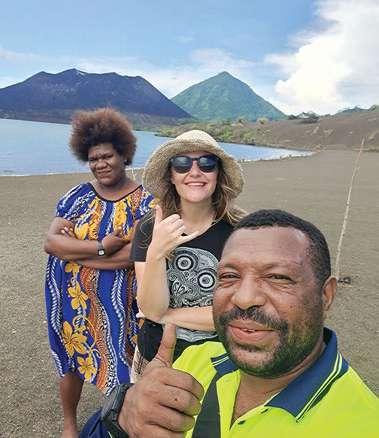
Tubuans make their way to shore in a canoe in a traditional kinavai ceremony (left); visitors in the ‘land of volcanoes’ at Rabaul (inset).










The festival: The Morobe Show will be held at the Lae Showgrounds from September 12 to 14. The weekend is packed with events, including the Morobe Show Queen pageant, agricultural exhibits, a dirt bike show and skydiving show. There will be traditional performances and sing sings as well as fireworks at the official opening of the show on Friday night (September 12) and at its closing on Sunday night. What else: War history, nature walks and village visits.
Suggestions: The Lae War Cemetery is the resting place of over 2800 soldiers, most Australian, who died in World War 2. Next door is the Lae National Botanic Gardens, which has over 500 species of plants spread over its 57 hectares. Head to Lae Yacht Club for fishing or have lunch with a view on the deck bar. The Lae Golf Club has 18 holes, tennis and a wellness centre. Take an excursion across Lake Labu to Labu Miti village for a day of hiking, swimming at the waterfall and tasting traditional food. For the more adventurous, dirt bike through Morobe and through the Highlands region.
Tour contacts: Fuzzy Wuzzy Expeditions tel. +675 7906 5582, LaeAbout Tours tel. +675 7109 9542, Niugini Dirt Tours tel. +675 7157 4522.
Where to stay: Crossroads Hotel, Lae International Hotel and Huon Gulf Hotel & Apartments

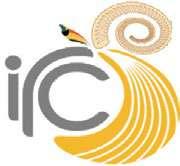
Paying your taxes isn’t just an obligation; it’s a key part of your role as a leader. Only when true leaders step up to their tax compliant responsibilities will we see Papua New Guinean communities and our children thrive.
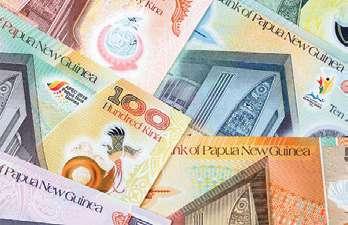
Ensure your taxes are up to date to avoid costly penalties. You can make instant online payments through myIRC. Get started by logging in to your myIRC account or registering a new one. Register at https://irc.gov.pg/register
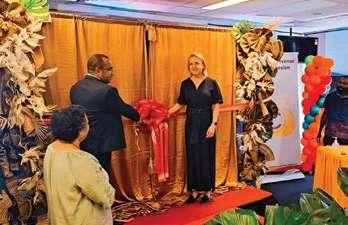
Good corporate citizenship matters because it’s immensely beneficial to organisations prioritising it. Such organisations can enjoy Tax reductions, enhanced reputation and goodwill, competitive advantage, a boost in customer base, customer loyalty and sales, and attraction of better talent and stronger employee engagement.

Your contributions are geared towards producing a much better quality of life for surrounding communities by fuelling essential services and fostering community development in PNG.
As a Director, you hold personal responsibility. Failure to pay taxes could result in liability. Protect your business and reputation by staying on the right side of compliance.

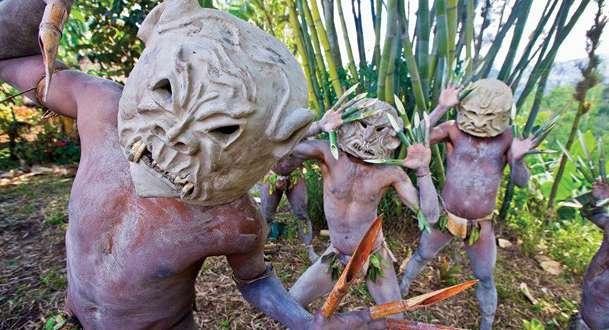
GOROKA
The festival: The show is on at the National Sports Institute Grounds from September 20 to 21. It is one of the largest gatherings of traditional performers with groups from all over Papua New Guinea.
Visitors are given the opportunity to enter the arena so they can be up close to performances and take photos. Apart from the show, wander the grounds to buy from local craftspeople and artists, or have a look at the agricultural exhibits to learn about what is grown in the country. You can also see a ‘pre-show’ on September 19: the Pikinini Festival. Watch school children show off their culture through traditional song and dance.
The Megabo Cane Swallowing Festival (usually held during the same time as the Goroka Show) is held at the Yasina Nature Park in Upper Bena. Witness a unique initiation ceremony where young men swallow up to 30 centimetres of a small cane before pulling it out again.
What else: Exceptional birdwatching, cultural experiences and local markets for souvenirs.
Suggestions: Start your day with a 5am birdwatch at Mount Gahavisuka and look out for the raggiana or astrapia birds-of-paradise. Experience local living by arranging a village stay at the Asaro Mudmen Tribal Eco Lodge. While there, you can see the famous Asaro Mudmen perform their ‘ghost walk’ in their white clay masks. Learn about the Asaro people’s ways as they re-enact customs such as a bride price ceremony or learn how to cook using bamboo. Visit the J.K. McCarthy Museum to learn about the ‘first contact’ of the Highlands people with the outside world, or wander through Tumbuna Market, famous for the long colourful lines of bilums woven by women.
Tour contacts: PNG Highlands Adventure Tours tel. +675 7046 8746 and Geremiaka Trek & Tour tel. +675 7360 9517.
Where to stay: Bird of Paradise Hotel, Pacific Gardens Hotel and Hotel Phoenix.
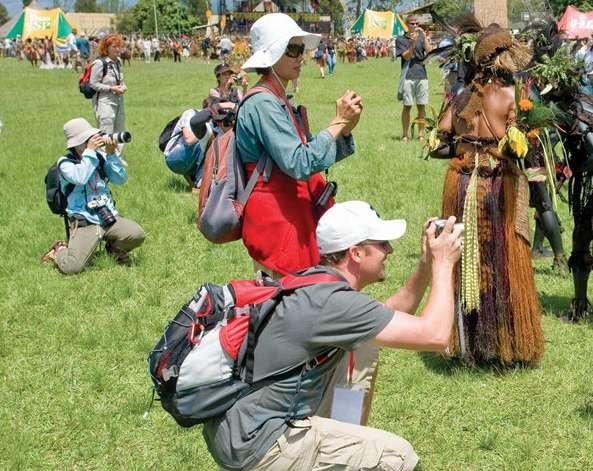
The festival: The Bougainville Chocolate Festival is in Buka this year. Typically, it takes place over three days in late September. Take your pick of delicious chocolate desserts made from local chocolate. It is also a chance for farmers to have their cocoa beans judged. You’ll also get to watch a display of traditional dancing and singing from nearby villages.
The Mona Festival is a canoe festival held to honour the seafaring ancestors of Bougainville. Mona translates to canoe, and fittingly tribes from all over the autonomous region gather on Sohano Island to paddle across the Buka Passage in colourful dugouts with carved motifs. The passage, although narrow, is known for its depth and fast current. You can also watch traditional dances, enjoy musical performances and indulge in local dishes.
A final decision had not been made about the dates of the festivals when Paradise went to press.
What else: Buka is known for its white sandy beaches, island-hopping adventures, and the bustling Buka Passage.
Suggestions: The Buka Passage stretches 120 kilometres and is packed with boats going up and down the strait transporting goods and people. Hire a boat to visit nearby islands, which have white sandy banks and turquoise waters ideal for snorkelling, such as White Island just off Sohano. Experience the Buka coastline by visiting Tiama cave or go to Kukul Beach Front Club for great seafood. You can also stop by Hahela market for fresh produce and have a look at the murals painted by local artists to brighten up the market.
Tour contacts: Bougainville Infinite Discoveries tel. +675 7267 9102 and Bougainville Experience Tours tel. +61 401 331 251.
Where to stay: Adeeves Guest House, Passage Traveller’s Inn, and Reasons Bar & Grill.
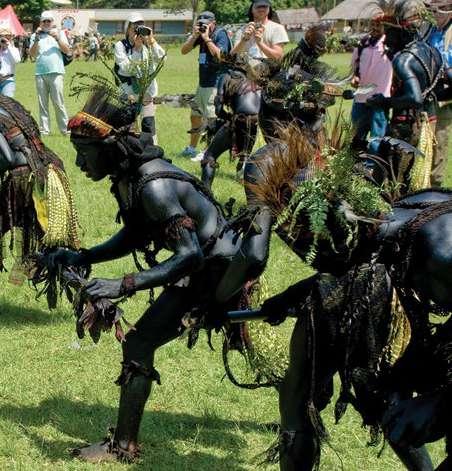

The Goroka Show is one of the largest gatherings of traditional performing groups from all over PNG. All things chocolate are on display at the
includes

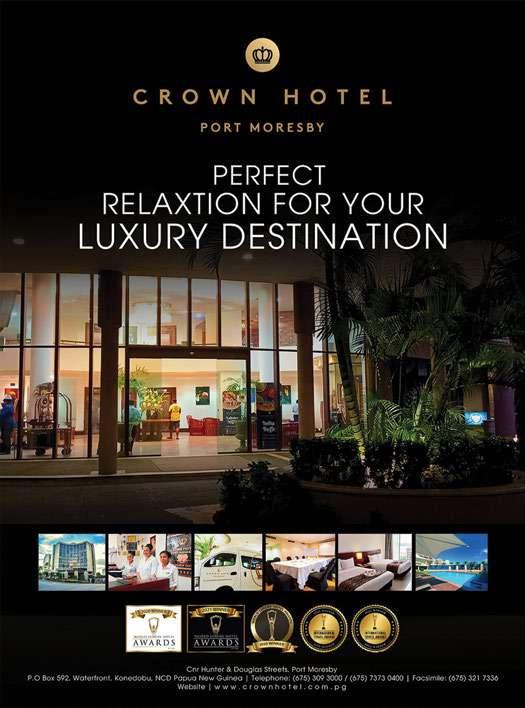
International and local visitors will be flocking into town for independence celebrations in September. Here, Mary Tao suggests five side trips in between the festivities.
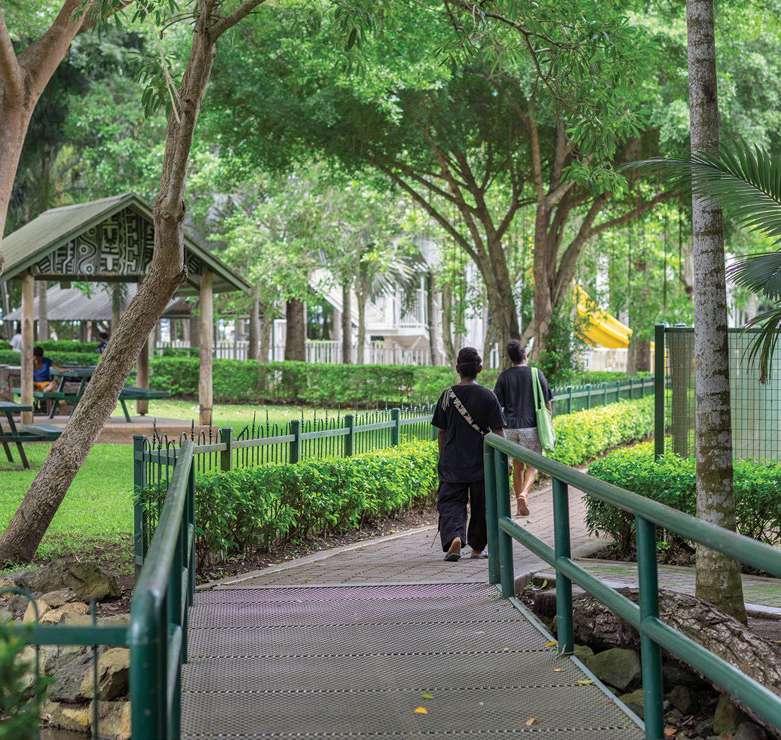
Located at 14 Mile, about 20 minutes outside the city, the extensive park provides a mix of fun activities. There’s a waterslide, merry-goround and a Ferris wheel.
There are four large artificial lakes where you can go pedal boating and fishing, as well as gardens with benches and cool spots under the trees to enjoy a picnic.
The park is home to indigenous animals and, if you’re feeling brave, there’s crocodile feeding at 3pm on weekends. The park is free, but you need to pay a small fee to enter the bird sanctuary and the National Orchid Garden within the park, which grows hundreds of orchid species.
The Banana Market – which is a fresh fruit and vegetable market – opens every Sunday.
An iconic site of the city, Ela Beach (also known as Era Kone) has been a go-to recreational spot for decades. From the beach, there is a great view of Manubada Island.
The facelift in 2018 completely changed the look of the beach: the shoreline has been reshaped and there are now winding pathways for walking or cycling, a basketball court and lots of seating.
The beach has 24-hour security and draws many residents in the late afternoon and into the evening, including joggers.
You can also have a good look at the APEC Haus and its unique lagatoi sail shape. Every year, part of the Hiri Moale Festival is celebrated on the shores.
The beach is directly opposite Ela Beach Hotel & Apartments, which has a restaurant and alfresco cafe.








This waterfront precinct stretches along Stanley Esplanade. Harbourside East and West are directly next to the water, where there is a boardwalk with a good range of cafes and restaurants, some of which remain open until late.
Across the road, connected by a skybridge, is the Harbourside South building, which opened last year. It is home to Marriott Executive Apartments as well as boutiques, a salon, smoothie bar and Japanese restaurant. Harbourside is secure, and a pleasant place to walk with sea views.
Located at Waigani, the 300-hectare tropical garden is home to many indigenous plants and animals. Wander through this oasis to see animals up close, such as endangered tree kangaroos as well as cassowaries, a flightless bird featured on the 20 toea coin that can grow up to almost two metres.
The park has had recent success in breeding the raggiana bird-of-paradise and the black-capped lory, and they can be seen too.
There are benches in the park grounds where you can stop and rest in between animal encounters, and a cafe at the entrance. Don’t forget to support the park’s efforts in conservation by buying a plush toy from the gift shop.
Local artisans gather at various locations around the city every Saturday to sell unique and colourful Papua New Guinean crafts. You can always be sure to find woven cane or pandanus baskets, patterned bilums and bold paintings from all over the country. Locations that host markets include IEA College of TAFE, Vision City Mall carpark, Moresby Arts Theatre and Holiday Inn & Suites. Check with your hotel for operating times.
For a fresh food market, the Royal Papua Yacht Club invites locals to sell their vegetables and seafood every Saturday on its boardwalk.




















The GWM Tank 300 Lux Hybrid and Tank 500 Ultra Hybrid are redefining what the 4x4 can be.
GWM
GWM




Both are unmatched in rugged terrain, but have all the creature comforts, advanced technology, and safety features proper adventurers demand from their 4x4. And with the Tank 500’s
luxurious 7-seater interior and 9-speed transmission, there’s enough room and power for a team of explorers. Hop into your local Boroko Motors dealership to test drive a GWM Tank today.





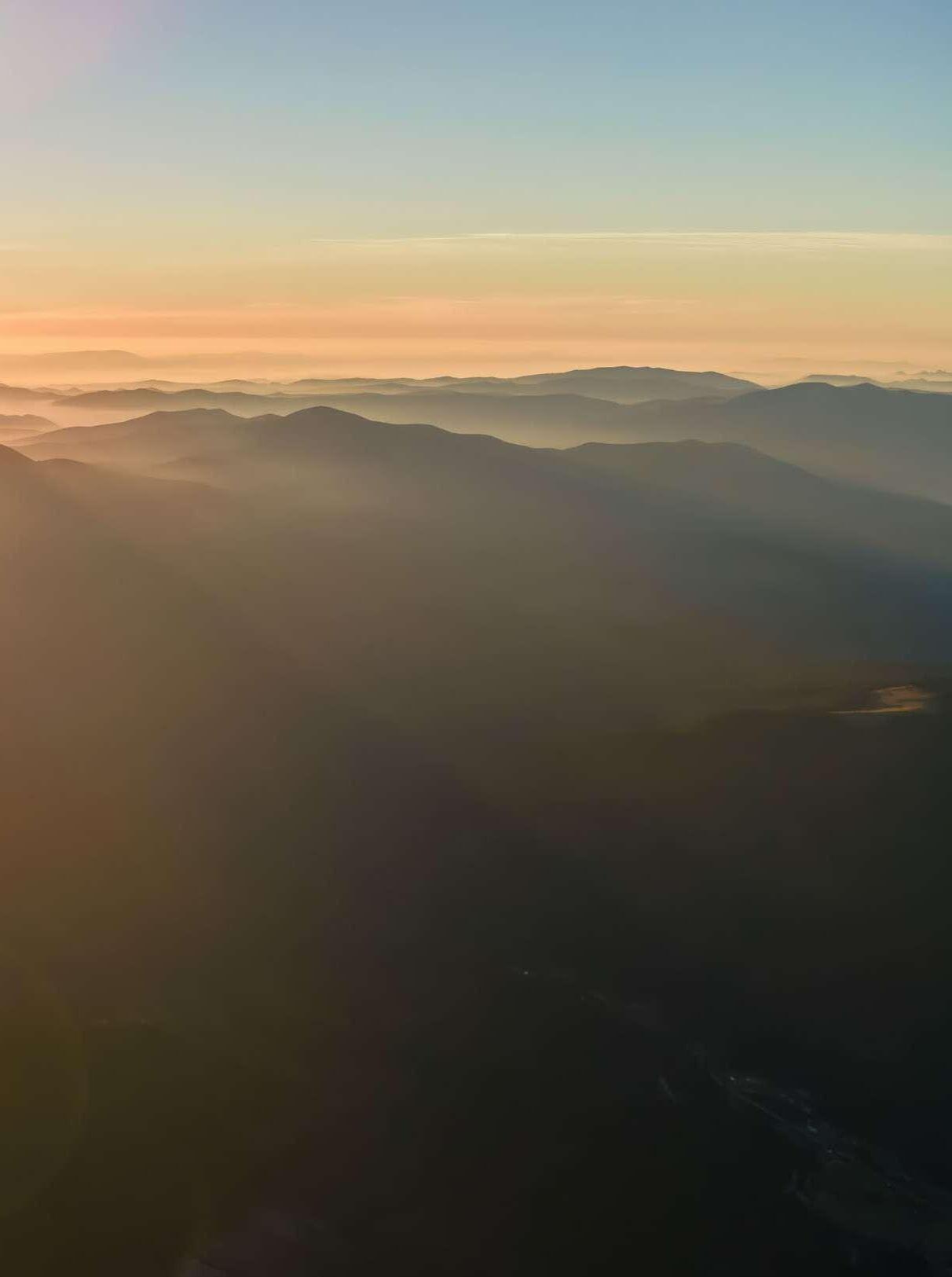
With many international visitors expected in the PNG capital for 50th anniversary celebrations in September, Mary Tao rounds up some of the key hotels.
See thestanleypng.com tel. +675 2077 888
The Stanley stands 19 storeys tall in the centre of Waigani and connects to Vision City Mall. There are eight types of accommodation, including luxurious suites and apartments. The superior twin rooms are an ideal option for families, and if you are on the fifth floor there’s easy access to the infinity pool and the gym.
For pampering, head to the Zen Spa or wander through the gift and beauty shops. The hotel also has its own small grocery shop.
The large plant walls in the Greenhaus restaurant and Rainforest Cafes create a relaxing touch. Greenhaus has a daily buffet and international a la carte menu. The Silver Leaf restaurant offers fine dining with a great view over the city and the Monsoon Bar & Lounge is a go-to spot for evening drinks and watching sport on the big screen.


Kavieng, situated at the northern tip of the island, is a picturesque destination offering tropical diving and snorkelling, surfing, fishing and kayaking through pristine tropical waters littered with amazing islands to explore.
The Kavieng Hotel is centrally located in town, a short walk from the markets and the Kavieng Golf Club. Whether you’re here on business or a family beach holiday, Kavieng Hotel caters for every traveller.



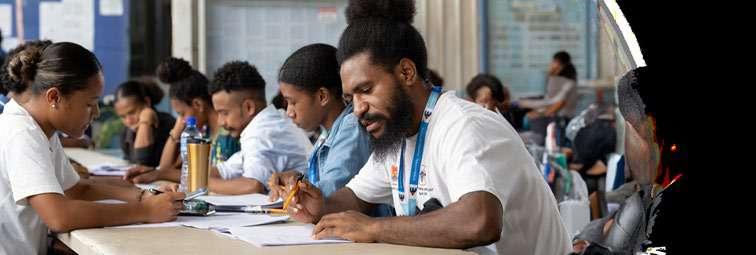

See hiltonportmoresby.hilton.com or starmountainplaza.com/the-hilton tel. +675 7501 8000
Located in Hohola, Hilton is a world of its own, exuding the style and perks that the hotel brand is renowned for.
There are multiple room options to choose from. The king studio residence has its own kitchen, lounge and all the necessary amenities for a longer stay. Enjoy the city and mountain views from the private balcony. Facilities include two pools and fitness centres.
Choices for dining include the Copper Cafe, a great spot for coffee and desserts. The Mumu restaurant offers an elevated twist on local classic dishes. You can also pop over to Host Bistro (see our review on page 72) at Hilton Residences (within the same compound) for all-day dining and a wellstocked bar to unwind.




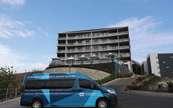


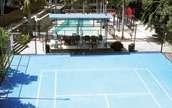
See airways.com.pg
tel. +675 324 5200
There is an immediate serenity when you enter Airways. Less than five minutes from Jacksons International Airport, its well-appointed rooms are surrounded by lush gardens with colourful native birds.
There are three main accommodation wings – Bacchus, Fountain and Dakota, the latter having its own executive lounge.
Known for its comfort and luxury, the hotel boasts a spa, pool, exclusive gym, tennis court and children’s playground.
There are various dining options throughout the hotel: the fine-dining restaurant, Bacchus, has a newly curated menu and Vue has a daily buffet. There are views to planes on the airport runway.
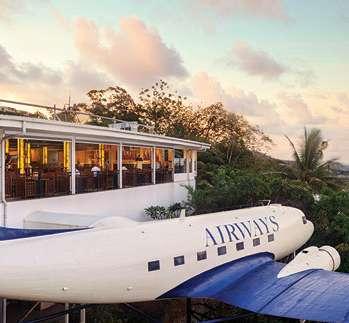

See crownhotel.com.pg
tel. +675 309 3000
Sitting on the hilltop of Hunter St, Crown offers sea and city views and is within walking distance to Ela Beach and shops.
This hotel has been a fixture in Port Moresby since the late 1970s and the standard queen to deluxe rooms have all the required amenities, are comfortable and economically priced. The executive rooms and suites are spacious and decorated with solid wooden furniture, which add warmth.
The Rapala restaurant offers fine dining from a Western and Middle Eastern inspired menu. The Cafe provides all-day dining and a daily buffet. For a quiet drink, head to the Heritage Bar or head down to Pondo Tavern for live music and bar food.

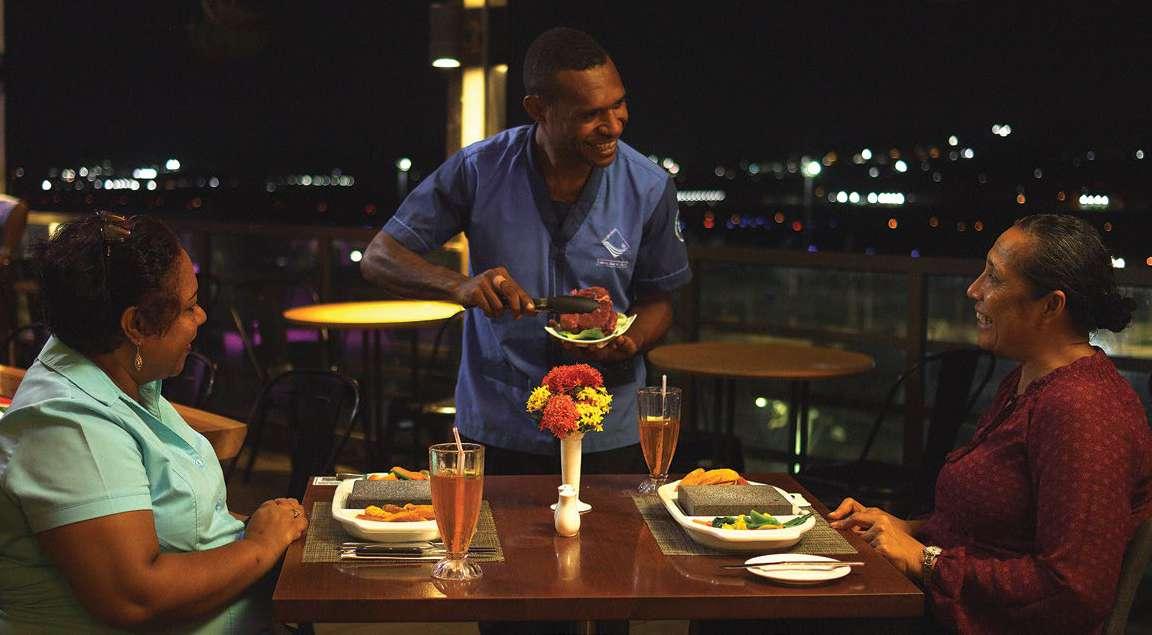
See coralseahotels.com.pg tel. +675 327 8100
Close to the airport, Gateway has standard, premier, executive rooms and self-contained apartments. Most have balconies and windows that open if you prefer fresh air to air conditioning. They are also spacious with modern furniture, and the local paintings on the walls add a splash of colour.
The swimming pool is large with an alfresco area beside it. Apartment guests have access to a gym, tennis court, kids’ playground, and private pool. The Sizzler’s Family Restaurant has budget-friendly hearty dishes while the Wild Orchid Restaurant has a buffet that changes daily. Themes range from Italian cuisine to curry dishes. Dining is also available at the Jackson’s Rooftop Bar, a popular spot with a great view for the night crowd.
See coralseahotels.com.pg/grand-papua-hotel tel. +675 304 0000
Centrally located, all 156 rooms are elegantly furnished and have private balconies and sea views.
The interior speaks of modern colonial, with local historical photos lining the hallways. Facilities include a spa, gym, pool and jacuzzi.
The Grand Brasserie has an AsianPacificinspired a la carte menu, or for a more exclusive experience, book a sunset dinner on the 15th floor. If you’re on the go, the Grand

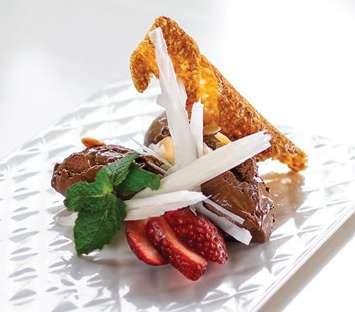
Cafe has quick breakfast and lunch options and its own signature coffee blend. The elegant Grand Bar by the lobby is ideal for a quiet drink and private meetings.
See ihg.com tel. +675 303 2000
Known for its family-friendly atmosphere, the Holiday Inn is surrounded by landscaped tropical gardens. The fitness centre is one of the largest in the city and has two squash courts.
The hotel has had recent major upgrades, including the rebranding of its main restaurant to Faya Haus, which now specialises in woodfired pizza, grilled meats and a daily buffet. The lobby convenience shop now has seating to enjoy coffee, desserts, pastries and salads.
Rooms are spacious with abundant natural light and come with either garden or city views. Options range from a standard room with a king bed to a two-bedroom suite. All rooms and suites offer a private balcony with outdoor seating.
All hotels provide free airport shuttle services.
We are proud to be 100% Papua New Guinean owned and entrenched in the country’s rich history and future.
The Group’s success and valued reputation has been achieved through Determined efforts, Professionalism, and the consistent and Safe delivery of Quality services in observance of AUS/NZ industry Standards to achieve the desired outcomes of our Clients.
Minpac is recognized as a GEDSI industry leader with a systematic approach to integrate the core goals of Gender Equality, Disability and Social Inclusion including safeguard action plans on our Projects.
Minpac’s Comprehensive On the Job Training regime (OJT) imparts Purpose, Scope and Diligent Procedures for employee training, needs assessment, evaluation and continual improvement.
Our ability to work collaboratively with project partners to find solutions that enhance delivery results defines our enviable reputation in the Construction Industry in PNG.
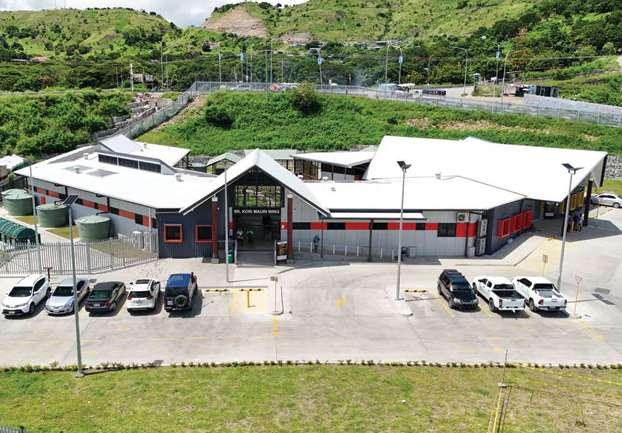






Turtle Island is an indulgent getaway, reserved for couples only.
Chilled cocktails, private beaches and farm-to-table food are the order of the day. Paul Chai reports.
You don’t just visit Turtle Island, you move in. The moment you alight the seaplane from Nadi, you are greeted with warm hugs, chilled cocktails (your favourite drink, pre-ordered), and earnest whispers of ‘welcome home’, even if you have never set foot on the island before.
When my wife and I arrive at our bure, one of just 14 facing the Blue Lagoon,

there is a hand-carved sign hanging above the door with our names and the date of our visit.
Inside is a hand-written itinerary on a desk covered with hand-picked hibiscus flowers.
Our Turtle Island home consists of a living space with huge couch and fern-printed throw cushions, a king-sized four-poster bed with gnarled tree branches holding up
the white canopy and a sunken spa in the corner of the room; floor-to-ceiling glass louvres surround you and can be opened to let in the sea breeze. It is all capped off by a hand-woven traditional roof. Our new abode manages to feel both ultra-luxurious and congenial.
Turtle Island is a couples-only resort that lies in the Yasawa chain of islands in western Fiji, and this magical, handmade-luxury feel

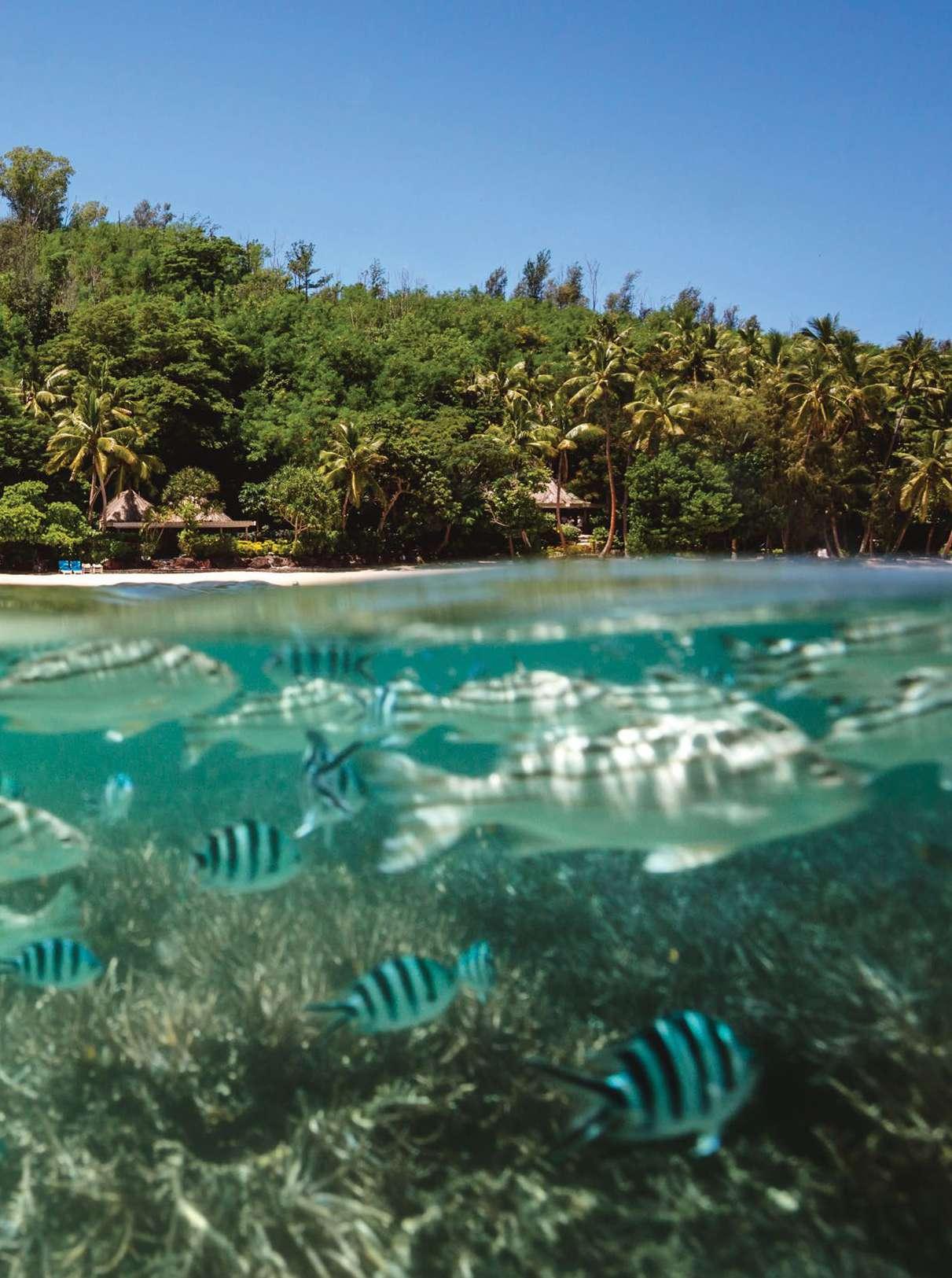
is no accident. The origin story of the island is that the late US businessman Richard Evanson was looking to escape his hectic life in America and bought the island in 1972 after meeting the owner in a bar.
But Turtle Island looked very different back then – it was almost entirely denuded by feral goats, so Evanson asked the chief of Matacawalevu (Big Beach) Island opposite for help rebuilding the island.
Five decades later, Turtle Island is special in the same way that hand-rolled pasta will always taste better than mass-produced: there is love and passion in all elements of the resort.
You don’t just go to the beach on Turtle Island, you are escorted to a private beach. The island does not have a lobby, rather a communal spot on the beach where you take breakfast on the sand and consult




the turtle-shaped blackboard filled with the day’s activities.
When our turn comes for a private getaway we are taken to Devil’s Beach by boat. This stretch of sand is where The Blue Lagoon was filmed in the 1980s, starring a young Brooke Shields. There are a dozen private beaches, each with their own personality. You get early shade at Devil’s Beach, access to fringed reef with turtles and rays at Shell Beach, while Nudy Beach is on the wilder side of the island where the wind whips up waves.
You don’t go to dinner at Turtle Island, you go to a dinner party. Evenings at the resort start with a sunset ritual: a gathering for cocktails where guests introduce themselves on arrival and give their island highlights on departure; then everyone heads to a communal table. Because there is a maximum of 14 couples on the island you don’t just make memories here, you make friends.
Guests also bond over shared activities like karaoke nights, sunset cruises and special dinners set among the resort’s garden beds, strung with fairy lights.
The food is farm-to-table: part of Richard Evanson’s legacy of living on the island is that 90 per cent of your plate is raised, grown or foraged a few hundred metres from where you eat it.
You might see a table full of Fijian delicacies like spicy calamari, white fish cooked in coconut milk or a tower of fresh crab.
A Turtle Island ritual is the evening kava nights. After dinner the kava mat is rolled out and a rotating roster of staff host the ceremony where you sit cross-legged with them and sip the root-based drink, served from a giant turtle-shaped bowl.
You never say goodbye on Turtle Island, just ‘see you next time’. Most people we meet on the island are returning guests and by the end of our stay we understand why. Turtle Island is beguiling, a bespoke vision of island luxury that has taken one man’s passion and gifted it to everyone to enjoy.
See turtlefiji.com.
Air Niugini flies from Port Moresby to Nadi once a week. See airniugini. com.pg.

Located in the heart of Port Moresby’s industrial and investors seamless accessibility through land and sea domestic and global markets.
Measuring 38 hectares of secured prime land that is registered on a clear 99 year state lease, PORTSIDE is envisaged to become a premier economic hub for the
Backed by PNG-based Steamships Limited, an ASX and PNGX listed entity, it will include quality facilities and features designed to cater for the needs of a wide spectrum of organisations.
PORTSIDE Business Park features:
Proximity to Motukea Inter national Wharf
Supporting Retail Spaces
Built-to-Suit Warehouses
Industrial Flex Spaces
Aggregate Storage


BY GREG CLARKE
Tel +61 (0)7 3139 8100, 2 Dryandra Road Brisbane Airport, see ibisba.com.au
WHO STAYS? An equal mix of business and leisure travellers.
HOW BIG? 243 keys.
COST My standard double room cost
A$229 (PGK599). The hotel advises prices can vary according to demand so best to refer to website for rates.
CHECK IN 24 hours
CHECK OUT 11am
HIGHLIGHTS There is a free shuttle bus from the international terminal to the domestic terminal. It is about a seven-minute walk to the hotel from outside the domestic airport terminal. The bus ride is short too (about five minutes) and the proximity of the hotel is as welcome as the hot shower that awaits soon after collecting your bags from the flight.
NEARBY The Pullman, sister hotel to the Ibis, is next door.
Wi-Fi in rooms/public areas:
TV:
Air conditioning in room:
Room service:
Swimming pool:
Free airport transfers:
Gym:
Business centre:
Hotel arranges tours:
Breakfast included in room charge:
*Breakfast costs an additional A$22 booked in advance or A$28 for walk-ins.

The hotel is in the extended hub of the airport precinct. For those who walk to it, follow the signs from outside the domestic terminal carefully – up the footbridge towards the train station, through the walkway of the carpark and down a travelator to a footpath. It can be easy to get a little confused as the hotel’s fluorescent sign is visible from the terminal, but the signposted walking route is more circuitous. The hotel also has a shuttle service (A$8 per person), which operates on a scheduled loop – 4am to 9am only – between the domestic and international terminals.
It is busy on the night of my stay. My room on the ninth floor includes views over part of one of the runways. Hand towels on the bed have been fashioned into a love heart shape with small chocolates in the middle. Simple enough but to me shows that people here care.
The hotel has two room types: a standard queen room and a standard twin room that has a double and a single bed.
My queen room, as standard as hotel rooms can be, is clean and quiet (a little plane noise isn’t bothersome) and has coffee and a kettle for an early morning start. All rooms at the hotel come with blackout curtains for anyone who needs daytime slumber.
A restaurant – The Cribb Island Beach Club – is on the ground floor. Burgers, pizzas and Asian dishes are on the a la carte menu. It’s open for lunch and dinner from 11am to 10pm. Breakfast is served from 5.30am to 10am. The appealing rooftop area of the hotel is only open for private functions.
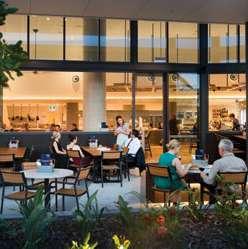
“We had a very pleasant young gentleman greet us and handle our reservation. Location was ideal as we had an early flight; dined at the restaurant on site which was very nice.” –Booking.com
“Room service took a while, but food was great, staff super helpful and friendly. Room comfortable and very clean. Everything we needed for the nine hours we were there.” – Hotels.com

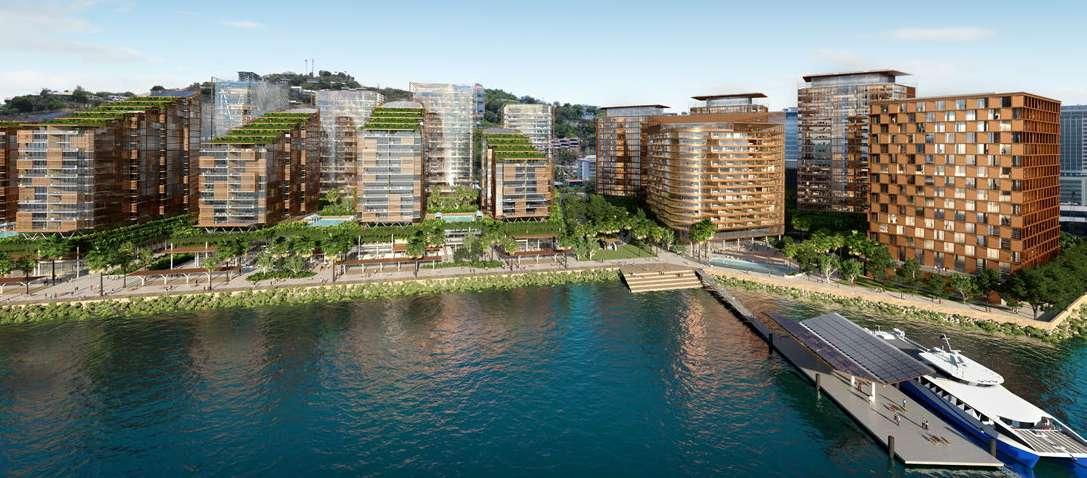
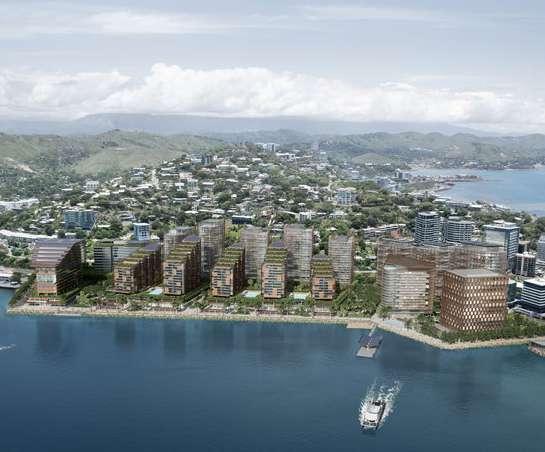
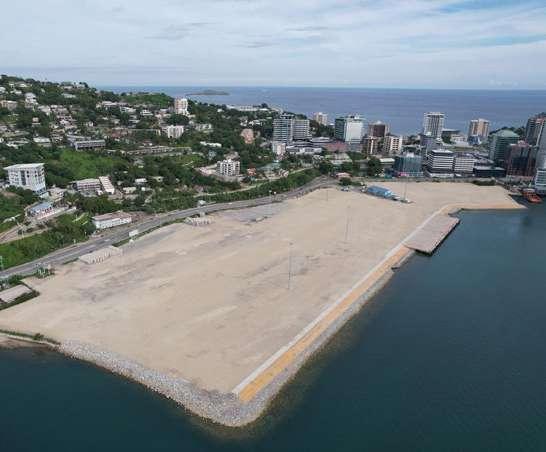
Ashton Brunswick on behalf of Kumul Consolidated Holdings (KCH) are proud to offer to the market a premium waterfront, approved development site consisting of 4 zones and 13 lots, for sale in one line or individually.
• Strategically located on Champion Parade, Port Moresby (formally the old Port Site), a prime and accessible area
• Exceptional front-row views over Fairfax Harbour
• A unique and picturesque setting for both residents and businesses
• Approval given from NCD Physical Planning Board (NCDPPB) for outlined planning permission for the masterplan concept
• Masterplan designed by leading Australian Architectural firm Architectus, in conjunction with EJE Architects & Premise Engineers
To register your interest
Email: portsidegardensales@ashtonbrunswick.com
Or enquiries
Sara Pratt
+61 413 054 858 advisory@ashtonbrunswick.com
Richard
+61 405 697 470 rbs@ashtonbrunswick.com
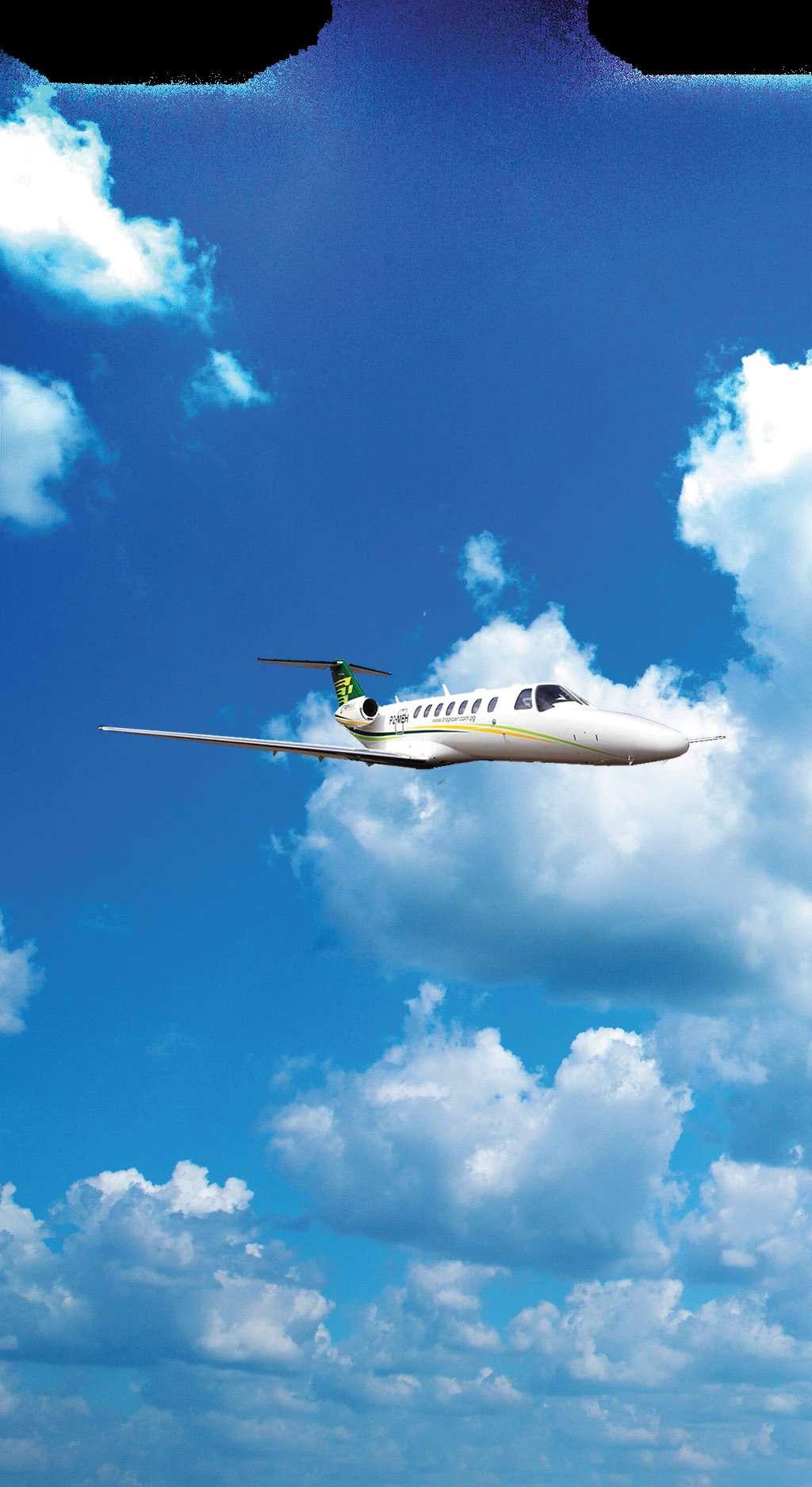



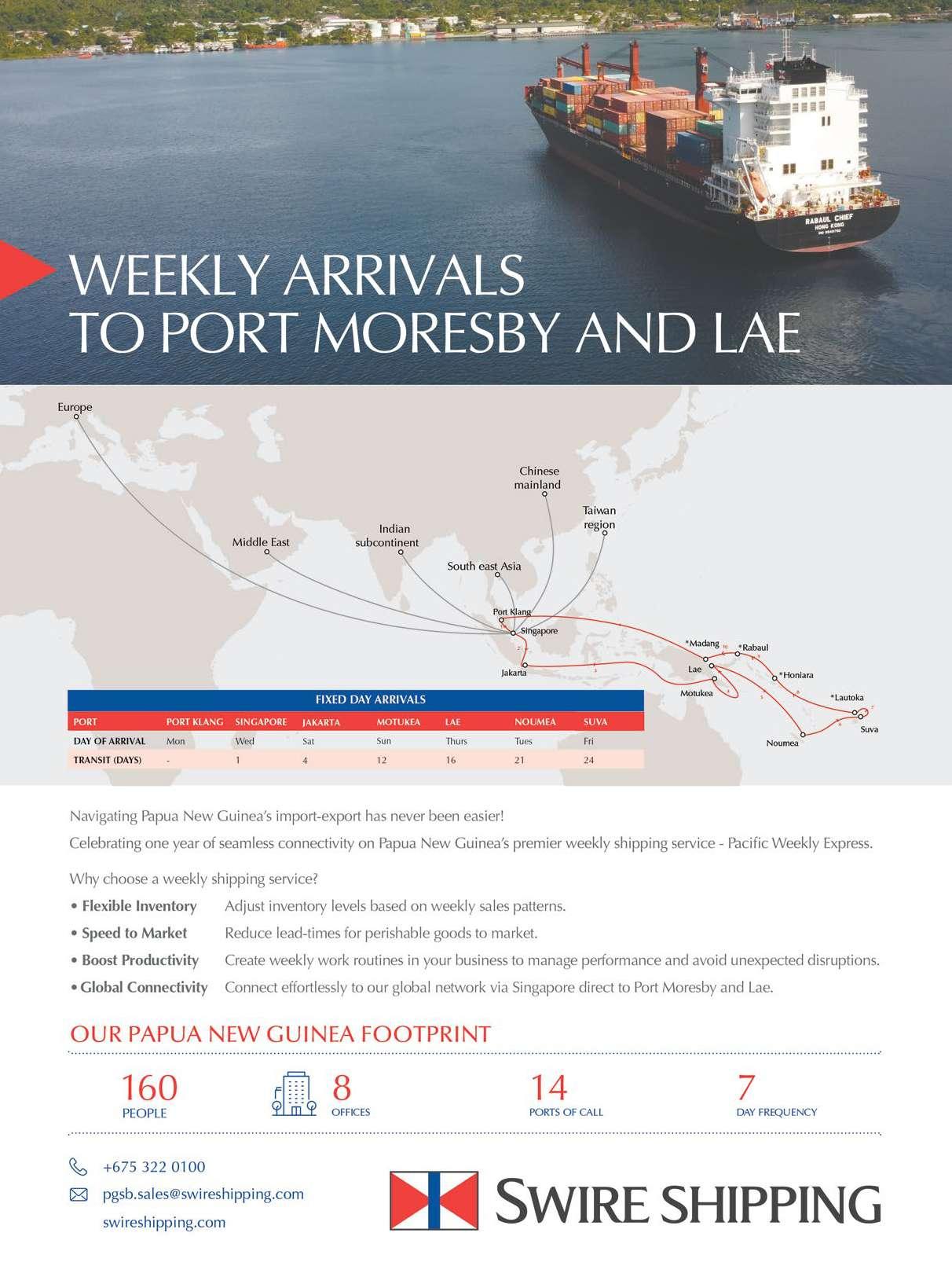
She comes from a long line of PNG drummers and dancers, and now Mea Joy Ingram is finding her own rhythm, writes Belinda Jackson.
Standing on stage, the drummer wears a lap lap (sarong), a headdress made from cassowary feathers, her neck strung with strands of shells, beads and boars’ tusks called doa. Her face bears reva reva cultural markings of the Motu women, and in her hands the sticks to play the garamut, the traditional log drums of Papua New Guinea.
The garamut, a slit drum made from a single hollowed out log, has traditionally been played only by men, but at just 18 years of age, Mea Joy Ingram is the face of a new generation of female log drummers emerging from Oceania.
Her gender aside, it’s no surprise Ingram is a drummer.
“There’s always been drumming around me, since I was a baby. I can’t remember it not being there,” says the Darwin-based performer.
Brought up in a household brimming with musical talent, Ingram is the daughter of master percussionist and songwriter Airileke Ingram, from Gabagaba village 90 minutes south of Port Moresby. She has grown up between Port Moresby, Melbourne and Darwin, in northern Australia.
“The beats have been in my family from before I was born.”
Ingram has 20 garamut drums, including one carved in Moresby by Bubu Lubi from Balimo (500 kilometres west of the capital, in the Western Province) and another given to her by Bubu Lungol Popeu of Paluai Sook Sook cultural dance group from Baluan Island.
“Bubu Lungol came to Darwin and taught me and my family,” she says. He also gave her the name Songou, a name in the Paluai language spoken on the islands in Manus Province, and the drum, inscribed with a
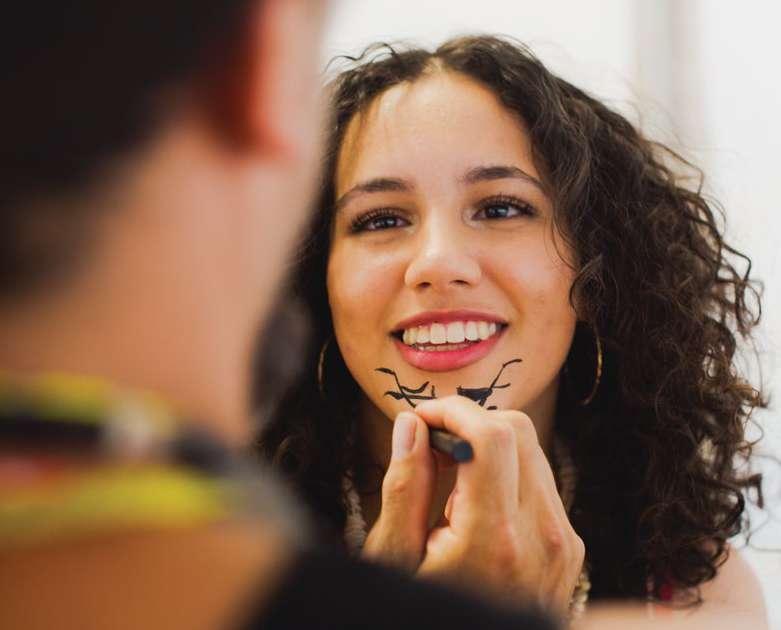
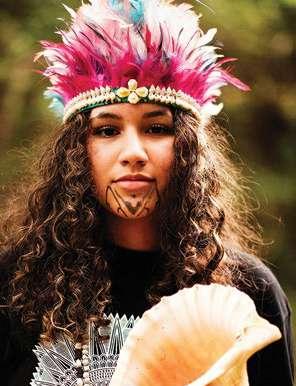

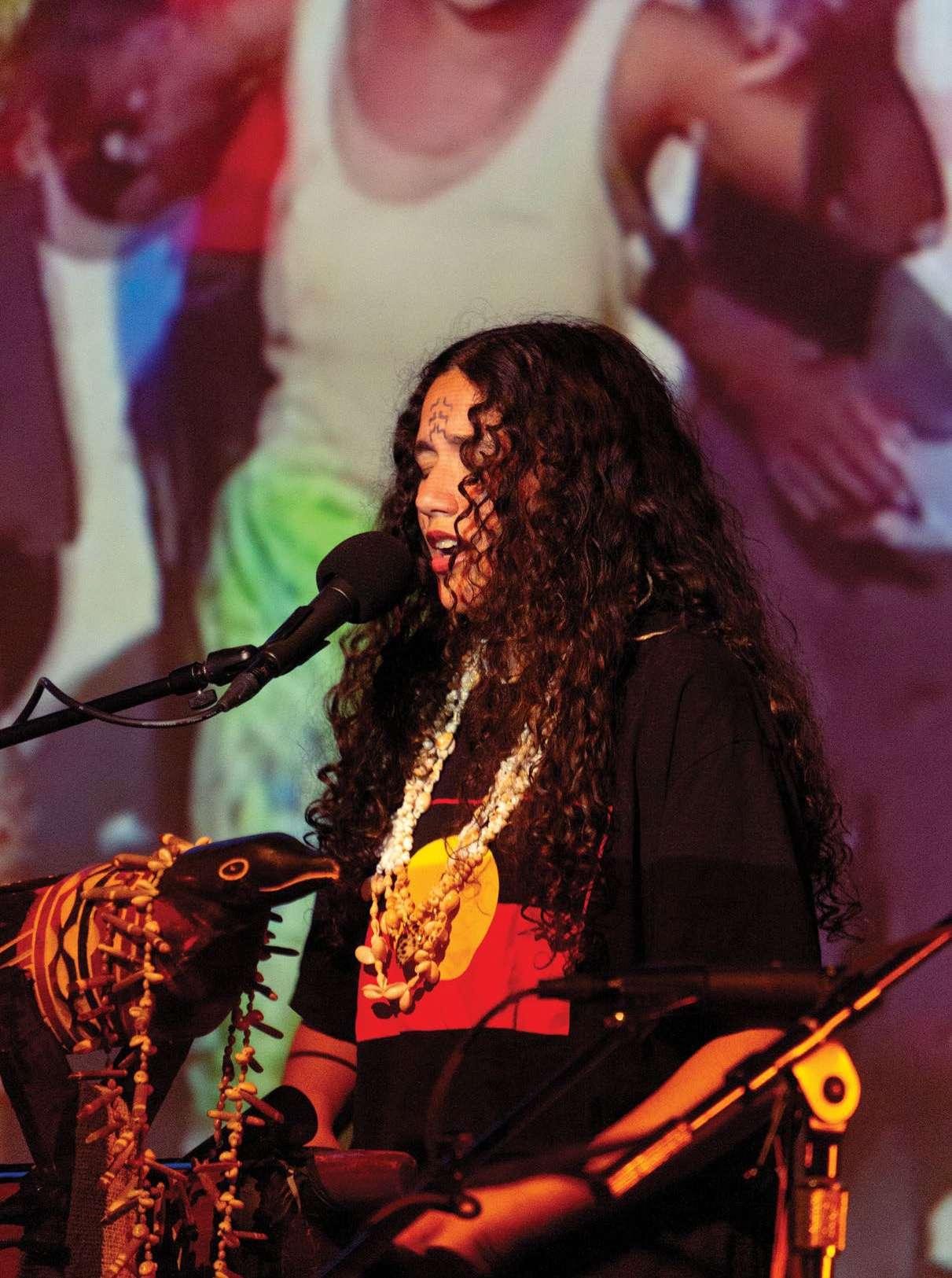
Ingram performs with a garamut (Papuan log drum) at the University of California in Los Angeles.
message. ‘Tokim Mea … Garamut em - em ya.’ (‘Tell them, Mea. Garamut is you.’)
Ingram also plays the smaller pate, another type of slit drum originating from Aitutaki in the Cook Islands.
“I like playing both, but the Cook Islands style is a lot easier to move around with – the garamuts are so heavy, at up to 25 kilograms, you have to have two or three people to carry them,” she says.
“Since I was little, I’d sit with the garamuts and play them, as most little kids do in the village. Then I started learning from my dad to play properly when I was nine.
“I had just moved to Darwin with my mum, and my dad was between Melbourne and PNG, but he would come visit and teach me these beats. It was nice to have something that not only connects me to my culture, but connects me to my dad, as well.”




For the past decade, Ingram has been learning from Airileke and started performing with him at cultural events and music festivals in Australia. Most recently, they toured the US together with the Small Island Big Song project, a collaboration between 16 island nations of the Pacific and Indian oceans, aimed at reconnecting the musical traditions of the region.
“The beats we play are for entertainment and contemporary music. It’s not ritual drumming,” Ingram says. “I know about the ritual drumming styles like Sakisim from Sepik, but I don’t play those beats. They are sacred and only for hausman, I respect that.”
Drumming is still male dominated, says Ingram, but she is part of a broader movement across the Pacific Islands.
“I remember drumming with my dad, my brother and the grandmaster Bubu Lungol and his sons at their house, and I saw that the young girls weren’t playing. Now they are, and that’s cool to see. And in places like

The
have been pretty big, and I’m nervous every single time.
the first generation of girls in PNG to start drumming.
“Seeing them and listening to the songs and knowing it’s them playing, I really aspire to be like them.”
Ingram continues to drum with her father at such events as Blaktivism, Bluesfest, WOMADelaide and next year at the biennial Pasifix event in Melbourne.
“The audiences have been pretty big, and I’m nervous every single time,” Ingram admits.
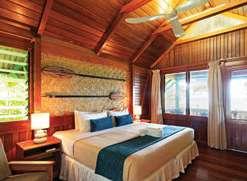
Tahiti and the Cook Islands, girls are now drumming, too.
“People are usually supportive, I’ve only ever heard positive feedback, sometimes people are very surprised to see a girl drumming, but they think girls should be allowed to do these things.”
When asked to name any women drummers that have inspired her, she doesn’t hesitate.
“My dad’s original band, Drum Drum, included his sisters Tau, Paia and Ranu, as well as my mum, Anna. They were all drummers,
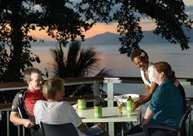


“Usually, though, I get into the moment, into a sort of trance, especially when I’m playing such old beats.
“You’ve really got to think about who you are representing, and I guess that gives me the confidence I should be proud to perform this in front of people. I usually think of my family in the village we’re from, I think about my grandma, and I think about our culture, and just knowing that’s what I am showing to people. I hope I pose a positive image of PNG.”


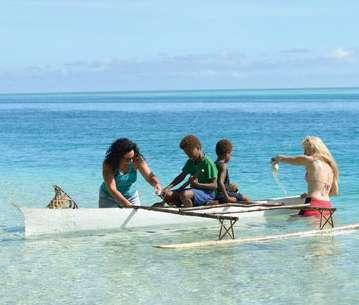


Lemach Lavari reports on the little village that has a big cricketing heart.
Picture this, it’s a 30-degree day and you’re sitting under the mango tree in your backyard, sipping a cold drink while watching your community come alive with music and a local T20 cricket match.
This is a regular scene at Kira Kira, a traditional Koitabu village in Port Moresby.
In Kira Kira, cricket has a long and rich history. The sport was introduced by missionaries from the London Missionary Society in the 1930s.
The Kira Kira Cricket Club (KCC) celebrated its 50th anniversary recently. The club’s cricket pitch was opened in 1974 by Michael Somare, who later became Papua New Guinea’s first prime minister. The pitch, which is still in use today, is a concrete slab, which is cushioned with mats during matches.
KCC runs T20 cricket, which is the shortened format of cricket. The club has seven teams competing across junior and senior men’s divisions. A women’s competition is being planned.
All the matches are played on the same oval, located in the heart of the village. If you’re hitting sixes, you’re hitting rooftops and the walls of houses.
KCC is known for producing some of the best male and female cricketers from PNG, from Daure Lohia, Eddie Tamarua and Babani Harry of the 1980s to Hiri Hiri and Kiplin Doriga, who are part of the current men’s national team, the Barramundis.
Female players include Norma Ovasuru and Nao Kone, who are former national representatives in the PNG Lewas team.
Pioneer cricketer Eddie Tamarua, who was national coach of the Lewas, is contributing his experience for the junior development of cricket in Kira Kira. He says junior development is the key to developing high-value players.
This is also the view of Banaga Mado, who is in charge of KCC’s junior competitions. Banaga believes there is a large talent pool in Kira Kira, and the dream is to create a development pathway to major international leagues in Australia and India.


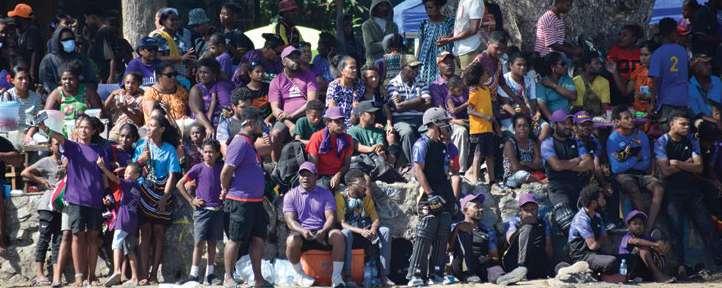


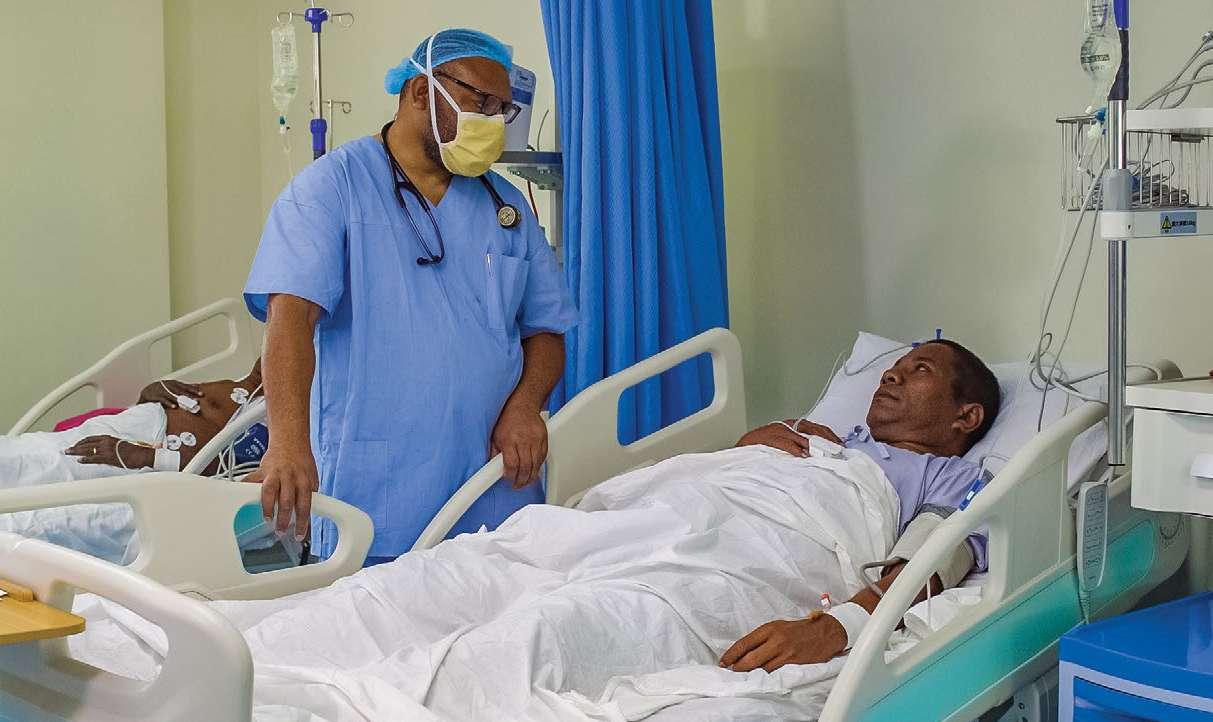
K500,000
BY ROBERT HAMILTON-JONES
Iwas in two minds about reviewing Host. Not that it doesn’t merit a review, I just wasn’t sure if I wanted anyone else to find out about it.
Since the Hilton Hotel opened in Port Moresby in 2018 its lobby-level Copper Cafe has become so popular among the local business community that I’m surprised the cafe doesn’t charge some patrons rent. But all-day diner Host is tucked away out of sight, on the second floor of the Residences building that opened 12 months ago (adjacent to the Hubworks co-working space). I am amazed how many Copper regulars still don’t even know it exists.
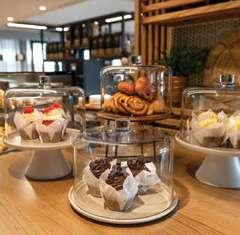
The fit-out is classy and contemporary, with plenty of natural light and some subtle PNG touches. There’s a practical mix of counter seating and regular tables. And it is conveniently open from 6.30am for breakfast (or just coffee) right through until evening when it morphs into a pleasant dinner venue.
I particularly like the a la carte breakfast.
On a recent visit I ordered poached eggs with smoked salmon, which was excellently prepared and presented, while my espresso arrived in a cute cup that looked handmade (even if it probably
WHERE:
Star Mountain Plaza, Wards Road, Hohola.
PHONE: +675 7901 8000
ONLINE:
starmountainplaza.com/restaurants-bars/host
OPEN:
6.30am to 11pm daily.
STYLE:
All-day cafe/bistro (licensed).
Breakfast from about PGK55–70; lunch and dinner mains from about PGK60 (beef burger) to PGK260 (wagyu scotch fillet); small bites about PGK40 (such as curry puffs and mac and cheese balls).

OUR FAVOURITE DISH:
Poached eggs with smoked salmon.
IN A PHRASE:
Port Moresby’s best all-day eatery.
wasn’t). The rest of the menu ranges from the conventional (granola, pastries) to the more adventurous (dhal, waffles and even a nutritious ‘Super Bowl’).
Breakfast at Host is not cheap. But it might just be the best option in town and if you have a business meeting – or just want to be spoilt – it’s certainly worth it. Anyway, the cat is certainly out of the bag now.
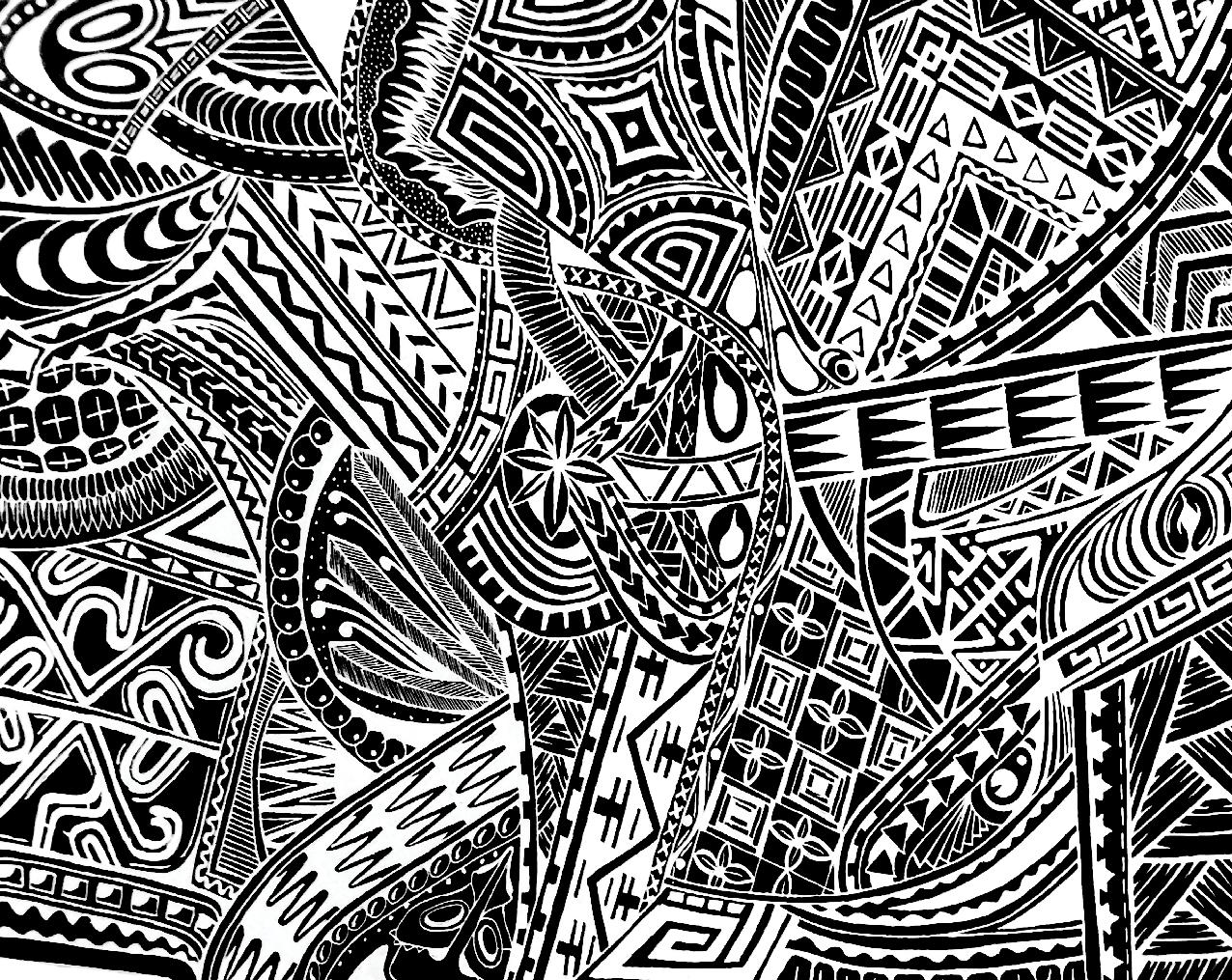


BY PAUL CHAI
Q: How long does wine last after you open it?
A: Like many things in the wine world, this question doesn’t have a simple answer. Opened wine lasts on average one to six days before being affected by oxygen or bacteria, which change the taste.
Red wine lasts the longest due to higher tannins, which protect against oxygen; white wine lasts around two to four days and sparkling wine is hardly worth keeping at all.
How you keep the wine is also important; if you don’t store it properly you might find it goes off more quickly.
Wine should be stored tightly sealed in an upright position so that less of the wine’s surface area is exposed to oxygen. You should also refrigerate your opened wine bottle, even the red. You can always warm it up just before you drink it again. You must store the wine away from sunlight and, if you are
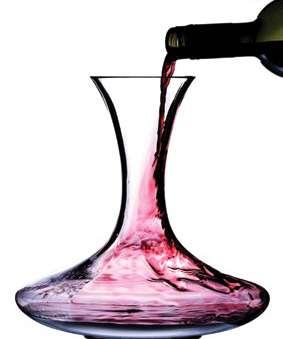
really keen to keep it fresher, decant it into a smaller container so there is less oxygen in the bottle to start the wine spoiling. In fact, if you really want to extend the life of your opened wine, you can invest in a wine preservation system. These devices remove the oxygen from an open bottle and can add about two weeks of extra life to an open wine.
The systems vary widely in price, from a professional system favoured by restaurants that replaces the oxygen with argon gas (Coravin Wine Preservation System, about PGK1000), to a simple vacuum pump that takes as much of the oxygen out as possible before sealing the wine (about PGK80).
For the casual wine fan, a tight seal, upright in the fridge should do the trick.
Do you have a wine question? Email us at paradise@ businessadvantageinternational.com.
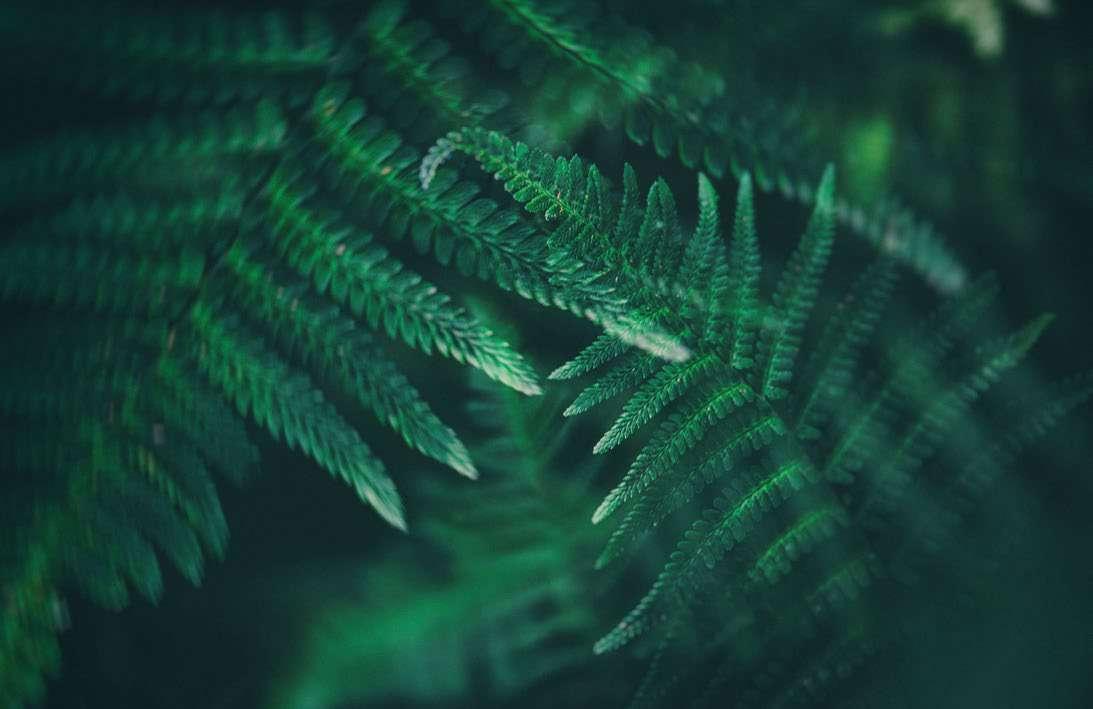










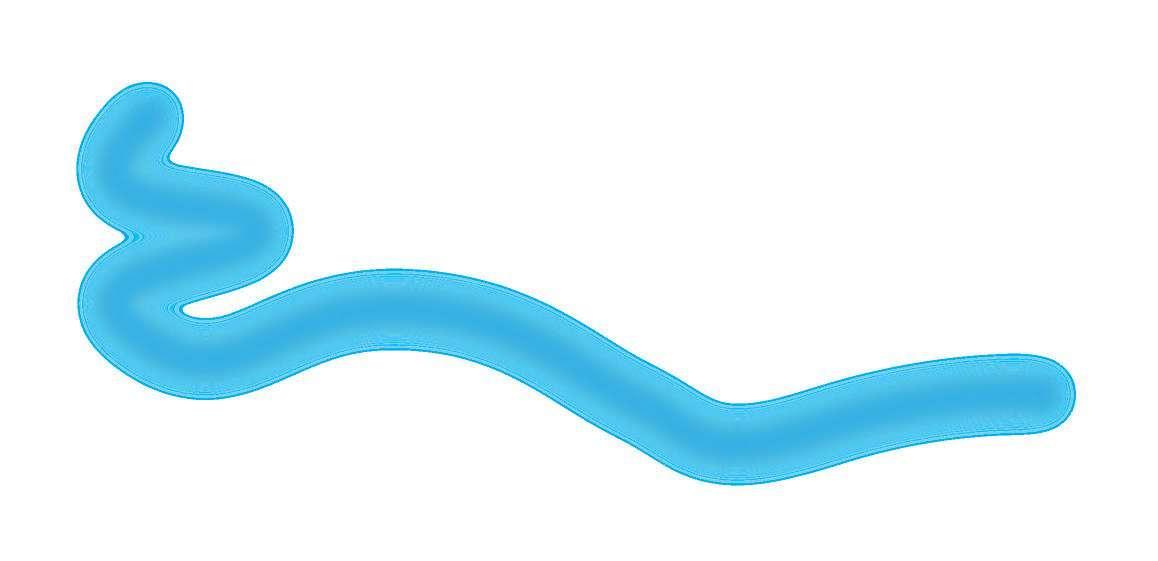

BY BRONWEN GORA
Two main exercise styles dominate fitness training, and they couldn’t be any more different. One involves brief and intense bouts of movement, and the other involves longer and slower activity.
So, it’s reasonable to ask, which is most effective?
HIIT – or high-intensity interval training –consists of short bursts of activity lasting one to three minutes – anything from running on the spot to skipping, running up flights of stairs as fast as possible, boxing and so on, with a short rest in between.
On the flipside is moderate-intensity exercise – continuous movement such as brisk walking, cycling and jogging at a manageable pace.

Plenty of claims are made that one is better than the other, but the truth is somewhere in between.
One of the most comprehensive studies into HIIT revealed positive outcomes for a sample group of over 25,000 people aged around 60 years whose only routine exercise was a minute or two of high-intensity exercise. The results showed these people had significantly lower chances of dying or developing heart disease over the next seven years.
A similarly large study into moderateintensity exercise showed that risks of heart disease, cancer and premature death dropped by at least 10 per cent.
The bottom line? Both styles of exercise are good for you says Dr Meagan Wasfy, a sports cardiologist at Harvard Universityaffiliated Massachusetts General Hospital.
“What matters most is moving your body and doing more of it,” Dr Wasfy told Harvard University’s Women’s Health Watch journal. “The sum of movement, over the course of a year or decades of your life, is what matters.”
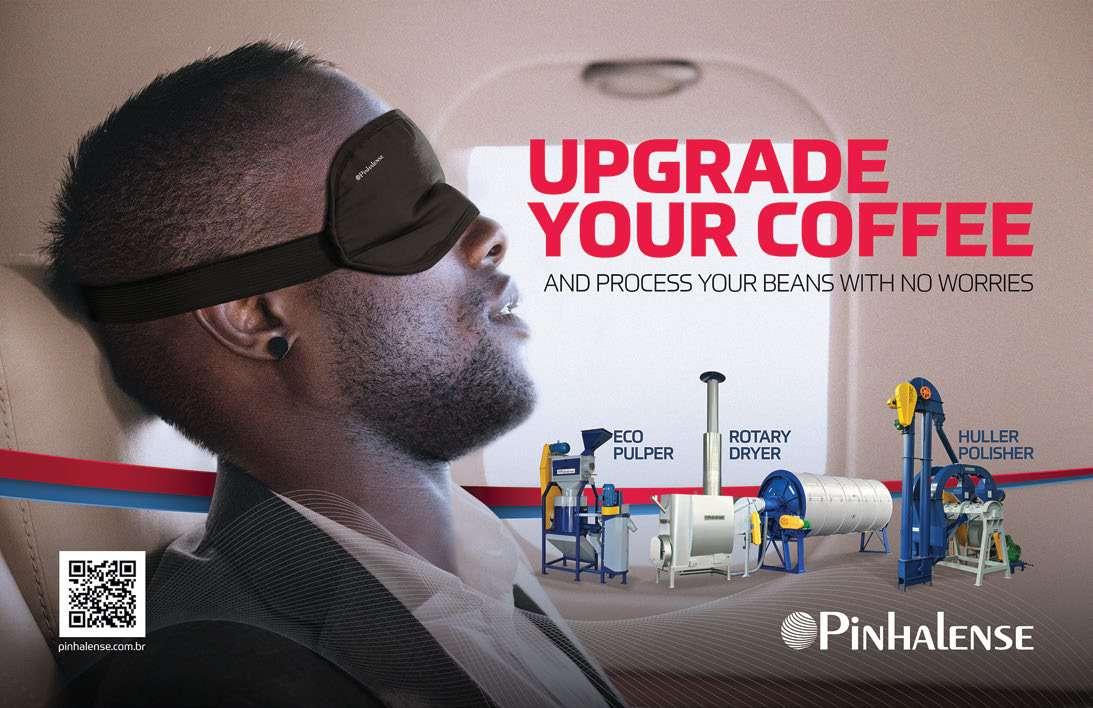

BY BRONWEN GORA
Share holiday photos and more with family and friends via the high-tech Skylight Digital Picture Frame. Created for easy use, you simply plug it in, connect to Wi-Fi via the touchscreen and pick a unique Skylight email. Once that process is complete, you, family and friends can send photos to the frame by app or email and the pictures will appear instantly. Users can swipe, browse, delete or pause the slideshow with a simple tap, and while Wi-Fi is needed for updates, your photos stay viewable anytime. Available in 10-inch (PGK507) or 15-inch size (PGK762) frames; au.skylightframe.com


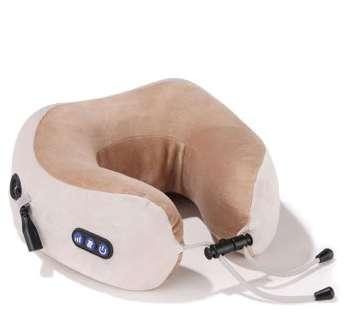
The Garmin Fenix 8 Multisport GPS smartwatch is the ultimate gadget for adventurers and travellers largely due to its 16 days of battery life combined with a host of other features ideal for on-grid and off-grid touring. These include ABC sensors and TopoActive maps that can be downloaded via Wi-Fi, plus a dynamic roundtrip routing feature that simplifies adventure planning with turn-by-turn directions, ensuring you return to your starting point. As for other features, there is a vibrant AMOLED display, a durable titanium bezel and a built-in LED flashlight. A speaker and microphone allow for hands-free calls. PGK4711; garmin.com.
This high-tech travel pillow allows you to nod off to sleep safe in the knowledge that you won’t jerk awake due to the dreaded (and often painful) head drop. The Bodico pure memory foam pillow has an in-built massager and heat function to make it a travelling essential. Who wouldn’t want to untie their tired neck muscles with an in-built massager? Rechargeable via USB-C interface. PGK125; bodico.au.

Photographs and videos are often compromised by such eyesores as powerlines and rubbish tins. But if you have the GoPro MAX, you can capture everything around you in 5.6K spherical video while completely erasing an unwanted item like your extension pole (or those powerlines or rubbish tins) from the shot. This is because the GoPro MAX allows you to create immersive point-of-view footage and automatically track objects, while its powerful editing tools allow the creation of sharable videos right from your phone. PGK1530; gopro.com.

The Ellia Cadence Ultrasonic Wi-Fi Diffuser makes your home an oasis of calm. This one uses ultrasound waves to disperse fragrant essential oils that create a relaxing atmosphere. Wi-Fi connectivity means you can control it remotely as well as choose from a range of uplifting or relaxing sounds. Ellia provides continuous diffusing for up to 10 hours or intermittent diffusing for 20 hours per 200-millilitre tank, and a remote-controlled colour-changing light shines through the diffuser’s textured ceramic and wood construction. PGK227; kogan.com.

When this undergarment was recently released it sold out within hours. It’s popular because of the complete comfort and superior fit offered by the material – a buttery soft organic viscose made from bamboo. The Step One SmoothFit Bra’s fabric is also hypoallergenic, making it even more suitable for travellers to the tropics and those who live in hot climates. The SmoothFit comes in five core colours: black, pink, nude, white and blue. PGK100; stepone.life.
Need a waterproof camera? The Kodak Pixpro WPZ2 Digital Camera is not only that but it’s also shockproof, dustproof and therefore ready for virtually any adventure you can dream of. Use it in, on or under the water down to 15 metres while utilising its multiple scene modes aimed at ensuring you capture the best shot possible. This model also offers HD video. PGK725; kodakpixpro.com.

This nifty little carry-on suitcase is touted as the lightest ever made. The Feather Flight by Kathmandu weighs 1.6 kilograms but offers 40 litres of packing space. PGK896; kathmandu.com.au.
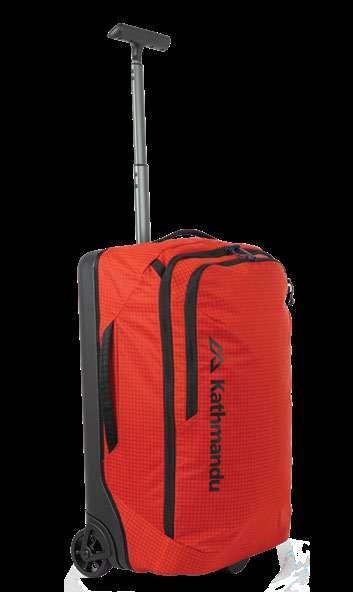

The Powerbeats Pro 2 fitness headphones may be small but they sure pack a punch. In the most advanced Powerbeats model so far, every feature has been improved to provide athletes with powerful immersive sound, heart-rate monitoring, 45 hours of battery life and a redesigned ear hook for better fit. Advanced noise-cancelling technology is now combined with a transparency mode that allows the user to also hear the world around them. PGK1028; apple.com.

Lido The Label tote bags are created with the traveller in mind. They can be used as carry-on luggage or conveniently rolled up and packed in the suitcase for use at your destination. Hand woven from recycled plastic and water resistant, the totes come in a variety of colours and sizes. Mini PGK103; medium PGK128; large PGK180; lidothelabel.com.au.
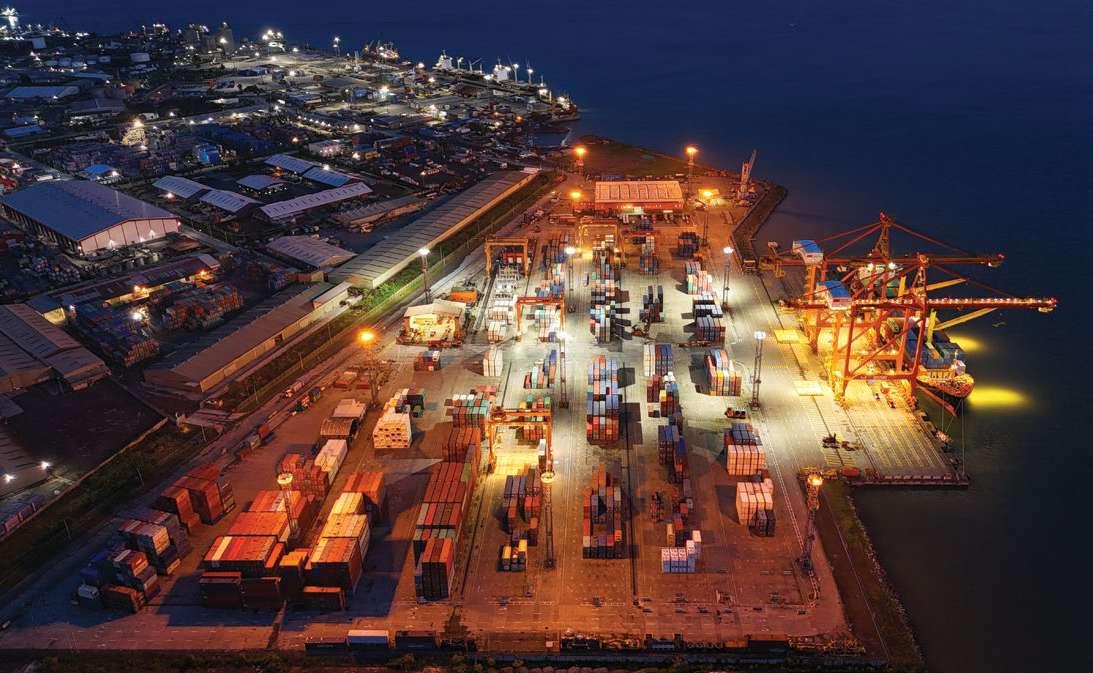
Paul Chai reports that new cranes and systems have dramatically improved the efficiency of PNG’s ports.
ICTSI South Pacific, operator of Papua New Guinea’s two international ports, has long been a barometer for the wider economy as the number of exports rise and fall. But internally, it judges its own performance by how quickly it can unload and turn around the ships in port.
The company recently invested PGK100 million in equipment and generators at its Motukea International Terminal, near Port Moresby, and its South Pacific International Container Terminal, in Lae, and is already seeing a tangible benefit, according to ICTSI South Pacific’s Chief Executive Officer, Robert Maxwell.
“When we deployed our ship-to-shore gantry cranes at the beginning of 2023, we really improved productivity, which in
this industry is measured by the number of containers you can lift on and off of the ship in one hour,” Maxwell says.
“On the big ships, we’re now hitting 40 container moves per hour. Previously with just using ship’s cranes, the figure was about seven. This is a six-fold improvement in productivity.”
Strictly Business stories kindly provided by
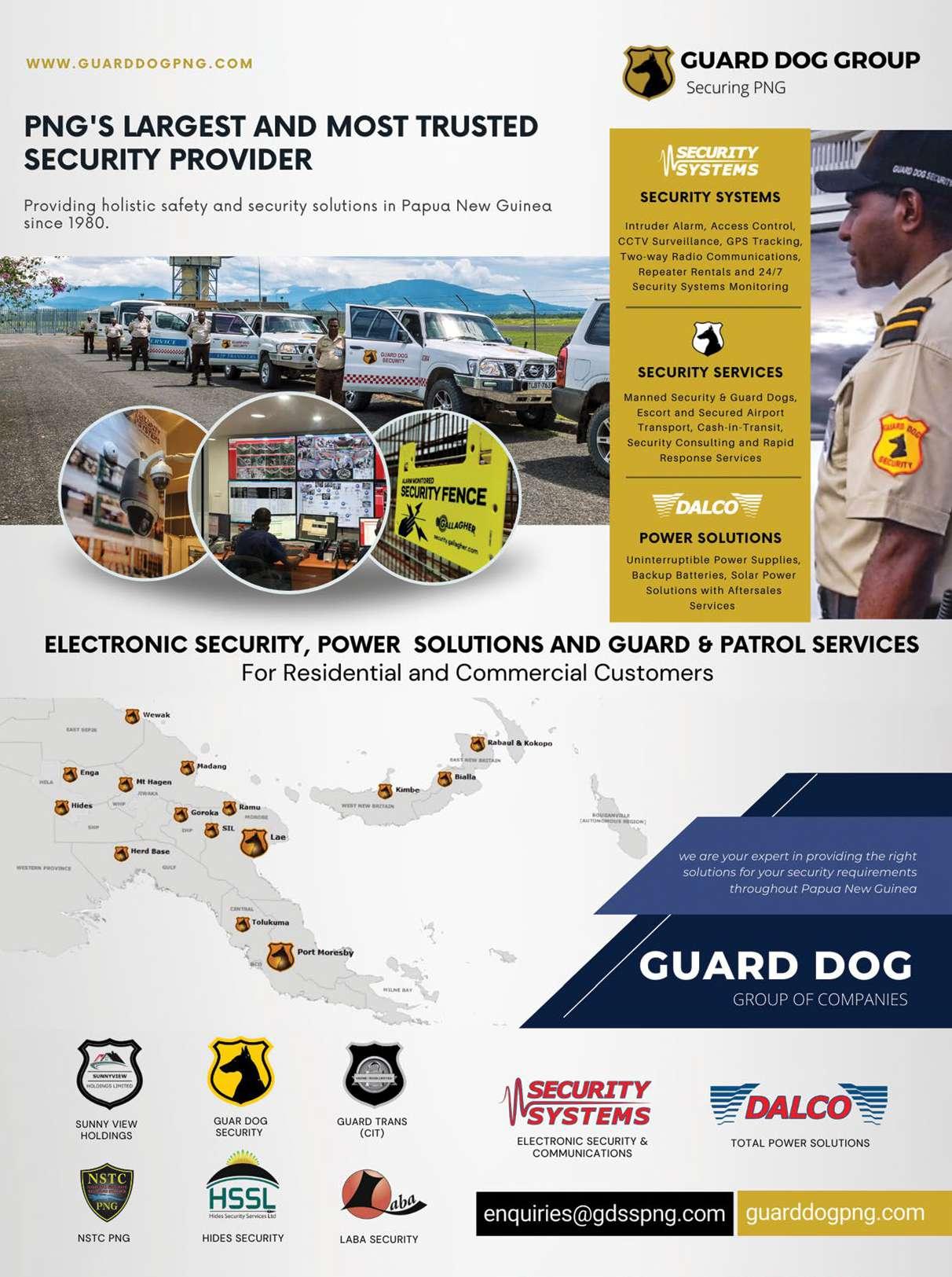
Maxwell points out that a shorter port stay for a vessel positively affects the whole supply chain by making trips more efficient.
“The shorter supply chain means the importers now have less working capital and forex tied up bringing cargo from, let’s say, China to Goroka,” says Maxwell.
“Instead of four weeks, it now takes three weeks. So, there’s a 20–25 per cent reduction in the working capital commitments on the balance sheet.”
In addition to improvements in moving cargo, ICTSI has also seen advances in customs clearance.
“What we’ve successfully done with the PNG customs service over the past two years is establish real time Electronic Data Interchange with the customs system,” says Maxwell.
“And the rules have changed: previously, an agent could not file a customs entry until the vessel was alongside (the port). That’s 50 years old, that rule,” he continues.
On the big ships, we’re now hitting 40 container moves per hour. Previously, the figure was about seven.
“Now the agent can start the filing process when the ship leaves the port of load. And this means that a considerable amount of cargo has already been customs cleared before the vessel arrives.
“Today, consignees can begin releasing their cargo even while the vessel is still alongside, streamlining the process. In the past,
importers had to wait until the vessel had departed before collecting their containers.”
As a result of these changes, containers are leaving the ship and being cleared by customs more quickly. Meanwhile, the upcoming ICTSI app, which is slated for release this year, aims to speed up the final piece in the transport puzzle.
“The ICTSI app will provide unprecedented cargo visibility with a track and trace feature for vessel, containers and trucks moving in and out of the terminal,” says Maxwell.
“Besides the ICTSI app, ICTSI South Pacific also has plans to roll out a truck appointment system in the next few years.
“There are periods with trucks queuing, and days when there are zero trucks. With the truck appointment system – which has been proven internationally – those peaks can be smoothed out, so we avoid the queue. The trucker avoids the queue and can then perform more trips per day.” n

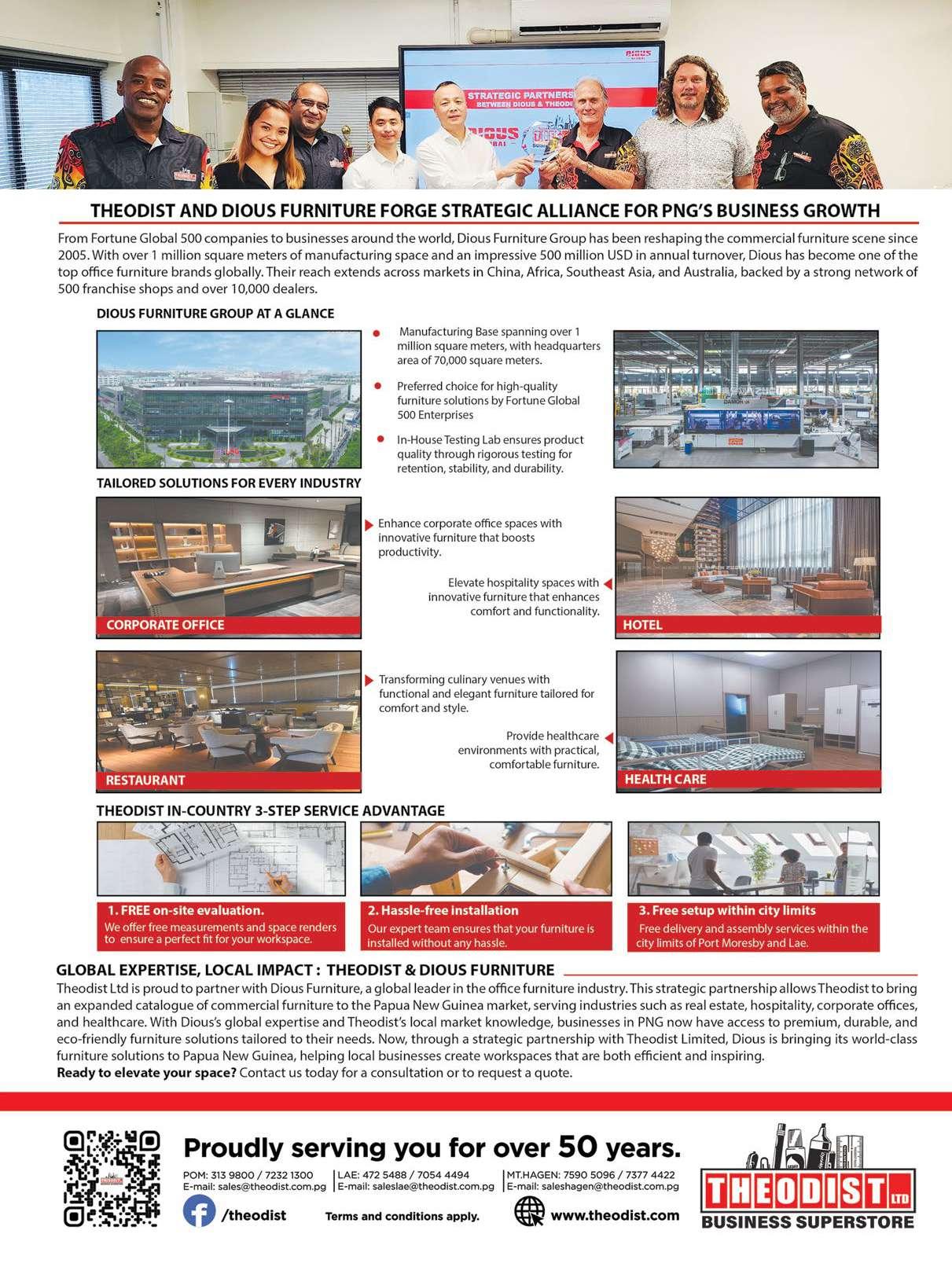
The winners of Papua New Guinea’s major awards for innovation were announced at a gala dinner at the 2025 Innovation PNG Conference and Expo at the Stanley Hotel, Port Moresby, recently.
Four awards were given out by a judging panel chaired by inventor and futurist Mark Pesce.
“The sheer breadth and quality of entries for this year’s awards made the judges’ job both very difficult and also highly enjoyable,” says Pesce, who is the inventor of 3D on the worldwide web and was also the keynote speaker at the conference.
The Innovation PNG Award for Small Business (sponsored by Kina Bank) went to the Lae-based Environmental Health Development Agency for its all-in-one water,


sanitation and washing station designed for use by village communities.
The Innovation PNG Award for Large Business (sponsored by the Remington Group) went to superannuation fund Nasfund, for its use of artificial intelligence to automate the processing of the invoices.
The Innovation PNG Award for Digital Government (sponsored by Nasfund) was awarded to the Department of Information
and Telecommunications Technology for the development of an online police clearance application process, which integrates online payments with biometric fingerprint capture.
The inaugural Innovation PNG Award for Female Innovator (sponsored by Moni Plus) was split between two entrants. Pacific Palms Property’s Alumita Chan led the project to achieve high level EDGE environmental certification for Steamships’ corporate headquarters in Port Moresby. Meanwhile, BSP’s Penelope Aisi led the team that developed the bank’s recently launched Wantok Wallet mobile wallet.
The awards run alongside Innovation PNG, PNG’s festival of innovation, technology and ideas. Innovation PNG is co-hosted by the Port Moresby Chamber of Commerce and Industry and Business Advantage International. n





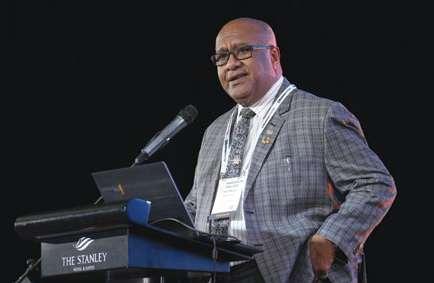
1 Futurist Mark Pesce delivers the keynote address on artificial intelligence at Innovation PNG 2025. Fiji’s Deputy Prime Minister and Minister for Communications, Manoa Kamikamica, shares Fiji’s plans to go digital.
The team from Nasfund won the Innovation PNG Award for Large Business for its use of artificial intelligence.
Kina Bank’s CEO Ivan Vidovich discusses the bank’s innovation strategy.
Dorothy Bengo speaks about innovating at Coca-Cola Europacific Partners PNG.
The Remington Group/Bizprint stand at the conference expo.
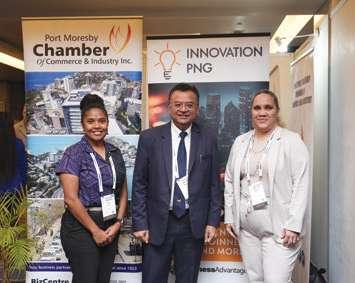




A trailblazing initiative is giving PNG women new opportunities to work in the trades.
In a large,bustling workshop in Tuhava, 22 kilometres outside Port Moresby, factory manager Jacobeth Misiel carefully adjusts and checks a machine that cuts steel framing to size.
Before joining the prefabricated building and engineering company Rhodes PNG Ltd seven years ago, Misiel never imagined she would one day be part of the team creating the new homes and commercial buildings rapidly transforming Tuhava Town, in nearby Napa Napa, into PNG’s first modern housing estate.
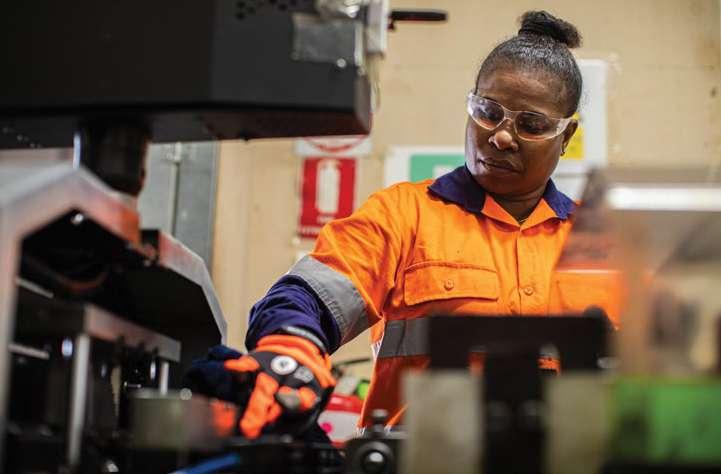
“When I joined Rhodes, I started working as a workshop assistant. Our manager, Andrew, told me there was an opportunity to be
trained for an important task,” says Misiel.
“I thought he meant just an office job –filing – not knowing that he would take me

to the FRAMECAD machine,” she laughs, recalling the exchange.
Misiel soon mastered the technology and, encouraged by her mostly male team and supported by Rhodes’ management, she now leads the two teams responsible for Rhodes’ steel frame forming and joinery.
“In the beginning, I found it difficult, but the more I learnt about the machine, the easier it became for me to operate. It’s been a big change for me – from operating the machine to becoming a factory manager … I’m proud of myself,” she says.
Helping PNG’s business community create these opportunities is a trailblazing initiative: Meri Save Trades (‘Women Know Trades’), which is led by International Finance Corporation, a member of the World Bank Group, in partnership with the PNG Business Coalition for Women, supported by the governments of Australia and New Zealand.
Eighteen of PNG’s leading businesses including Air Niugini, employing 15,000 people, are putting their weight behind the initiative.
Eighteen of PNG’s leading businesses, employing 15,000 people, including Rhodes PNG, TWM Group, Steamships and Air Niugini, are putting their weight behind the initiative, breaking down barriers to employment for women, helping more women to enter the workforce and excel
■ External & Internal Audits of Companies, Associations and Trusts
■ Relief Accounting, System Reviews, Procedures Manuals, MYOB Training and General Accounting Support
■ Start Ups, New Companies, Joint Ventures, Foreign Company Approvals, Registered for Online Lodgments
in traditionally male-dominated industries – such as engineering, transport and, as in Misiel’s case, construction.
Misiel’s career progression from workshop assistant to factory manager was supported by mentorship from her direct manager and encouragement from the workshop team.
“In a male-dominated environment, a woman cannot succeed without the backing of her team, the company culture, and company management,” says Terry Welat, the human resources manager at Rhodes.
“Witnessing employees like Jacobeth advance from a junior to a senior level and then to a managerial position makes all of us feel proud – it demonstrates to other employees that there are opportunities for development and career growth.” n



and fully customizable to suit any organizational needs.
PROVIDING SPECIALIZED SERVICES TO:
Mining Subcontractors, Agriculture, Construction, Manufacturing Sectors & NGO’s
a professional,
■ Tax Planning, including Foreign Contracts, International Agreements & Exit Strategies Tel 472 7910 Head Office Fax 472 7908 Lae Mobile 70428092 Email jc@kapiandclarke.com.pg
FCPAPNG (Principal)
30 years in PNG
and
enMaster - Genset management systems for remote monitoring, diagnostics and control.
6. Fuel Master- A full fuel management system that covers all parameters of fuel usage and consumption, from fuel delivery to fuel burn in vehicles or plant.
7. PetroMaster - Supply, installation and maintenance of fuel handling equipment, such as fuel tanks, fuel farms,diesel fuel polishing/treatment plus contaminated fuel cleaning.
8. O il Master - An oil cleaning and rejuvenation solution for additional filtration, plus recycling and re-use of crank, hydraulic and transmission oils.
9. TechMaster - CCTV , door access systems and fire alarms.
PNG manufacturing has a foothold in the domestic market and is now also taking off in the export market. Nadav Shemer Shlezinger reports.
Papua New Guinea’s manufacturing sector is going from strength to strength, with an increasing number of businesses producing not only for the domestic market but for exports too.
On the following pages, we share how PNG Forest Products and Hugo Canning have seen their revenues surge through increased exports. Interestingly, both businesses initially turned to exports to get access to more foreign exchange, before realising that exports should be a permanent part of their strategies.
Another business joining the trend is Lae Biscuit Company, which is preparing to begin exporting this year by entering the Australian market with the support of Pacific Trade Invest (PTI) Australia.

An increasing number of businesses are producing PNG-made goods for domestic and export markets. The government has made a commitment to improve traderelated infrastructure such as roads, ports and electricity.



Founded in Lae in 1972 by Sir Henry Chow, the company has gone on to diversify its offering of PNG-made biscuits, noodles and beverages. In September last year, it was one of nine businesses to participate in PTI’s Pacific Showcase at Fine Food Australia, the Southern Hemisphere’s premier trade exhibition for the food, hospitality and retail sectors.
Two other PNG businesses were involved in the showcase. Sepik Valley Organic already has a Brisbane-based distributor in place for its vanilla products and is exploring additional opportunities to grow its footprint in the Australian market. Tropic Fronds Oil has been exporting coconut oil products from its East New Britain facilities to overseas markets for some time.
In further good news for the PNG manufacturing sector, it was announced recently that Majestic Tuna Corporation will reopen its tuna processing plant in Lae before
The Prime Minister has affirmed his commitment to create the conditions for manufacturers to thrive.
the end of the year, following a change in ownership structure and management. The reopening of the plant – which has been closed since June 2023 – is expected to create more than 1000 jobs.
Meanwhile, the manufacturing sector is on the government agenda in 2025, with Prime Minister James Marape recently acknowledging concerns raised by the Manufacturers Council of PNG regarding economic barriers facing the sector.
In a statement, the PM affirmed his commitment to creating the conditions for manufacturers to thrive.
“We are committed to improving traderelated infrastructure – roads, ports, and electricity – to reduce production costs and improve market access. The government is currently pursuing public–private partnerships to accelerate infrastructure investments across the country,” he said.
“We understand that secure access to land is critical for manufacturing and other industries to expand. The Government is working with traditional landowners and land agencies to streamline land tenure processes and make land more accessible for economic development.”

Former
Kraft Heinz subsidiary Hugo Canning is thriving with new owners
and
there are big plans in the pipeline. Paul
Chai reports.
Hugo Canning found itself in a state of limbo for a number of years after it was put up for sale by its multinational parent company, Kraft Heinz.
The canned goods manufacturer suffered losses between 2021 and 2024 and had no clear direction, says General Manager Jeremy Fry.
“When you’re a non-core asset in a global company, no one really cares what’s going on,” he says.
Things began to improve in 2024, when Kraft Heinz agreed to sell the company to a group of local Papua New Guinea investors headed by Taylor Pacific (80 per cent shareholding), a private company run by businessman John Taylor, who has decades of experience in PNG. The team brought costs under control, returning the focus of the business to quality and affordability.
“This year, we will definitely turn a profit,” Fry says. “It’s been a good turnaround. We’ve got a very strong board of directors with global experience, and they are very supportive of the path we are on.”
Hugo Canning’s key brands are Ox & Palm and Ocean Blue tuna, which Fry says is the number-two tuna brand in the country. The return to profit and the local focus mean that the tuna brand has a great opportunity to align with the government’s objective to increase onshore processing.
“We’re just puzzling through what tuna canning onshore in PNG might look like, but we’re quite excited about it. We think our site in 15-Mile is the perfect place to do it,”’ Fry says.

can improve our factory utilisation in Port Moresby,” Fry says.
There’s
a lot of hungry people out there and the ambition is that we want to be a part of one meal of everyone in the Pacific.
“There’s a lot of hungry people out there, and our ambition is to be a part of one meal of everyone in the Pacific.”
The plan is not only for tuna but also expanding on the Ox & Palm brand for the next phase of growth.
“There are opportunities everywhere, with the Hugo Canning business and more broadly with the agri-focus of our parent, Taylor Pacific,” Fry says.
Part of the profit success has been a strong export market, which began as a play for more foreign exchange, given the forex issues currently faced by business in PNG.
Hugo Canning exports to Vanuatu, the Solomon Islands and Japan but has plans to grow this part of the business.
“We want to double our export business this year, because it helps with foreign currency inflow, and it also means we
The turnaround in Hugo Canning’s fortunes show3 that if you have a local focus and a knowledgeable local team, it is a place where businesses can thrive.
Fry says: “A great analogy from John (Taylor) is: ‘If you buy a ticket to the dance, you’ve got to dance’.
“With the investment in the Hugo company, and further capital mobilised for our Taylor Pacific agri-strategy, we are dancing like we’ve never danced before.”
A new PGK70 million plant represents a big step forward for Pacific Industries. Paul Chai reports.
After winning the exclusive PepsiCo bottling licence for Papua New Guinea in 2018, local manufacturer Pacific Industries has experienced more than six years of solid growth and is now seeing the positive benefits of the Pepsi partnership fizz over into other areas of its business.
Everett Chue, Director at Pacific Industries, says the steady growth meant the food and beverage manufacturer had little option but to add to the Rabaul factory that had been its sole production facility since before World War 2.
This led it to invest in a new Port Moresby facility with can and PET (polyethylene terephthalate) lines, which it commissioned in 2024.
“It was a PGK70 million-plus investment, and there’s additional things that we’re adding into that investment, like more storage space, increasing the size of our workshop and refrigeration,” Chue says.
“On top of that, there are huge efficiencies with having two manufacturing plants, the first being shipping. If I produce in Rabaul, it is a minimum of 14 days to get it to Port Moresby. There are costs and delays, so your speed to market is improved by having two factories.”
The contingency of having two factories will also help Pacific Industries deal with some of the more unpredictable elements of doing business in PNG, such as power disruptions and law-and-order issues.
Chue says his firm has been gearing up for potential increases in demand once final investment decisions are made on big resources projects such as Papua LNG. But even without those projects, he says he is “very optimistic about the growth of the PNG economy”.
Pacific Industries is planning a PGK10million upgrade of its ice-cream factory and the creation of a new distribution facility on newly purchased land in Mount Hagen.
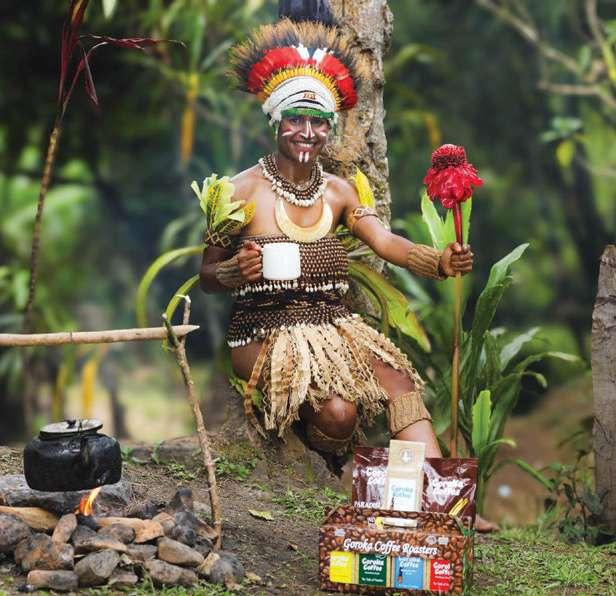
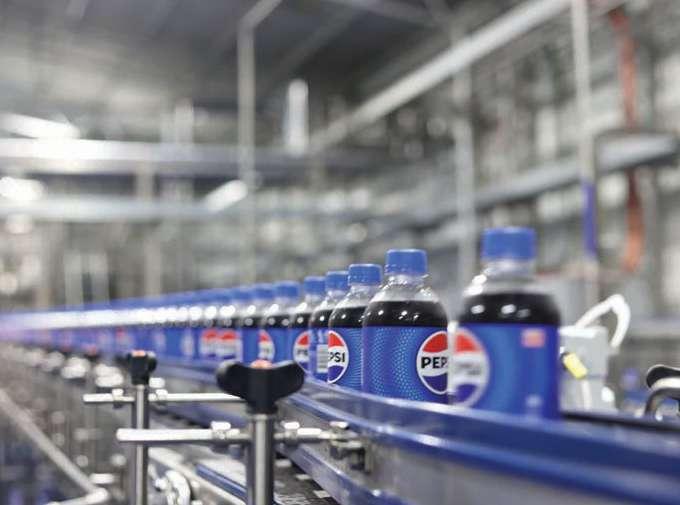
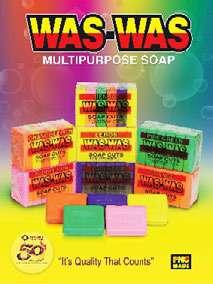


Underpinning the company’s growth is its embrace of PNG’s informal economy.
The company has a channel manager at all 11 of its branches whose job it is to identify potential vendors who have a car, cash flow and some business nous. These vendors typically sell from home, the roadside or a permanent market stall. The channel manager provides each vendor with a package including an esky (cooler), umbrella, cap, a T-shirt and free ice.
These informal sales channels now represent a “high single digits” share of Pacific’s overall beverage sales and will likely lead to more investments in future.
“We are expecting big growth, obviously gaining share in the market, but also with the economy growing a lot in the next five years,” Chue says.
“We’ve planned the PET line for five years of growth. We’ve made contingencies to be able to expand certain machinery that will increase the line.”





























All-time
high coffee prices
are bringing benefits to PNG coffee growers and exporters, but also some challenges. Nadav Shemer Shlezinger reports.
Papua New Guinea’s coffee industry has been cashing in on a bull run which saw global prices hit all-time highs in early 2025.
The high prices have been “good for everybody,” according to Jerry Kapka, Managing Director of Kongo Coffee, an exporter that sources its beans from smallholder farmers in Simbu and neighbouring provinces.
“The coffee farmers are happy with the prices. Everybody in the industry is happy,” he tells Paradise.
Similarly, Nicki Matthews, Operations Manager at Goroka Coffee Roasters, a familyowned company based in Eastern Highlands Province, says the high prices have had a positive impact on the business.
Coffee prices rose 70 per cent in 2024 and an additional 22 per cent year-to-date by mid-March 2025, according to Kina Bank. Adverse weather conditions in Brazil and Vietnam, the two largest coffee producing countries, have been largely responsible for the price increases.
Coffee is one of PNG’s three most important smallholder cash crops – alongside palm oil and cocoa – accounting for 13 per cent of agricultural export revenues in 2021. According to the PNG Rural Survey 2023, around 55 per cent of households in the Highlands produce coffee.
While PNG coffee continues to attract strong demand from Australia, Japan, the US and Europe, the high prices have restrained this to an extent, according to Kapka.
“If prices come down, we will see more buyers come in. At this time, they are buying,



but not in the kinds of volumes we would normally see.”
However, coffee scoring 85 points or more on the Specialty Coffee Association’s 100-point scale continues to find a market, according to Nellie Kavanamur Varmari, Founder of Central Mamina Coffee.
Varmari, who buys coffee from smallholder farmers from the mountains of PNG’s Southern Region, which she then roasts and sells to businesses in Port Moresby, says logistics is often the biggest barrier for farmers.
“People are still carrying coffee (by) crossing rivers and climbing mountains,” she says.
“Demand for PNG coffee remains good, but how can we bring that coffee to the market? That is our biggest need.”
PNG coffee production declined by around eight per cent in 2024, due to factors such as ageing coffee trees, pest management challenges, and varying market access, according to Westpac.
However, Kapka predicts this year’s production will exceed that of the last three or four years, and he notes that his business is looking to expand from its heartland in the Highlands into Morobe Province, in the Momase Region.
“We are setting up to buy up volumes and increase our activities there, to look after our Morobe farmers,” he says.
“We’re based in the Highlands, where most of PNG’s coffee is grown. But Morobe also has good coffee grown inland and in higheraltitude areas.”
No matter where in PNG coffee is grown, Kapka says it critical to people’s livelihoods.
“Coffee is very important to the people in Simbu and other coffee-growing provinces. The money goes direct to people in the villages. It impacts on their lives, and that’s why we are happy to work with our farmers,” he says.
Local herbal oil producers have teamed up with a soap maker to create a uniquely PNG product.
It’s not just the big companies that are making an impact with locally made goods. Small-scale producers, such as herbalist
Daniel Singa, are also doing their bit.
Singa, from Morobe Province, lives on the outskirts of Lae and has been producing and refining moringa, noni and neem tree oil since 2014. The enterprise is a family affair, with his wife and other family members helping in the business.


The oils are sold at Lae market and now there is also countrywide distribution of moringa, noni and neem soap.
Singa was approached by Panamex Pacific PNG in 2021 to supply oil for the popular Panamex Was Was soap range.
Panamex has been in Papua New Guinea for 52 years and a company spokesperson says it takes pride in working with local producers.
Singa, for his part, says the partnership with Panamex has created more income and job opportunities with other local tree oil producers who are now subcontracting to him to ensure Panamex has sufficient supply.
The skincare range of soap can help with a range of conditions – such as scabies, ring worm, white spot and dandruff – according to Panamex.

A
PNG manufacturer of engineered wood products has found a profitable export niche. Paul Chai reports.
PNG Forest Products (PNGFP) moved into the export business to get access to more foreign currency.
But what started as a side hustle led to record revenue.
“Several years ago, we decided to move into export-orientated products,” PNGFP Managing Director Tony Honey says.
“We started off with low-value products and moved to the higher-value products. I thought we needed to start exporting to get foreign exchange but it’s grown and developed into a big, big part of our business.
“We now export at least one-third of the plywood we produce here and that’s exported to New Zealand, primarily, and to Australia, to Malaysia, to China and now into Ireland.”
PNGFP has been producing engineered wood products since 1954 through sawmilling and manufacturing plants in Bulolo in Morobe Province. The plants are powered by the company’s own hydro-power stations.
The group’s export success has come from filling a niche in bus flooring, which is made from plywood. PNGFP’s plywood is treated and made in PNG, then sent to bus manufacturers abroad.
It also exports bridge decking, wall cladding and other treated flooring.
One of the appeals of PNGFP to its customers in New Zealand and Australia is that its main competitors in bus flooring are in South America and Asia.

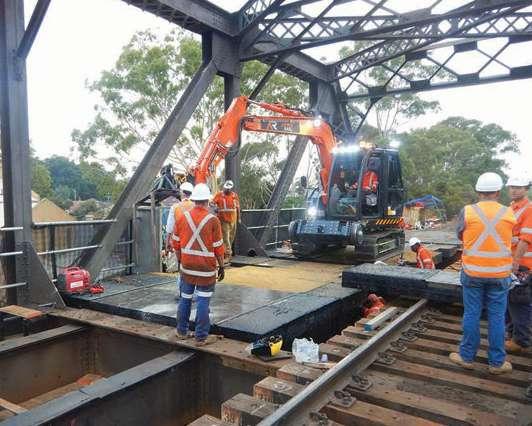

We now export at least one-third of what we produce here.
“This is the highest revenue year that we have ever experienced under my watch and there is an easy explanation for that: we are very close, we can deliver on a timely basis and we’re competitive,” says Honey.
Honey says there is a persistent myth in the public domain that PNG has an oversupply of quality hardwood trees accessible to the forestry industry.
“Only about three or four per cent of the logs here are high value, like the rosewoods
of the world. The bulk of the logs are lowgrade logs that go into furniture or cheaper plywood products,” he says.
PNGFP has been reliant on a 10,000 hectare fully sustainable plantation developed in the 1950s. To continue that trend, it is planting several thousand hectares of pine trees and more than 500 hectares of balsa trees.
The plan is to develop the balsa plantation on 600 hectares of land, which it already owns, and which is currently being used to raise cattle. Balsa is a fast-growing wood and can be ready for harvesting within three years.
Honey cites the use of balsa wood in wind turbines, planes and ships as proof that the balsa plantation can be a boost to the group’s exports. He adds that changing technology may pave the way to markets in unexpected places.
“Japan just sent their first wooden satellite into space. So, is there potential there? One would have to say yes.”

Craig Tansley reports that tourism and business confidence in the Solomon Islands are recovering following a downturn that started with the 800plus day COVID-19 border closure in 2020.
“Business is definitely picking up, we have a lot of solid bookings for the rest of the year,” says Australian Brody Ewing, owner of one of the Solomon Islands’ best accommodation offerings, Fatboys Resort, in the Western Province.
Meanwhile, in the north-east of the country, Nick Blanche, co-director of Papatura Island Retreat, located on a tiny island off Santa Isabel, says business has never been better for their surfing and diving resort, even considering their pre-COVID-19 visitor numbers.
“So far 2025 has been our busiest year,” he says. “We have bookings through to June 2026 with more people taking the option of booking the whole island too. Our runway (into Santa Isabel) has been improved and gravelled and raised and it’ll be sealed either later this year or early next year.”
And in the capital, Honiara, the Papua New Guinean Remington Group owned by former PNG Prime Minister Peter O’Neill, will purchase and jointly own the Solomon Islands’ most iconic hotel, King Solomon Hotel, and will be working with the Solomon Islands National Provident Fund to extensively redevelop the 73-room site.
In March 2020, the Solomon Islands closed its borders for over 800 days because of the pandemic, stopping all international tourism to the country. It’s been a slow road to recovery since the borders reopened in mid-2022, but tourism appears to be finally turning a corner.
The Minister for Tourism, Choylin Yim Douglas, recently announced a huge increase in government assistance for tourism,
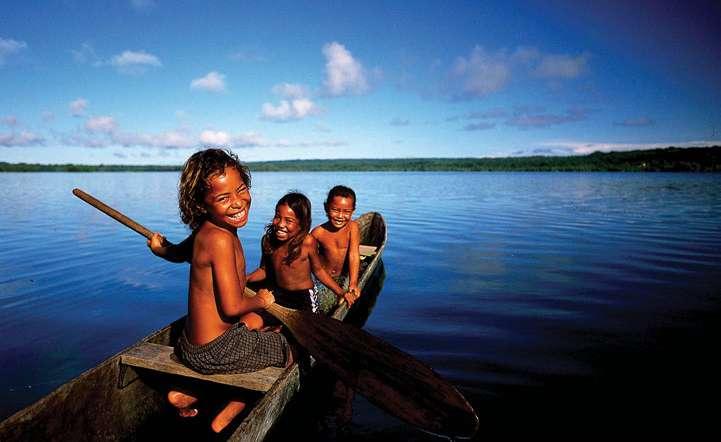

This is the Marovo Lagoon in the Solomon Islands’ Western Province. The area is known as the Thousand Islands.
Writer James Michener visited here while serving in the US Navy during World War 2 prior to writing Tales of the South Pacific, which was published in 1947.

Jack London (Call of the Wild/ White Fang/ The Cruise of the Snark ) also visited in 1907/1908 – one of his last works was Jerry of the Islands: A True Dog Story, published in 1917.
The Solomons comprise six major islands and 1000 smaller islands.
while at the same time setting a new target of 100,000 international visitors for 2035.
There’s still a long way to go though. In 2024, just over 25,000 international visitors came to the Solomon Islands, compared to a record 28,930 in 2019, before the pandemic struck.
But tourism operators are confident international visitors will return in everincreasing numbers.
Ewing bought Fatboys Resort just after the international borders reopened, confident tourists would return to the Solomons.
“Things are going really well,” he says. “We’ve just put the resort on solar. The dive centre opens this month, which will bring in a lot more divers. We have a new 60-metre jetty and new dive boats. We’re going to keep on upgrading the bungalows we have (there’s six, with a luxury beach house), but we’re also hoping to start two new bungalows later this year.”
Fatboys Resort is one of the Solomon
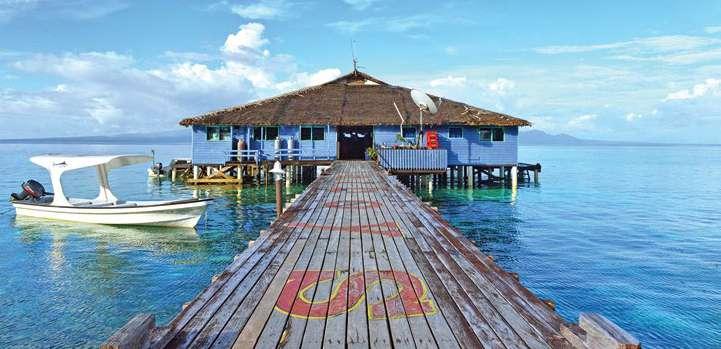
Islands’ best new places to stay. It’s located on tiny Mbambanga Island, which guests reach with a 10-minute boat ride from Nusatupe Airport, in Gizo Province. Guests travel across a calm lagoon near dugong and manta rays and pull up alongside the resort’s open-sided bar and
restaurant – as they would in high-end tourist hotspots of the South Pacific, like Bora Bora in French Polynesia. It’s close to some of the South Pacific’s best diving locations, where guests can dive over sunken planes and ships from World War 2.


How can I get around Honiara?
Buses and taxis are available. Bus routes run mainly along main roads, with a one-way fare usually SBD$3. Taxis cost about SBD$10 per kilometre.
What can I do while in Honiara?
Take a historical World War 2 tour, go to the bustling Honiara Central Market, visit the National Art Gallery, the National Museum and National Parliament.
What about day trips out of Honiara?
Savo Island, Tenaru Falls, Chaha Falls and the Bat Caves are popular day trips. There’s also a new attraction, the Amazing Grace Boutique Cocoa Farm and Garden Tours. Day trips can also be arranged to Central Islands Province. Options include Tulagi, Roderick Bay, Nugu Beach Resort and Double Island. Bookings

can be made through Tourism Solomons, telephone +677 22442, or email info@ tourismsolomons.com.cb.
Are there some good places to eat in Honiara?
Some recommendations include Capitana Restaurant at the Mendana Hotel, GG’s Restaurant at the Heritage Park Hotel, Palm Sugar at Point Cruz, Breakwater Cafeteria, Tenkai Sushi Café, Club Havannah at the Honiara Hotel and Haydn’s Steakhouse at the Coral Sea Resort and Casino.
Do I need a visa to visit?
PNG nationals can get a visa upon arrival.
How often does Air Niugini fly to Honiara?
Four times a week. See airniugini.com.pg.

Mendana Avenue, Honiara. Tel. +677 45500, see heritageparkhotel.com.sb.
WHO STAYS? Mostly business travellers including those who stay long term, but also leisure travellers before and after they visit other islands.
HOW BIG? The hotel has 87 rooms and apartments. There are 48 hotel rooms as well as single-bedroom apartments (14), twobedroom apartments (22), three-bedroom apartments (2) and one four-bedroom apartment.
COST Standard rooms from SBD$2750 per night; deluxe rooms SBD$2900; single-bedroom apartments SBD$45,000 per month; two-bedroom apartments SBD$52,525 per month.
CHECK IN/CHECK OUT 2pm/12pm
HIGHLIGHTS Every room has a water view from a private balcony. But the tended gardens and lawns and a swimming pool are no less agreeable. The poolside tables and chairs by the bar can fill up quickly in the late afternoon.
NEARBY It is just a short walk to banks, shops and the National Museum, which features the World War 2 campaign on Guadalcanal, the island on which Honiara is located.
Wi-Fi in rooms/public areas:
TV:
Air conditioning in room:
Business centre:
Gym:
Room service:
Swimming pool:
Free airport transfers:
Hotel arranges tours:
Breakfast included in room charge:
BY GREG CLARKE

The waterfront hotel is about 12 kilometres from Honiara International Airport – about a 30-minute drive depending on the traffic – and close to the city’s main port. The water views from the rooms are over a great body of water known as Iron Bottom Sound.
This may be the premier hotel in the city. The coconut trees, pool, water views and accommodating staff offer a sense of the resort even when you’re working. The al fresco dining area is a wonderful place for an early morning coffee or after work drink and a haven from the heat and Honiara’s workaday bustle.
My room is impeccably clean and perfectly cool and quiet. The hot water takes a while to come through in the shower but is never too
bothersome. I spend far more time watching the boats on Iron Bottom Sound from the balcony of my room than in the bathroom.
There are extensive options including Solomon Island dishes – the local fish dishes are superb – and European and pan-Asian cuisine. Curry nights are held each Wednesday evening. Breakfast is served at 7–10am, lunch at 11am–3pm and dinner at 6–10.30pm.
“Excellent room, ocean views, outdoor atmosphere, garden feeling. The front desk and the whole team are professional, patient, and nice. Food great too.” – TripAdvisor
“This was a pocket of paradise in Honiara. Gorgeous, lush gardens and stunning pool area. Absolute bliss.” – Planet of Hotels
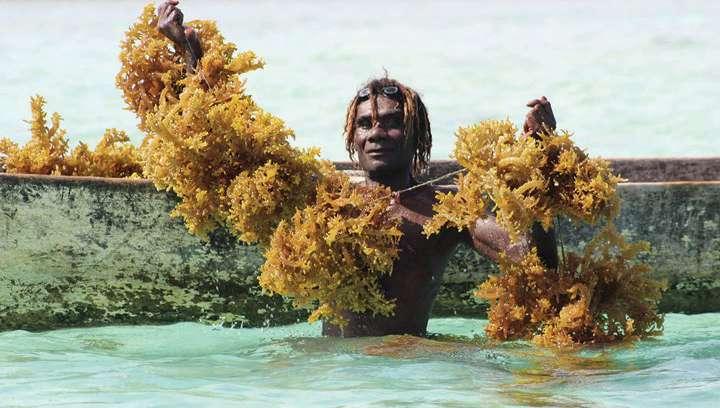
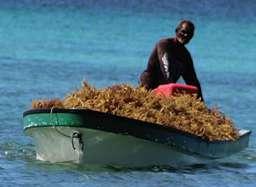

Greg Clarke reports that seaweed farming has become a high priority in the Solomon Islands.
Seaweed farming in the Solomon Islands expanded significantly in the early 2000s but now the country seems ready to capitalise on what should prove to be a valuable underwater resource.
There are, according to government sources, about 600 seaweed farmers in the country.
Nestor Giro, the Solomon Islands Fisheries and Marine Resources Minister, is bullish, if not excited, by seaweed’s potential. Giro does not think it unrealistic to estimate
there will be 1000 seaweed farmers in the country soon. “It is a high priority for the government,” he says. The bullishness comes from not only all the potential jobs but also the export potential. Already there is keen interest from Asia for Solomons’ seaweed, according to Giro.
The Solomon Islands farm mostly Kappaphycus alvarezii seaweed – the same
species grown commercially in Indonesia and the Philippines. Not many people refer to the scientific name: seaweed is better known as cottonii, a traditional name of farmed seaweed.
The growth cycle of the plant – from planting to harvesting – is around six weeks. The growing, drying, transportation and packaging process takes from two to three months.
According to the Ministry of Fisheries and Marine Resources (MFMR), the Solomon Islands currently produces around 2500 metric tonnes annually. It is anticipated 10,000 metric tonnes of dry seaweed will be produced annually by the end of 2026.
The Solomon Islands government has allocated SBD$7 million to progress seaweed farming projects. The MFMR is also working to engage investors to work with farmers to grow production capacity and is aiming to secure technical support from China and Indonesia.
Improving the quality of dried seaweed products and addressing infrastructure needs are priorities. The country has some storage facilities, drying beds and harvesting boats, but these need to be upgraded to support increased production.
According to James Ngwaerobo, Principal Aquaculture Officer (Coastal Section) at the MFMR, China will be the primary export market for Solomon Islands seaweed.
“Currently, the seaweed industry is valued at approximately SBD$15 million. We are developing a strategy to increase production to 10,000 tonnes. The exact future market value will depend on market prices at that time, but with this increase in production, we anticipate a significant rise in value.”
The expansion of the Solomons’ seaweed industry isn’t confined to the raw product.
The Solomon Islands government has allocated SBD$7 million to progress seaweed farming projects.
In May 2021, The Pacific Community, the principal scientific and technical organisation in the Pacific, began working with farmers to manufacture healthy, locally produced seaweed snacks, such as crackers, chips and sticks. Value-adding should allow farmers to secure better profits from their efforts. It is hoped existing farmers will double or even triple their annual production by 2026.
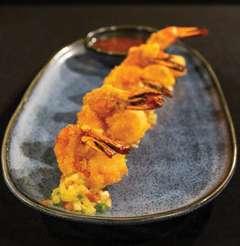


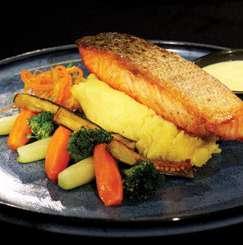
Salt Restaurant at Ela Beach Hotel named PNG’s Best Hotel Restaurant 2024.
The prestigious award was presented to Salt Restaurant by the World Culinary Awards. Achieving this level of recognition is a remarkable honour and reflection of the team’s passion for quality food and warm hospitality. Since opening its doors in February 2021, the team at Salt have continuously strived for excellence providing customers and patrons the best hospitality experience Melanesia has to offer.
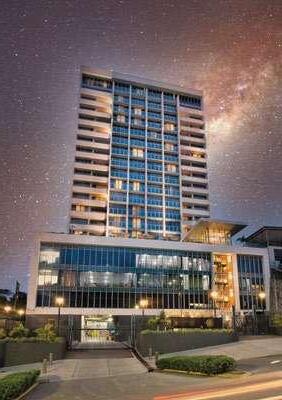





Grand Papua Hotel and Gateway Hotel were awarded their prestigious titles in December 2024. Safehotels is about passion for hotels and the highest standards of safety, security and hygiene for all guests and patrons. Standards are independently set through a world-leading Certification program, including on-site assessments by experts with years of knowledge and understanding of hotels across the globe.
These first-ever certifications in Australasia and the Pacific Islands highlight our leadership in hospitality excellence. Affirming our dedication to providing a secure and welcoming environment for our
setting new industry benchmarks.
Tackle either set of these clues – you can even mix and match them, because the solutions are the same for both sets.
Find all the words listed hidden in the grid of letters. They can be found in straight lines up, down, forwards, backwards or even diagonally.
ACROSS
1. Two donkeys in place of a killer (8)
6. Manic and demented at the outset (3)
7. End of the line? Sounds deadly! (8)
8. That’s right, in my estimation (3)
10. A cistern broken but still holds dry goods (8)
13. Win support for how much purse weighed we hear (8)
16. A little Alsatian posed for picture (3)
18. Complaints about making ladies go without royal title (8)
19. Odd brewer finds insect (3)
20. Made sure characters took dimensions (8)
DOWN
1. Objects to written pieces (8)
2. Holy place was hers, in ruins (6)
3. Is ESP used by secret agents? (5)
4. Picture drawn right out of strange mirage (5)
5. Able to make a bundle (4)
9. Emphasised strain on news boss (8)
11. Peak at four every second (3)
12. Delicacy prepared by a vicar (6)
14. Completely remove section of Vera’s essay (5)
15. Wounds from small bats hanging upside down (5)
17. Swear to be part of brave recovery (4)
ACROSS
1. Hired gun (8)
6. Furious (3)
7. Remote computer link (8)
8. Affirmative response (3)
10. Kitchen container (8)
13. Coax (8)
16. Rested in chair (3)
18. Ailments (8)
19. Word contest, spelling ... (3)
20. Carefully considered (8)
DOWN
1. Things (8)
2. Sacred tomb (6)
3. Catches sight of (5)
4. Public profile (5)
5. Actor, Christian ... (4)
9. Overwrought (8)
11. Rocky hill (3)
12. Beluga (6)
14. Rub out (5)
15. Punctures with knife (5)
17. State positively (4)
1. Which former PNG Prime Minister died on January 30?
2. What is significant about the Papuan Times and Tropical Advertiser newspaper?
3. Where is Fairfax Harbour?
4. Which country is bigger by land mass: PNG or Japan?
5. PNG’s Highlands Highway is also called what?
6. What is FJD?
7. What happens at Cloudbreak?
8. What is Singapore’s national dish: chicken rice, laksa or chilli crab?
9. Where is Chek Lap Kok airport? (Hint: Air Niugini flies there.)
10. What is celebrated in Australia on January 26 each year?
11. Why do people in Vanuatu stand up and sing Yumi, Yumi Yumi ?
For solutions to the quiz and puzzles, see Page 108.
12. Can you name the kleptocrat who ruled the Philippines from 1965 to 1986?
13. Which is the best-selling beer in Hong Kong: Tsingtao, San Miguel or Mythos?
14. Who won the men’s title at the Australian Open tennis tournament in January and why was he banned from playing for three months in February?
15. Can you name the stadium (used for rugby league matches among other events) in the picture?


The Paradise Quiz
1. Sir Julius Chan. 2. It was the first newspaper printed in PNG. It started publication in 1911. 3. Port Moresby. 4. PNG. 5. The Okuk Highway. 6. The official abbreviation for the Fiji dollar. 7. It’s one of Fiji’s best surfing spots and a regular destination on the World Surf League’s calendar of events. 8. Chicken rice. 9. Hong Kong. 10. Australia Day. 11. It is the country’s national anthem. 12. Ferdinand Marcos. 13. San Miguel. 14. Italian Jannik Sinner; banned for a doping violation made in March 2024. 15. Suncorp Stadium, Brisbane, Australia.





A quick guide to Papua New Guinea, from catching a taxi to making a phone call.

Except for the Highlands, Papua New Guinea has a warm tropical climate. The wet season in Port Moresby is from December to April.
Internet: Web access in Port Moresby has improved immensely in recent years. Complimentary Wi-Fi is available at hotels and at Jacksons International Airport.
Phone: International phone roaming is possible in PNG, but it can be costly. A cheaper option is to buy a local SIM card and prepaid credit (including data packs for smartphones). Major mobile networks are Digicel, Telikom
PNG and Vodafone. Mobile data is available in cities and towns but may not be available in rural areas.
The current in PNG is 240V AC 50Hz, using Australian-style plugs.
Airport transfers: For arrival/ departure in Port Moresby, hotels provide a complimentary transfer. Car hire: Major companies include Hertz Car Rental (+675 325 4999/+675 7235 2442) with a self-drive rate of PGK270–485 a day. With a driver it is PGK612–868. Avis Car Rental (+675 324 9400) day rate is PGK315–435 with a PGK4600 bond. With a driver it’s an additional PGK15 per hour. WB Transport Systems (+675 341 3541) day rate is PGK300–1500. With the poor state of roads, especially in Lae, 4WDs/SUVs are recommended.
Domestic flights: Travelling within PNG often means taking an internal flight (for instance, you cannot drive between Port Moresby and Lae). Air Niugini offers passengers the chance to book (and, for some flights, also to check-in) online, but make sure you print out a copy of your receipt to show at check-in. Aircraft and helicopter charters are available for travel to remote locations.
Security firms: They can provide airport transfers if you are not staying at a hotel or if you require transport at night for evening social events. Available 24 hours, quotes are given when you inquire. Recommended firms in Port Moresby are Corps Security (+675 7166 8305), G4S (+675 7999 1700) and Black Swan International (+675 7500 0200). In Lae, recommended security firms are Guard Dog Security (+675 7202 1069) and G4S (+675 472 3999).
Taxis: Recommended firms are City Loop (+675 7715 9338) and Comfort (+675 7615 5663);
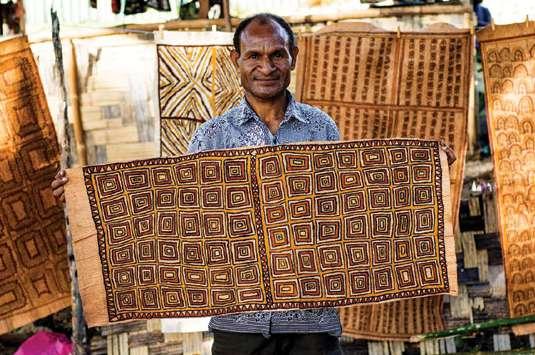
Expedient Limited (+675 7232 9990) provides shuttle services. ODESH (+675 7981 8832/+675 7408 6270) is Port Moresby’s first taxi and chauffeur on-demand booking service. See odesh.net or download the app.
Serious medical conditions can be treated in Port Moresby at the Pacific International Hospital, Paradise Private Hospital and Port Moresby General Hospital, which have emergency services. Some conditions may require treatment outside the country. Travellers should ensure they have adequate health cover. The cost of medical evacuation can be high. Visitors should also note that malaria is prevalent in PNG and there have been cases of measles and tuberculosis.
For St John Ambulance phone 111 or 7111 1234. St John provides a 24-hour ambulance service in Port Moresby.
PNG’s currency is the kina (PGK). Banks and ATMs are located
around Port Moresby, Lae and almost all urban centres.
BNBM Home Centre: Located at Gordons, sells everything from building materials to homeware and tech items. See facebook. com/BNBMPNG.
Brian Bell Home Centre: Sells a wide range of white and brown goods as well as sportswear and manchester. There are outlets at Boroko and Gordons with a smaller shop at Vision City. See facebook. com/brianbellgroup.
Foodworld: Has two outlets – Waterfront and Gordons. Considered the best grocery shops by many. The Waterfront outlet has a home centre, salon, eye care, clothing and tech shops. There is a Popi’s cafe at both locations.
Rangeview Plaza: Opposite Vision City, the plaza has a big grocery shop, clothing stores and a salon. The spacious dining area upstairs has multiple food vendors and a playground. There are stalls outside where local artisans sell their crafts, paintings and toana wear. See facebook.com/ RangeviewPlaza/.
Stop & Shop: It has outlets all over the city, but recommended locations are at Harbour City and Waigani Central (also home to Jack’s of PNG, Prouds and Hardware Haus). Small businesses are set up in the car park selling meri blouses as well local art and crafts. An outlet has opened at 8 Mile. See cpl.com.pg.
This complex at the Steamships compound in Waigani has small businesses selling PNG-designed outfits, crafts and accessories. You can also find a pharmacy and several hair stations. The eateries offer local cuisine, snacks and coffee. The supermarket sells fresh local vegetables sourced from all over the country. See unitygroup.com.pg.
Vision City: Centrally located in Waigani, the mall has everything from groceries to clothing stores, pharmacies, salons and even a carwash service. The only cinema (Paradise Cinema) in the country is on level 2. You can also find a night club (The Cosmopolitan). Take your pick from the many restaurants and food vendors at the Food Junction. See visioncitypng.com.
Banana Market: Located within the secure Adventure Park premises at 14 Mile, 30 minutes outside the city. Despite its name, you can find a wide range of fresh fruit and vegetables sourced from the gardens of surrounding communities. Open 7am–5.30pm.
Boroko Market: Next to Santos Stadium, this popular market has a great range of local produce. There is limited parking but there is a general understanding to park along the side street with caution. Open 7.30am–5pm. ➤
Ela Beach Craft Market: At the IEA TAFE campus opposite the beach. Held on the last Saturday of each month. Support artisans from nearby Motuan villages and small businesses that sell paintings, bilums, as well as woven baskets, mats and tapa (tree bark) cloth sourced from rural parts of the country. Organised by the Ela Murray International School. Tel. +675 302 3800. Open 7.30am–midday.
Gordons Market: Next to the Gordons police station, it’s the biggest market in Port Moresby with two levels. Well-organised, you can find everything from various greens, root crops and seasonal fruit. There is ample parking and security. Open 7am–6.30pm.
Holiday Inn Craft Market: Held on the third Saturday of each month in Cassowary Park. Paintings, wooden carvings and pandanus mats are just a few of the items on sale. Proceeds from the vendor fees (PGK20) and the craft market’s sausage sizzle go to charity. Open 8am–1pm. See facebook.com/ holidayinnandsuitesportmoresby.
Koki Fish Market: Built over the sea, this fish market is the biggest one-stop shop for seafood. Fish

like tuna and red emperor caught by local villagers can be cleaned and cut for you. Open 6am–6pm.
Moresby Arts Theatre Craft Market: Located at Waigani (next to Parliament House) find local art, carvings, pottery and jewellery. Enjoy the barbecue, live music and movies for kids. Some craft days have cultural dances and performance art shows. Held on the first Saturday of each month. Entry PGK2. Open 8am–1pm.
PAU Sunday Market: Pacific Adventist University, 30 minutes outside the city, has a market every Sunday, starting at 5am. There’s produce from the school’s farm, including cucumber,
watermelon and corn, as well as cooked food from the Pacific.
POM City Markets: If you’re after traditional crafts as well as a whole range of novelty products from small business owners, they regularly set up at the Vision City amphitheatre, National Museum & Art Gallery and Food Republic PNG carpark. They also host the Harbourside Night Markets at the Harbourside Precinct, which includes live music and food. See facebook.com/pomcitymarkets for upcoming dates. Tel. +675 7007 3046.
Some of these locations (as well as all food markets in general) are known for crime so it isn’t recommended that you go alone, or without your own security.
Airways Hotel: Port Moresby’s ritziest hotel has several places to eat. If you’re after fine dining, Bacchus is the place to go. For something more casual, go poolside to Deli KC or 7C’s past reception. The Vue Restaurant has a buffet each morning, lunch and evening. The Filipino-themed buffet is a winner. There is also an a la carte menu and stunning views. The tandoori dishes come highly recommended. If you’re after a drink, have cocktails and beers at the Balus Bar. For an exclusive experience, head to the Havanaba Bar to enjoy a cigar with your pick of top-shelf wines and spirits. See airways.com.pg. Tel. +675 324 5200 and +675 7373 2600.
Akura: An elegant dining and lounge bar at Harbourside that is a popular spot for after-work drinks Try their beef vermicelli salad or pop in for Taco Tuesday. Tel. +675 7320 7777. See instagram.com/ akurapng.
Alibi Bar & Grill: At the Harbourside precinct, open for lunch and dinner daily. There’s a kid’s playground if you’re making it a family day. Fridays

and Saturdays bring in a big night crowd and the bar stays open until late. Try their platters: the Surf & Turf, Meat Lovers and the Fisherman’s Basket with a view of the harbour. See facebook.com/alibipng. Tel. +675 7320 7777.
Ang’s Restaurant: No-frills Chinese hidden away in an industrial block opposite Brian Bell’s Gordons Plaza shopping centre. Roast duck is the signature dish. Tel. +675 323 0863.
Asia Aromas: Offering Chinese and Thai food by the water at Harbourside, this eatery has consistently good reviews on social media. Outdoor seating is available. A good spot for sunset drinks. Tel. +675 321 4780.
Aviat Port Moresby Club:
The club is open for breakfast, lunch and dinner. Home-style meals include stir-fries, toasted sandwiches, salt-and-pepper prawns and a pizza menu. This is a great spot to sit at lunchtime under the shady mango trees, or in the airconditioned bar. See facebook. com/Aviat-Club.
Cuppa Cafe: Has a rustic setting with great breakfast options, pasta dishes, burgers and salads. The snack bucket – a large bowl of fried chicken, onion rings, prawns, battered fish, spring rolls and chips – is perfect for sharing. Try their coffee or a range of healthy smoothie combos. Tel. +675 302 8666.
Crown Hotel: For fine dining, choose Rapala Restaurant, its menu a mix of Western and Middle Eastern dishes. It’s open 6pm to 10pm. All-day dining is available at The Cafe, opens at 6am. Every Saturday night, the hotel hosts an International Street Food Festival, featuring popular dishes from around the world. See crownhotel.com.pg. Tel. +675 309 3000.
Crowne Plaza Residences:
The Port Terrace Restaurant & Bar has views of Fairfax Harbour, and all-day dining. It’s open 6.30am to 10pm. Try a power juice for breakfast, chicken parmy for lunch or chilli lobster for dinner. The extensive menu also includes burgers and steaks, as well as share plates. Great spot to watch
the sunset with a beverage, with wine, beer, spirits and cocktails on offer. See portrestaurant.com.pg. Tel. +675 308 3100.
Daikoku: The extensive Japanese menu has teppanyaki, donburi bowls and a large range of sushi. ‘All-You-Can-Eat’ grilled skewers available every Thursday night. You can find them at Stop & Shop Harbour City (first floor) and the Harbourside Precinct. See daikokupng.com. Tel. +675 7375 3130.
Duffy Cafe: Known for excellent coffee and homemade cafe-style food and bakery items, Duffy has three locations: at Harbourside, Gordons and Jacksons International Airport. You can order your breakfast ahead of time for those busy work mornings. You can also find their bread on sale at Waterfront Foodworld. See duffypng.com. Tel. +675 325 8528.
Dynasty at Vision City: This may be the biggest restaurant in Port Moresby. Its size, its chandeliers and its gold decor make it a favourite for balls, dinners and parties. The menu is huge, too, with pages of Asian dishes. The crispy lemon chicken is a favourite. See facebook. com/100064086213057. Tel. +675 302 8538.
Edge by the Sea: The Edge cafe has alfresco dining with a wonderful marina outlook from the ground floor at the Edge Apartments in Harbour City. Eggs benedict, burrito bowls, pork burgers and grilled snapper are among the breakfast and lunch menu favourites. Try their Turkish lahmacun. There’s a mist water system in the alfresco area that can reduce the ambient air temperature by up to ➤
10 degrees, perfect for those blistering-hot days. See facebook. com/edgebythesea/. Tel. +675 7995 5263.
Ela Beach Hotel: Drop in to Salt Restaurant for casual all-day dining, including curry, burgers and wok dishes, or pizza at Enzo’s. The Beachside Bakery has a great range of sweet treats and coffee that you can enjoy in outdoor seating. See coralseahotels.com.pg. Tel +675 7998 6510.
Fusion Bistro: A fusion of flavours from China, Thailand and Vietnam. Located in ENB Haus, Harbour City. Takeaway available. Tel. +675 7196 6666.
Gateway Hotel: The hotel’s dining options include the Wild
Orchard for breakfast and dinner buffet daily, Jackson’s Gaming–Restaurant–Bar, which has a rooftop bar with views of the airport, as well as claims to the best lamb rack in town, Sizzler’s Family Restaurant for value dining (PGK60 buffet), while Enzo’s Express does quick lunches, coffee and pizza. Deli Cafe serves excellent milkshakes and the hotel’s own range of bread and pastries. See coralseahotels.com. pg. Tel. +675 7999 0200.
Grand Papua Hotel: The elegant Grand Brasserie has an a la carte menu of modern European cuisine, as well as buffet options – Asian on Tuesday and Seafood on Friday. The Grand Cafe, on Douglas Street, has barista-made Goroka coffee, fruit juices, freshly made
Marriott Executive Apartments Port Moresby, a waterside property close to the heart of the city, is set within the vibrant mixed-use development of Harbourside South. Boasting 88 luxury apartments with premier hotel services, Marriott Executive Apartments are suitable for both short and long-stay travellers.
salads and sandwiches. The Grand Bar – with stylish marble, high ceilings, timber floors and window shutters – has a light menu and is a popular place to wind down after work. See coralseahotels. com.pg/grand-papua-hotel. Tel. +675 7999 0000.
Hilton Port Moresby: The hotel has five eating areas including Mumu, which is named after the traditional earthen oven of PNG, and serves traditionally inspired dishes. There’s also a top-floor lounge bar called Summit, cafe-style dining in Copper on the lobby level, all-day dining and a breakfast buffet at Feast, including a Southeast Asian buffet every Wednesday night, and quick bites, such as sandwiches and coffee, at Halo in

the convention centre foyer. See hiltonportmoresby.hilton.com. Tel. +675 7501 8000.
Hilton Residences: The Host Deli, Bistro & Bar on level two has a relaxed modern vibe with ample seating options. The Super Bowl (roasted cauliflower, falafel, poached egg, chickpeas with hummus, labneh and halloumi) comes highly recommended. If you’re on the go, the delicatessen bar offers fresh fruit, pastry, sandwiches and desserts. Opens at 6.30am and stays open till late for drinks. See hiltonportmoresby. hilton.com. Tel. +675 7501 8000.
Holiday Inn & Suites: The Kopi Haus Restaurant has breakfast from 6am, lunch and dinner. It has a la carte as well as a buffet, with the cuisine including PNG

Guests will enjoy oceanic views as well as leisure facilities offered within the greater Harbourside Precinct. Various bedrooms and penthouses are available, each promising the space, ambience, and privacy of residential living. Guests also have access to the Executive Boardrooms and the indoor and outdoor venue space on the 11th floor, providing stunning views. Gym membership including lap pool access is now available.
Use your Membership with us
Guests are welcome to use their Bonvoy Membership during their stay. Reserve your room online at marriottexecutiveapartments.com
Marriott Executive Apartments ® Harbourside South | Stanley Esplanade, PO Box 1 | Port Moresby, Papua New Guinea (+675) 7090 8888 | marriottexecutiveapartments.com
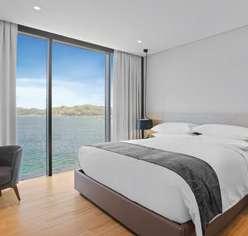
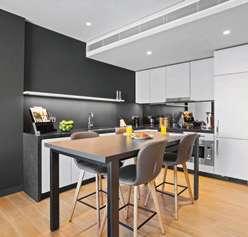
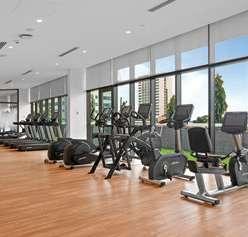

flavours. Expect themed buffets (such as barbecue and flavours of Asia) from Wednesday to Friday. The poolside Gekko Bar opens at midday and includes a big screen for sports telecasts and tasty bites to go with a range of wines, cocktails and local and international beers. See ihg.com. Tel. +675 303 2000.
Hosi Ramen: As the name suggests, this Japanese restaurant at Vision City specialises in ramen (noodles served in broth with meat and vegetables). A party of up to 15 people can opt for a hotpot session. Tel.+675 302 8555.
Jeanz Cafe: A family-friendly cafe with ample seating that proudly serves PNG Arabica coffee. Located in Gordons Plaza,
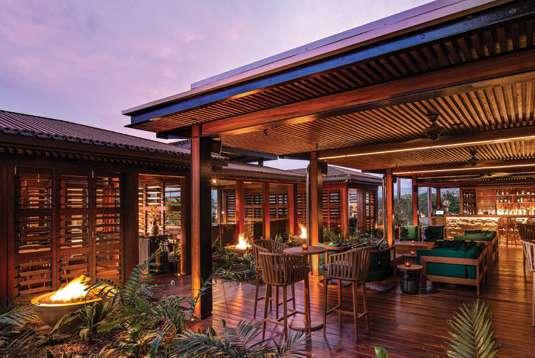
it has a great range of salads, pastries and sandwiches. See gordonsplaza.com.
Kofi “N” Kai: A cafe located in BNBM Home Centre with ample
lounge seating. Try the ham and cheese croissant or indulge in dessert options like Oreo cheesecake, carrot cake or the Tel. +675 775 74399.
Korean Garden: An affordable menu at Vision City that includes a do-it-yourself barbecue, as well as traditional favourites such as kimchi and gimbap. See facebook. com/koreangardenpng. Tel. +675 302 8534.
Lamana Hotel: Choose from options including Spices Restaurant (Indian), the Italian Restaurant, Cafe Palazzo and PNG’s biggest nightclub, The Gold Club. The 360 Bar has great night views, and exclusive birthday fireworks can be organised. See lamanahotel.com.pg. Tel +675 7373 0600.
Loloata Island Resort: The private island has two restaurants. Bootless Bay is spacious with high ceilings and an open-plan style that provides a panoramic ➤


view of the sea. They serve a highly recommended breakfast and lunch buffet. The vibe at night makes it the perfect spot for a dinner date. The Beach Club upstairs is a great spot for special events like corporate dinners, birthdays and weddings. See loloataislandresort.com. Tel. +675 7108 8000.
Lucky Lucky: Informal but classy Thai cuisine at the Nambawan Super Plaza. Town and harbour views, alfresco dining. Go-to dishes include pad Thai noodles and the charcoal-grilled pepper beef sirloin. Tel. +675 7995 5264.
Mojo Social: This casual Mediterranean-inspired bar and restaurant is on the ground floor of PWC Haus at Harbour City. Tapasstyle dishes, risotto and pizza are
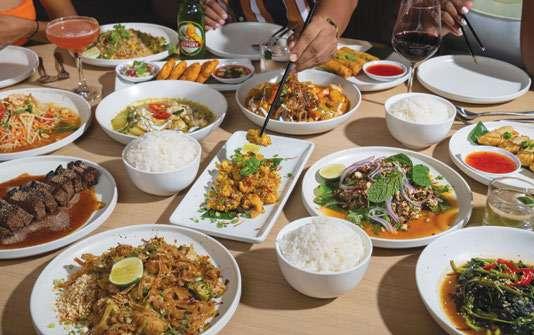
among the offerings. Try the new Mexican dishes during a regular Taco Tuesday. See mojofood.co. Tel. +675 7995 5264.
Pentagon Entertainment:
On the former Laguna Hotel premises. Guests can enjoy indoor
and outdoor seating. There is also a family-friendly pool area. Try some of the signature dishes like biryani stuffed roasted chicken, crispy pork sisig, and salmon in an orange glaze. Tel. +675 325 1068.
PGO!: PNG’s first online delivery service. Their vendors include Burrito Central (Port Moresby’s first Mexican takeaway), Port Terrace, The Dirty Kitchen, Abus na Kumu (translates to ‘meat and greens’), Fusion, Kopibin, Mr Mike’s Pizza, The Cellar, Juice Bar and Marcus Kitchenette and Catering and many more. See phipax.com.
Port Terrace: Fast becoming a popular lunch and dinner spot, the restaurant and bar is in the Crowne Plaza Residences. There are grilled dishes, share plates like a seafood or sticky pork ribs platter, and homemade pasta dishes. There’s a new cocktail to try every month. See portrestaurant.com.pg. Tel. +675 308 3100. ➤
Red Rock Bar: Located at Dogura, 6 Mile (along Magi Highway). Be prepared for an uphill drive to the bar but it’s worthwhile for the spectacular sunset. Try the Red Rock burger or sizzling lamb and pork with a table in the outdoor area. Tel. +675 8214 7357.
Royal Papua Yacht Club: Relaxed, spacious and open to non-members. Comfort food, draught beer and an open-plan bar area showing sport on large screens. There is a themed cocktail night each Thursday. See rpyc.com.pg. Tel. +675 321 1700.
Seoul House: This restaurant specialises in Korean, Thai and Chinese cuisine, cooked on a hotplate in front of you. The dishes include a seafood platter of coral

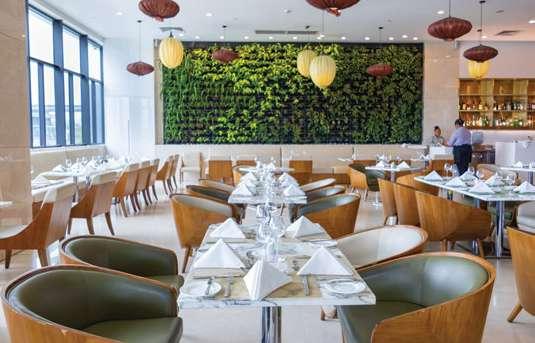
trout, mussels and shrimp, and Singapore-style chilli crab. Seoul House is tucked away in a garden oasis compound in Five Mile. The owners also have a cafe at the Jacksons International Airport, Hotspot. Try the black forest cake
and croissant sandwich while waiting for your flight. Tel. +675 7823 3075.
Shady Rest Hotel: The Indian dishes at the hotel’s Cellar Restaurant draw high praise from
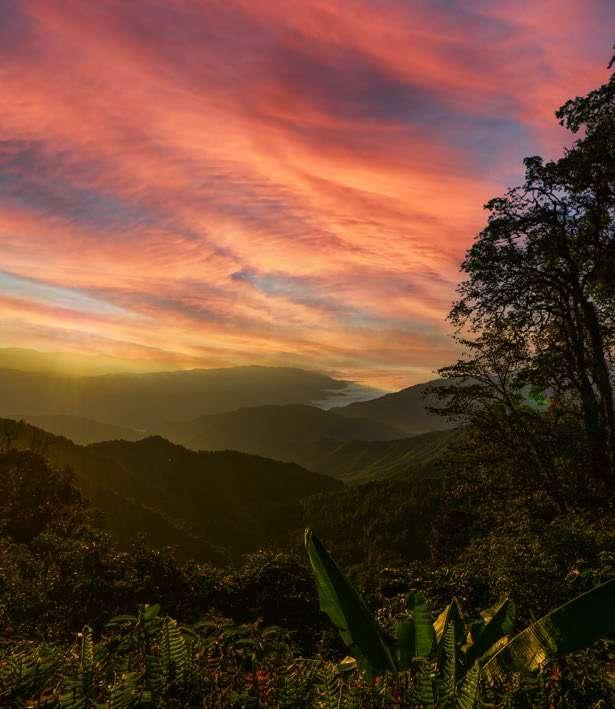



reviewers on TripAdvisor. The restaurant also prides itself in its steaks. Mr Mike’s Pizza Company is a takeaway located at the hotel and has classic pizzas, such as Hawaiian and margarita, as well as gourmet pizzas such as the Mediterranean, which is packed with feta, olives, mushrooms and more. Bakeology Cafe & Bakery offers alfresco dining surrounded by lush greenery. Enjoy a range of sandwiches, salads, pastries, desserts and freshly baked bread. See shadyrest.com.pg. Tel +675 323 0000.
Stanley Hotel and Suites: This Waigani hotel has several restaurant choices. On the 19th floor, the Silver Leaf offers intimate fine dining with stunning night views. The Executive ➤
Visit us at Port Moresby, Lae, Wewak, Kiunga, Madang, Rabaul, Kokopo, Kimbe & Kavieng
We’re now in Mt Hagen,catering for the Highlands region!

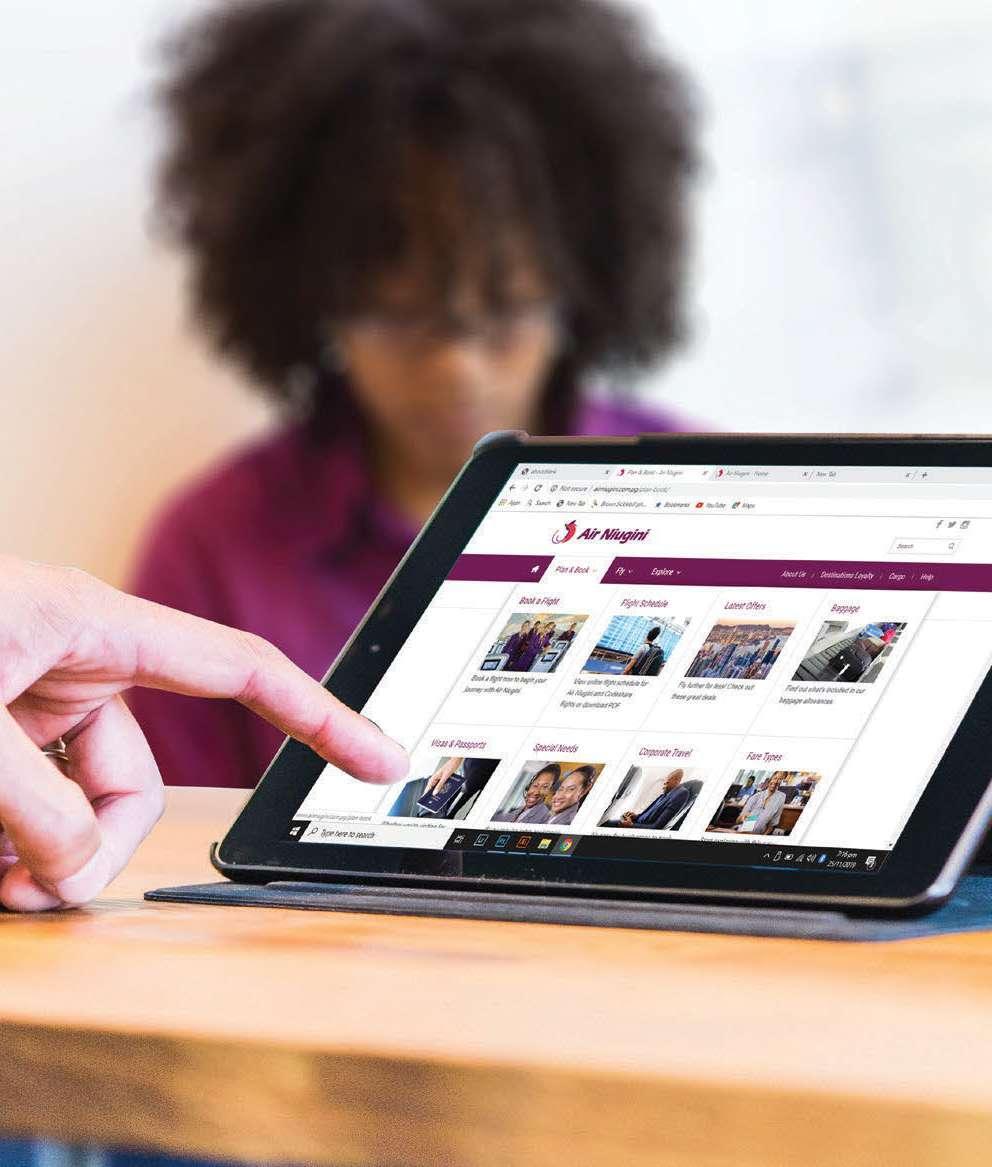
Lounge (for guests staying on the 14th to 18th floors) offers breakfast, all-day snacks and cocktail canapes. A walk up the stairs from the lounge takes you to the Mezz Bar, which offers premium spirits. There is also a smoking deck. The chic tapasstyle Monsoon Lounge is on the ground floor. Green Haus restaurant has all-day dining, including buffet dinners with live cooking stations. Choose your own combo at the new juice station available at breakfast and lunch. The serene Rainforest Cafe, close to the check-in area, has coffee, desserts and pastries. See thestanleypng.com.
Tandoor on the Harbour: Come here for a curry with great bay
views. The butter chicken with garlic nan is classic. See facebook. com/tandoorontheharbour. Tel.+675 3201 910.
Tasty Bites: This cosy traditional Indian restaurant is tucked away in the town centre in Hunter Street near Crowne Plaza (ANG Haus). A great spot for quick and affordable meals. Try the vegetable noodles with chicken strips or the pizza menu. Deliveries available. Tel. +675 321 2222.
Tribes Coffee Club: This cafe has two locations: Oasis building in the Steamships compound, Waigani, and Lawes Road, Ela Beach. All-day dining available. The seafood platter with crab, shrimps and the catch of the day
is a dinner favourite. Tel. +675 321 0455.
Tuna Bay Resort: Located in Taurama, just five minutes from Manu. Enjoy battered fish and chips, char-grilled rump steak and boneless chicken that comes with a side of garden salad and chips. There is indoor and outdoor dining, with bay views. Tel. +675 7920 8777.
Bulolo Golf and Country Club: Lae’s newest restaurant has an a la carte menu with indoor dining and an outdoor deck overlooking the course. The Bulolo T-bone steak is said to be among the best in the country and is sourced locally. Try ‘Papa Tony’s Pizza’, a
stone-baked pizza created by the club’s chefs. See facebook.com/ bulolocountryclub/. Tel. +675 7358 7161.
Bunga Raya: This local favourite, serving Malaysian-style Chinese, is located next to the Lae Golf Club. Be sure to try the stuffed lettuce cups, laksa and claypot tofu. They’ve added boba milk tea and their own range of fruity sodas to the drink’s menu. See facebook. com/bungarayarestaurant/. Tel. +675 472 7177.
Cafe 411: There’s a cosy atmosphere at this casual cafe next to Hotel Morobe on Coronation Drive. The Westernstyle menu includes finger foods and PNG coffee. Try the T-bone steak with mushroom sauce if you’re after something hearty. Tel. +675 479 0100.
Huon Club: This private members’ club offers airconditioned facilities, comfortable lounge chairs, an expansive deck overlooking the Lae Golf Club, a fully stocked bar and Foxtel to preview all the racing and sporting events. Open on Wednesday and Friday, members can enjoy regular lucky key draws and a barbecue menu. Inquiries to Lae Golf Club. See laegolfclub.com.pg. Tel. +675 472 1363.
The City Cafe: Located in the Lae City Hotel on 3rd Street, the cafe serves Western and Asian cuisine. The signature dishes include ribs and nasi goreng. Tel. +675 472 0138.
Lae Garden Restaurant: The Asian menu includes staples such as crispy chicken, butter prawns and the Malaysian dish nasi lemak. The elegant restaurant, inside Hotel Morobe on Coronation Drive, offers breathtaking views of
the city from its balcony. A great venue for big dinner parties. Tel. +675 479 0100.
Lae Golf Club: The club is excellent for a few sundowners as you overlook the stunning green with access to the excellent bar. Apart from golf, you can enjoy the basketball and tennis courts. See laegolfclub.com.pg. Tel. +675 472 1363.
Lae International Hotel: Home to three restaurants –Luluai’s Italian Pizza, Vanda and Kokomo – which serve an array of international cuisine, including Indian and seafood buffets. The Sportsman’s Bar (aka Jack’s Bar) is a good place for a nightcap. See laeinterhotel.com. Tel. +675 472 2000.
Lae Yacht Club: The perfect place for late-afternoon beers, or just as nice for a relaxing lunch. Serves pub-style food. Try the Cajun grilled fish of the day. See laeyachtclub.com.pg. Tel. +675 472 4091.
Mountain View Restaurant: Located at the Crossroads Hotel at Nine Mile. Try the newly curated menu, which is a mix of Western and Pacific cuisine. Ramu steaks are a favourite. Great spot for cocktails and wine. See crossroads-hotel-lae.mydirectstay. com/. Tel. +675 475 1124.
Ocean Restaurant: Located at Aviat Club, it’s a popular seafood spot. Offers authentic Asian cuisine and local dishes. See facebook. com/p/Ocean-RestaurantLae-100049129045632/. Tel. +675 7370 3045.
Airways Hotel: Airways is within a large, secure compound next to
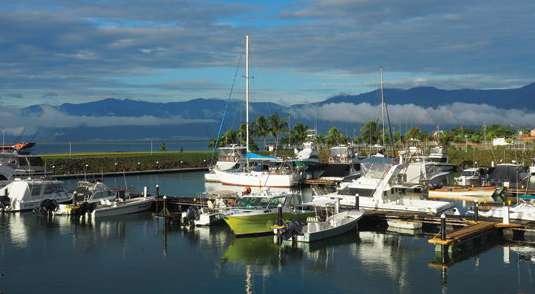
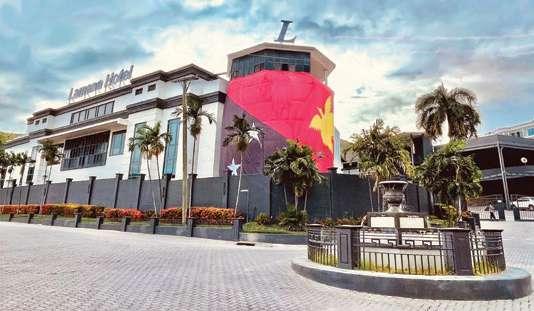
Jacksons International Airport. An inspiring setting, luxurious rooms, excellent service and very good food options. See airways.com.pg. Tel. +675 324 5200.
Citi Boutique Hotel: The Citi Boutique Hotel is a three-star property in Boroko. It has 60 deluxe queen and twin rooms, a business centre, cable TV and free Wi-Fi. There’s also a day spa and beauty salon, restaurant, bar, karaoke room, and a rooftop terrace. The hotel provides free airport transfers. See facebook. com/citiboutiquehotel. Tel. +675 300 1300.
Citi Serviced Apartments and Motel: There are two Citi Serviced Apartments and Motel properties, one block located at East Boroko and the other at Manu. They are set in safe and
secure grounds. The apartments are fully kitted out. They include cable TV, free Wi-Fi, washing machines, dryers, fridges, fans and air conditioning. Housekeeping is also provided. See facebook. com/citiboutiquehotel. Tel. +675 300 1300.
Crown Hotel: Upmarket rooms and suites in the heart of the CBD. Decent gym, business centre, undercover parking, thriving cafe and Mediterranean restaurant. See ihg.com. Tel. +675 309 3329.
Ela Beach Hotel and Apartments: On the fringe of the CBD, this constantly expanding hotel/apartment complex is part of the Coral Sea Hotels group. See coralseahotels.com.pg. Tel. +675 321 2100.
Gateway Hotel: Conveniently located just minutes from
Jacksons International Airport, the hotel has a range of dining options, conference facilities, modern gym and two swimming pools. Free airport shuttles are available for guests. See coralseahotels.com. pg. Tel. +675 327 8100.
Grand Papua: This premium hotel is now part of the Raddison group and features 156 suite rooms (short and long stay), an executive floor, gym and conference facilities. The separate restaurant and bar areas are popular for business meetings. Centrally located. See coralseahotels.com. pg/grand-papua-hotel. Tel. +675 304 0000.
Hilton Port Moresby: The capital city’s newest luxury hotel opened in late 2018 and is in the government district 10 minutes from the airport. There are five restaurants, an executive lounge, six meeting rooms, a convention centre, swimming pool and fitness centre. All rooms in the 15-storey hotel include floor-to-ceiling windows. The accommodation includes standard rooms, executive rooms and suites. See hiltonportmoresby.hilton.com. Tel. +675 7501 8000.
Holiday Inn & Suites: Located in Waigani, the large grounds include a walking track in a tropical garden setting, outdoor restaurant and bar area, business centre and gym. Includes threestar Holiday Inn Express hotel. See ihg.com. Tel. +675 303 2000.
Lamana Hotel: In Waigani, the hotel has 24-hour free airport transfers, free in-room Wi-Fi, a conference centre, restaurants, and the famous Gold Club. See lamanahotel.com.pg. Tel. +675 323 2333. ➤
Loloata Island Resort: This island resort, 40 minutes from Port Moresby, opened in late 2019. There are 68 rooms (including some overwater suites and villas), a day spa and two restaurants. Day passes are available for visitors who aren’t staying overnight, and shuttles are provided from Port Moresby. The island is perfect for swimming, snorkelling, diving, walking or just lounging beside the pool. See loloataislandresort.com. Tel. +675 7108 8000.
Sanctuary Hotel Resort & Spa: The hotel is an oasis in the city, located 10 minutes from the airport in North Waigani. There is a lot of greenery in the hotel grounds and a large aviary, which includes the bird of paradise. The

hotel, close to government offices, has a business centre, a day spa, swimming pool and a restaurant with a traditional PNG menu with a contemporary edge. It also has

rooms and facilities with ramps for people with disabilities. Tel. +675 303 7400.
Shady Rest Hotel: Located at Three Mile, seven minutes
from the airport, this affordable hotel has 74 rooms, including newly built executive rooms, conference facilities, a day spa and salon, a small gaming lounge, a tapas lounge, the Indianinspired Cellar Restaurant and Mr Mike’s Pizza Company. See shadyrest.com.pg. Tel. +675 323 0000.
One of Port Moresby’s newest hotels, this is a luxurious 429room property in Waigani, close to government offices and embassies. It has 95 long-stay apartments, gym, pool, cafe, restaurants and an executive lounge. Connected to Vision City Mega Mall. See thestanleypng. com. Tel. + 675 302 8888.


Crossroads Hotel: A 45-room facility at Nine Mile. The hotel has a Japanese-themed teppanyaki restaurant with Asian/Western fusion menus, full bar service, a well-equipped gym, Wi-Fi and complimentary transfers to both Lae City and the airport. Tel. +675 475 1124.
Hotel Morobe: A centrally located boutique with 38 elegantly decorated rooms. See hotelmorobe.com. Tel. +675 4790 100.
Huon Gulf Hotel & Apartments: Has comfortable rooms, conference rooms and a pool, located in the industrial part of town. The restaurant offers Italian cuisine and there are two bars.
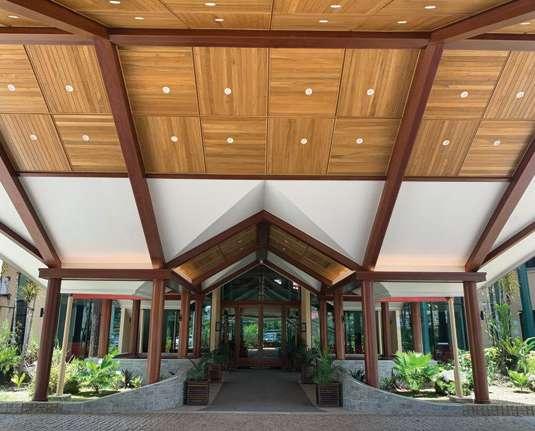
See coralseahotels.com.pg/huongulf-hotel-apartments/. Tel. +675 7999 0100.
an excellent cafe and restaurant with Western and Asian cuisine. See laecityhotel.com. Tel. +675 472 0138.
Lae International Hotel: The city’s premier hotel has recently renovated rooms, full bar service, conference and banquet halls, a gym and pool. See laeinterhotel. com. Tel. +675 472 2000.
Lae Travellers Inn: An affordable option, offering clean and comfortable rooms. There is a car rental service on the inn’s premises and their restaurant offers curry takeaway. See laetravellersinn.com/. Tel. +675 479 0411. n
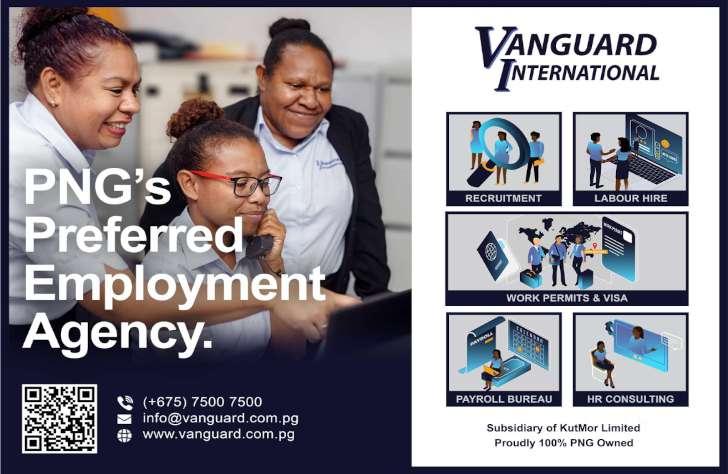
Papua New Guinea has more than 800 languages, but the three official languages are Tok Pisin, English and Motu. Here, we outline some Tok Pisin, which is the largest lingua franca of PNG.
Where do I find a taxi?
Bai mi painim taxi long we?
One coffee with milk, please. Wanpela kap kopi wantaim milk plis.
Where is the toilet?
Toilet istap we?
Numbers
1
2
3
How much is this?
Hamas long dispela?
Thank you very much. Tenkiu tru.
You understand English?
Yu save long tok Inglis?
Where is my bag?
Bag bilong mi istap we?
Where can I change my money?
Wanem hap bai mi ken
senisim moni bilong mi?
One beer, please. Wanpela bia plis.
Why? Bilong wanem?
How many children do you have? Yu gat hamaspla pikinini?
Where are you from?
Yu bilong wanem hap?
I don’t know. Mi no save.
What do you want?
Yu laikim wanem samting?
Restaurant Ples bilong kaikai
Goodbye Gutbai
Hello Halo
Water Wara
Baggage Kago
Airport Ples balus
Place Ples
Fish Pis
4
5
6
7
8
9
10 Ten



“You r part n er in de li ver in g So c i a l , E n v i r on me n ta l a n d Co rp o rate G o ver n a n ce in t h e Minin g I n d us try ”

The M ine r al Res ou r c es A u th or it y ( M R A ) is a g o v e r n m ent instit u ti o n
esta b lished t o r e gu late , g r ow and s u staina b l y m ana g e the m inin g
( m ine r als) ind u st r y t o m axi m i z e m ine r al ex po r t r ev en u e for P a pu a
Ne w Gu inea . It is the cu s t o dian of o v e r 1 5,000 v o l um es of ex p l o r ati o n
r e po r ts and o v e r 900,0 0 0 data po ints of m ine r al data . It is the fi r s t po int of co nta c t for an y bu sinesses in the m inin g se c t o r
Call U s (675) 207 2250
S end U s M ai l info@mra.gov.pg O ur Loc ati o n Mining Haus, Poreporena Freeway PO Box 1906 Port Moresby 121 NCD Papua New Guinea
Air Niugini has continued its support of the Operation Open Heart Foundation (OOHF) with free travel for 16 children needing closed-heart surgery.
They travelled with their guardians from various provinces around Papua New Guinea to Port Moresby for the surgery.
“This program is more than just medical intervention; it is about giving children a second chance at life, providing hope to families, and strengthening PNG’s medical capabilities for the future,” says the airline’s Chief Executive Officer, Gary Seddon.
“While the airline plays a role to help, the real heroes are the doctors, nurses, anaesthesiologists, orderlies, parents and the support teams that work behind the scenes to give these children a second chance at life,” he says.
“I appeal to other organisations and individuals to support this life-saving mission.

Together we can make a profound difference in the lives of these children, their families and the future of healthcare in PNG.”
This program is about giving children a second chance at life.
Air Niugini has supported the heart program since its inception in 1993.
Over 32 years, the airline has flown medical teams and equipment from Australia for the operations, helped fundraising initiatives and transported medical teams to provincial hospitals to enable heart screenings. n
Air Niugini was a support partner for the inaugural Aelan Riddim Music Festival in Honiara, in the Solomon Islands, in March.
As a key regional carrier, Air Niugini is dedicated to promoting and celebrating the artistic culture of Melanesia.
The airline provided travel for five PNG artists – Saii Kay, Mereani Masani, Jarahn, Kali-D and J Liko – with round-trip flights from Port Moresby to Honiara.
Air Niugini offers up to five weekly flights to Honiara. n

Air Niugini has opened a second retail sales office in Mount Hagen, at the Tininga Dobel Retail Centre. The office was jointly opened by Minister for State Owned Enterprises and Member for Hagen Open, William Duma, and Air Niugini Chairman, Karl Yalo.
The opening was witnessed by Western Highlands Governor, Wai Rapa, Air Niugini directors and management.
Minister Duma said establishing a second sales office in Mount Hagen was a commendable and sensible initiative considering the demand.
“The impact of establishing an additional office is significant, as it not only caters to the needs of the people in the Western Highlands but also serves a broader community of the other Highlands provinces.
“The days of standing in long queues are over, we must lift our game and by providing services in a central location, Air Niugini is fostering accessibility and convenience for many, improving their overall experience. I commend the Air Niugini board and management for this great initiative.”
Karl Yalo emphasised that the expansion of the sales office is a strategic move that is aligned with Air Niugini’s refleeting program.
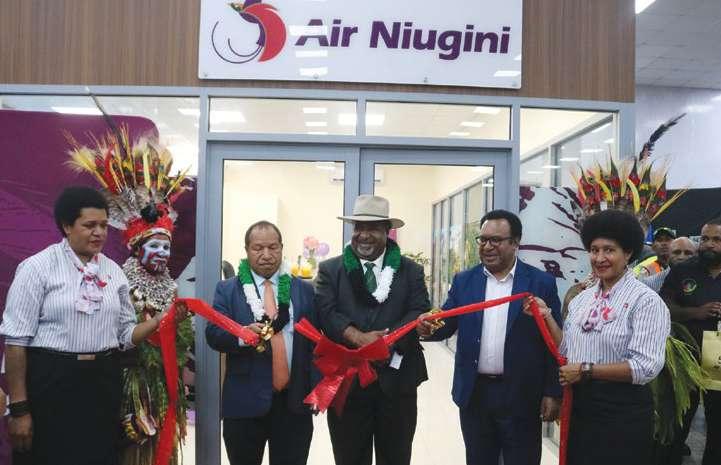
“In September, we will welcome the first of our new Airbus A220-300 aircraft. This fleet is not just about modernising our operations, it is about ensuring that we can continue to serve the people of Papua New Guinea for generations to come. It is about connecting families, supporting businesses, and enabling economic growth. It is about making air travel
Air Niugini frequently offers discounted airfares, including Nambawan fares, which provide up to 60 per cent off standard ticket prices.
The Nambawan fares are designed to make travel more affordable and to encourage more people to fly, whether for business, tourism, medical reasons or simply to visit family and friends within the country. The fares are available most of the year.
Among the passengers to benefit from the fares recently is Alita Sari, who purchased
five tickets to travel with her family from Lae to Port Moresby to witness her daughter’s graduation.
“I couldn’t contain my happiness,” she said. “I spent over PGK3000 to purchase eight tickets and saved up to PGK6000. I am taking my sisters and my sister-in-law with me to witness my daughter’s big day. This would not have been possible without Air Niugini’s support on the discounted fares.”
To stay up to date on the latest deals and promotions, passengers are encouraged to regularly check Air Niugini’s Facebook page,
safer, more comfortable, affordable and more accessible for everyone.
“As we open this new sales office, we are reminded of the importance of staying connected – not just through our flights, but also through our people. The sales office is a gateway to the world, a place where dreams take flight. n

website, or call toll-free 180 3444/7104 3444. You can also visit your nearest Air Niugini sales office. n
If there is anything our cabin crew can assist you with during your flight, please do not hesitate to ask them.
Please ensure that your carry on luggage is placed in the overhead locker or under the seat in front of you.
Ensure that your seat is in the upright position during takeoff and landing. Folding tables must be returned to their original position in the seat back or the armrest.
Your seat belt must be securely fastened during take off and landing or whenever the seat belt sign is on. When the seat belt sign is off you may move about the cabin as necessary. However while seated, keep your seat belt fastened securely in case of unexpected turbulence.
Cellular telephones, TV receivers or radio controlled devices are not to be used at any time on board an aircraft. Electronic devices such as portable computers, compact discs or cassette players and video games can be used only when the seat belt sign is switched off.
The cabin crew will also be pleased to assist in preparing your baby’s food and bottle. Baby food and diapers are also available. Please do not hesitate to ask our friendly cabin crew.
Smoking is not permitted on any Air Niugini flight.
A selection of movies and music including classical, modern, country and local are available on international services.
On International flights, pillows and blankets are available on request from our cabin crew.
Our in-flight* meals have been specially prepared for your enjoyment. If you require a vegetarian meal or you are on a special diet, child or baby food, please inform us when making your reservation.
During your flight, our cabin crew will distribute Immigration and Custom forms before each landing point. Ensure that you carefully read and complete these documents and have them ready for inspection with your passport at the Immigration and Customs arrival counters.
Please check your seat pocket and overhead lockers before you disembark to ensure you have not left any items of value. We look forward to seeing you when you next fly with us on our Bird of Paradise Service.

Length: 39.5M
Wing Span: 35.79M
Range: 5000-5500KM
Cruising Speed: 810-850KPH
Power Plant: 2 x CFM56-7B27E

Length: 59.94m
Wing Span: 47.57m
Range: 8100km
Cruising Speed: 857kph
Power Plant: 2 x PW4000
Normal Altitude: 11000 - 12000m
Standard Seating Capacity: 188
Business Class: 28
Economy Class: 160
Number of Aircraft in Fleet: 2

F70 – Fokker
Length: 30.91m
Wing Span: 28.08m
Range: 3410km
Cruising Speed: 743kph
Normal Altitude: 11300m
Standard Seating Capacity: 162
Business Class: 10
Economy Class: 150
Number of Aircraft in Fleet: 01

Lenght: 39.5M
Wing Span: 35.79M
Range: 5000-5500KM
Cruising Speed: 810-850KPH
Power Plant: 2 x CFM56-7B27E
Normal Altitude: 11300m
Standard Seating Capacity: 154
Business Class: 16
Economy Class: 128
Number of Aircraft in Fleet: 1

F100 – Fokker
Length: 35.53m
Wing Span: 22.08m
Range: 3000km
Cruising Speed: 780kph

Lenght: 39.5M
Wing Span: 35.79M
Range: 5000-5500KM
Cruising Speed: 810-850KPH
Power Plant: 2 x CFM56-7B27E
Normal Altitude: 11300m
Standard Seating Capacity: 154
Business Class: 16
Economy Class: 138

Lenght: 32.8M
Wing Span: 28.4M
Range: 3000KM
Cruising Speed: 670KPH
Power Plant: 2 x Rolls Royce Tay 650-15 turbo engines
Normal Altitude: 11000m
Standard Seating Capacity: 73
Business Class: 8
Economy Class: 65
Number of Aircraft in Fleet: 3

DHC8-202 – Bombardier
Length: 22.25m
Wing Span: 25.89m
Range: 1800km
Cruising Speed: 550kph
Power plant: 02 x Pratt & Whitney PW123D
Normal Altitude: 7600m
Standard Seating Capacity: 37
Number of Aircraft in Fleet: 2
Power Plant: 2 x Rolls Royce Tay 650-15 turbo engines
Normal Altitude: 11000m
Standard Seating Capacity:101
Business Class: 8
Economy Class: 93
Number of Aircraft in Fleet: 5

DHC8-Q315 – Bombardier
Length: 25.7m
Wing Span: 27.4m
Range: 1700km
Cruising Speed: 510kph
Power Plant: 02 x Pratt & Whitney PW123E
Normal Altitude: 6100m
Standard Seating Capacity: 50
Number of Aircraft in Fleet: 5
Power plant: 02 x Pratt & Whitney PW150A
Normal Altitude: 7600ft
Standard Seating Capacity: 76
Number of Aircraft in Fleet: 4

Lenght: 20.21M
Wing Span: 19.33M
Range: 4500KM
Cruising Speed: 650KPH
Power Plant: 3 x Honeywell TFE731
Maximum Altitude: 7600m
Standard Seating Capacity: 12
Number of Aircraft in Fleet: 1

At Air Niugini we care about your comfort and safety. We have included the following information about your health in-flight that we hope you will find helpful and useful.
When you are flying you can be seated and be inactive for long periods of time. The environment can be low in humidity and pressurised up to an altitude of 2240 metres above sea level. Unlike other forms of transportation, air travel allows for rapid movement across many time zones, causing a disruption to the body’s “biological clock”. Although these unique factors do not pose a health or safety threat to most passengers, there are guidelines you can follow that will improve your comfort level, during and after a flight. We hope the following recommendations will help you have a more pleasant flight today and in the future.
When you’re sitting upright in a stationary position for a long period of time, several things can happen.
The central blood vessels in your legs can be compressed, making it more difficult for the blood to get back to your heart.
The long inactivity of your body muscles in this position can result in muscle tension, back aches or a feeling of excessive fatigue during, or even after, your flight. A stationary position inhibits the normal body mechanism for returning fluid to your heart, and gravity can cause the fluid to collect in your feet. This results in swollen feet after a long flight.
Studies have concluded that prolonged immobility may be a risk factor in the formation of clots in the legs (DVT - deep vein thrombosis). Particular medication and medical conditions may increase the risk of formation of clots if associated with prolonged immobility.
Medical research indicates that factors which may give you an increased risk of blood clots in the legs include: Former or current malignant disease
Blood disorders leading to increased clotting tendency
Personal or family history of DVT
Immobilisation for a day or more
Increasing age above 40 years
Pregnancy
Recent major surgery or injury, especially to lower limbs or abdomen
Oestrogen hormone therapy, including oral contraceptives
Dehydration
Heart failure
Trauma
Varicose veins
Obesity
Tobacco smoking
Recommendations
If you fall into any of these categories or you have any concern about your health and flying, Air Niugini recommends you seek medical advice before travelling. Follow our in-flight exercises programme.
The main cause of jetlag is travelling to different time zones without giving the body a chance to adjust to new night-day cycles. In general, the more time zones you cross during your flight, the more your biological clock is disturbed.
The common symptoms are sleeplessness, tiredness, loss of appetite or appetite at odd hours.
Recommendations
Get a good night’s rest before your flight. Arrive at your destination a day or two early, to give your body a chance to become more acclimatised to the new time zone.
Leave your watch on home time if you’re staying at a destination less than 48 hours. Also try to eat and sleep according to your home time.

Change your watch to the local time if your stay is longer than 48 hours, and try to eat and sleep in accordance with the local time.
On longer stays, try to prepare in advance, adjust your meal and rest times to be closer to those of your destination.
Try some light exercise - go for a brisk walk, or do some reading if you can’t sleep after arrival at your destination. It generally takes the body’s biological clock approximately one day to adjust per time zone crossed. Fly direct to minimise flight time. This allows you to relax more upon arrival.
Humidity levels of less than 25 percent are common in the cabin. This is due to the extremely low humidity levels of outside air supplied to the cabin. The low humidity can cause drying of the nose, throat, eyes and it can irritate contact lens wearers.
Recommendations
Drink water or juices frequently during the flight
Drink coffee, tea and alcohol in moderation. These drinks acts as diuretics, increasing the body’s dehydration. Remove contact lenses and wear glasses if your eyes are irritated.
Use a skin moisturiser to refresh the skin.
Proper eating and drinking will enhance your comfort both during and after your flight.
Recommendations
Avoid overeating just prior to and during the flight. It is difficult to digest too much food when the body is inactive.
Drink coffee, tea and alcohol in moderation. These drinks acts as diuretics, increasing the body’s dehydration.
It is necessary to pressurise the outside air drawn into the cabin to a sufficient density for your comfort and health.
Cabins are pressurised to a maximum cabin altitude of 2440 metres. It is the same air pressure as if you were at an elevation of 2440 metres above sea level. The cabin pressure and normal rates of change in cabin pressure during climb and descent do not pose a problem for most passengers. However, if you suffer from upper respiratory or sinus infections, obstructive pulmonary diseases, anaemias or certain cardiovascular conditions, you could experience discomfort. Children and infants might experience some discomfort because of pressure change during climb and descent.
If you are suffering from nasal congestion or allergies, use nasal sprays, decongestants and antihistamines 30 minutes prior to descent to help open up your ear and sinus passages. If you have a cold or flu or hay fever your sinuses could be impaired. Swollen membranes in your nose could block your eustachian tubes-the tiny channels between your middle ear chamber. This can cause discomfort during changes in cabin pressure, particularly during descent.
Recommendations
If you have a pre-existing medical condition that warrants supplemental oxygen, you can order from us. Please give at least seven days notice before travelling.
To “clear” your ears try swallowing and/or yawning. These actions help open your eustachian tubes, equalizing pressure between your ear chamber and your throat. When flying with an infant, feed or give your baby a dummy during descent. Sucking and swallowing will help infants equalize the pressure in their ears.
This ailment is caused by a conflict between the body’s sense of vision and its sense of equilibrium. Air turbulence increases its likelihood because it can cause movement of the fluid in the vestibular apparatus of the inner ear. If you have good visual cues (keeping your eyes fixed on non-moving object), motion sickness is less likely to occur.
Recommendations
When weather is clear and you can see the ground, sea or horizon, you are less susceptible to motion sickness.
You can buy over the counter medications but we recommend that you consult your doctor about the appropriate medications.



































































































































































































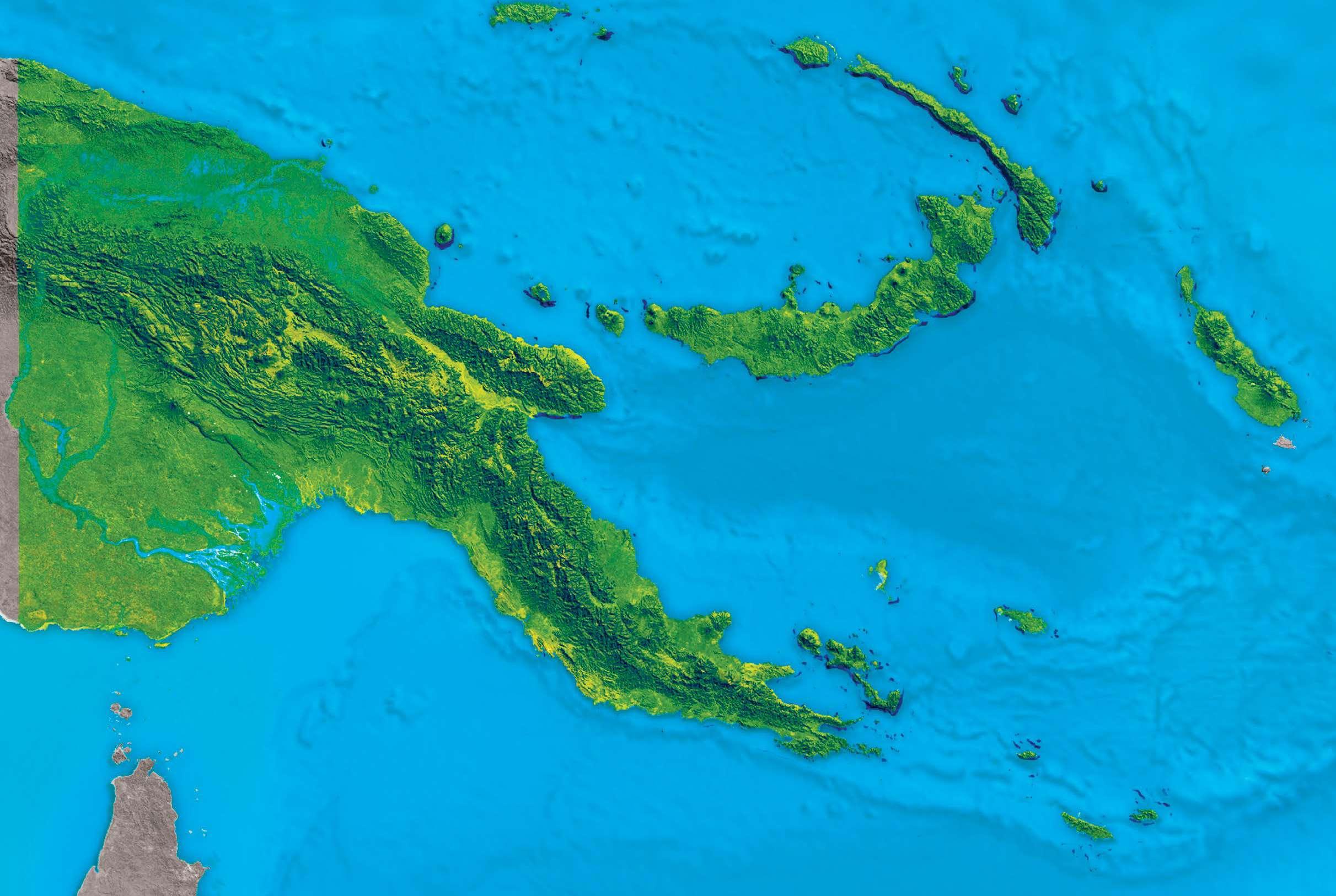























































































































































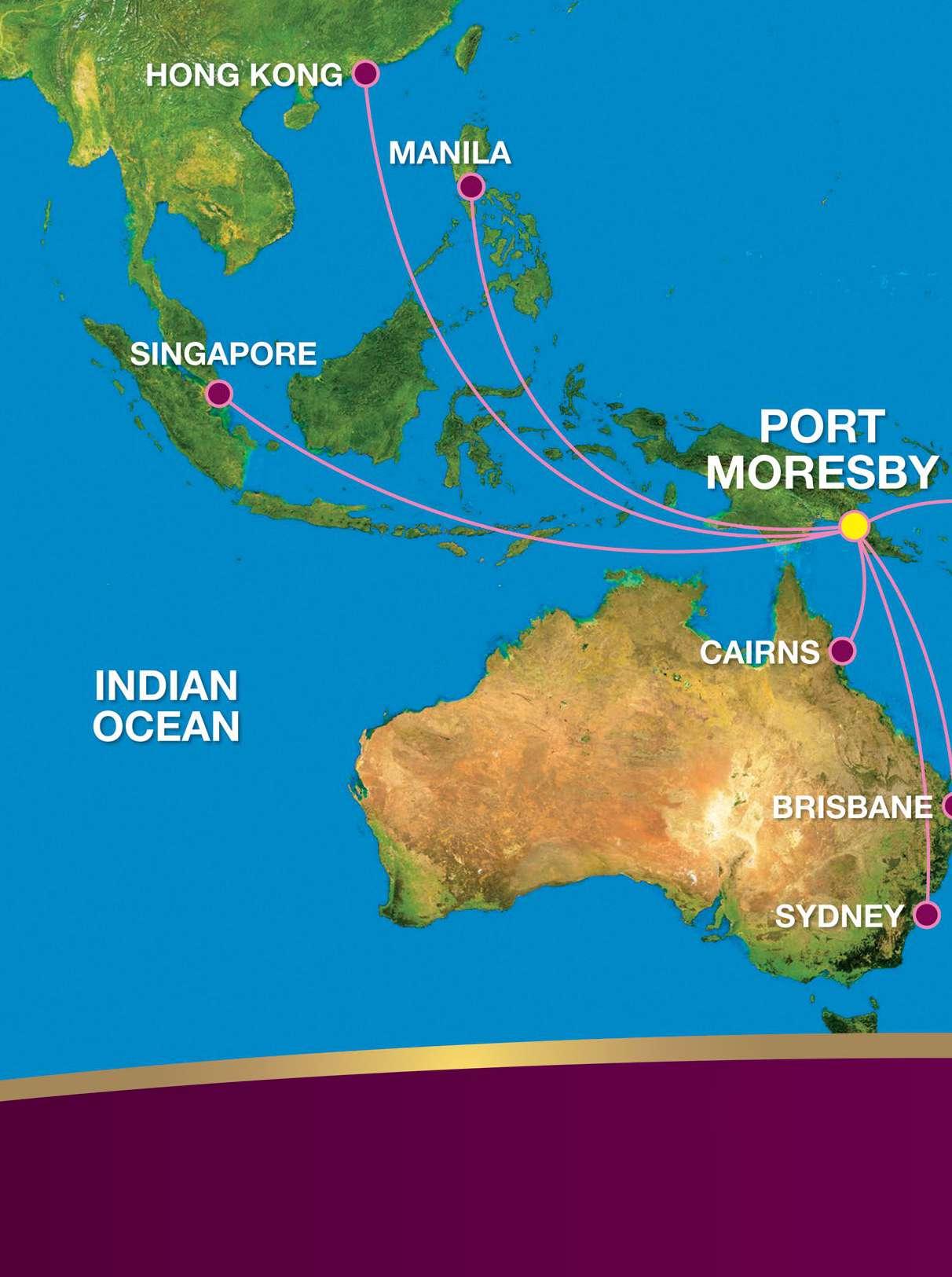
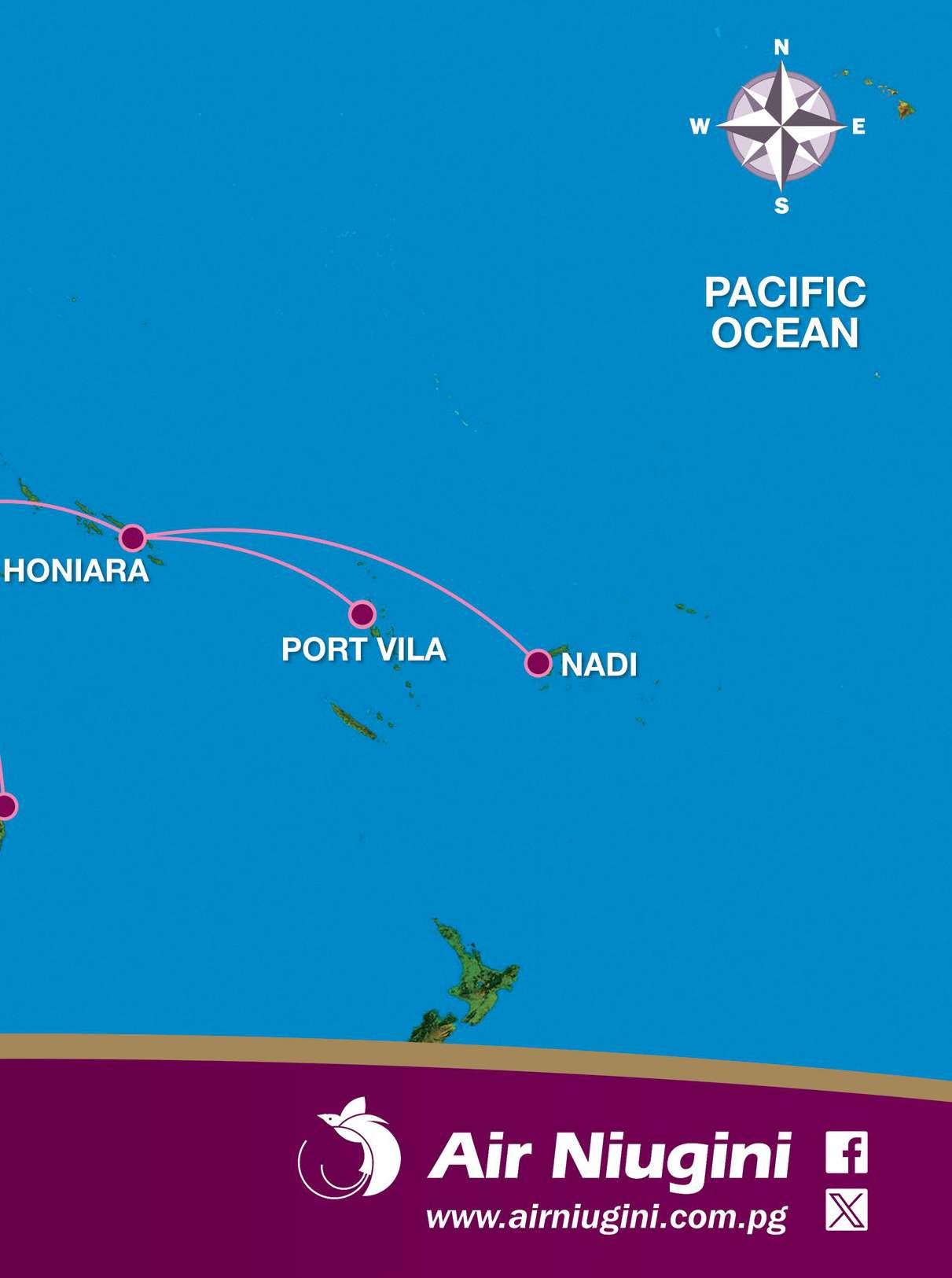
These exercises are designed to encourage a safe way to enjoy movement and stretch certain muscle groups that can become stiff as a result of long periods of sitting. They may be effective in increasing the body’s circulation and massaging the muscles. We recommend you do these exercises for three or
four minutes every hour and occasionally get out of your seat and walk down the aisles if conditions allow. Each exercise should be done with minimal disturbance to other passengers. None of the following should be performed if they cause pain or cannot be done with ease.


ANKLE CIRCLES
Lift feet off the floor: Draw a circle with toes, simultaneously moving one foot clockwise and the other foot counter clockwise. Reverse circles. Do each direction for 15 seconds. Repeat if desired.
KNEE LIFTS
Lift leg with knee bent while contracting your thigh muscle. Alternate legs. Repeat 20-30 times for each leg.
Hunch shoulders forward, then upward, then backward, then downward using a gentle circular motion.
Start with arms held high at 90° angleelbows down, hands out in front. Raise hands up to chest and back down alternating arms. Do these exercises in 30 second intervals.
KNEE TO CHEST
Bend forward slightly. Clasp hands around left knee and hug it to your chest. Hold stretch for 15 seconds. Keeping hands around knee, slowly let it down. Alternate legs. Repeat 10 times.
With both feet on the floor and stomach held in slowly, bend forward to walk your hands down the front of your legs towards your ankles. Hold stretch for 15 seconds and slowly sit back up.
Raise both arms straight up and over your head. With one hand grasp the wrist of the opposite hand and gently pull to one side. Hold stretch for 15 seconds. Repeat other side.
SHOULDER STRETCH
Reach right hand over left shoulder.
Place left hand behind right elbow and gently press elbow towards shoulder. Hold stretch for 15 seconds. Repeat other side.
With shoulders relaxed, drop ear to shoulder and gently roll neck forward and to the other side, holding each position about 5 seconds. Repeat 5 times.
Foot motion is in three stages.
1. Start with both heels on the floor and point feet upwards as high as you can.
floor.
3. Lift heels high, keeping balls of feet on floor. Continue these three stages with continuous motion in 30 second intervals.
Air Niugini Pg116, 119 & 138
Ashton Brunswick Pg61
Atlas Steel Pg13
Badili Hardware Pg115
Bank of South Pacific Pg9
Bishops Pg108
Bismark Shipping Pg47
Business Advantage International Pg117, 124 & 137
Consort Express Lines Pg109
Constantinou Group Pg2
Corps Security Pg122
CreditBank PNG Pg14
Credit Corporation Properties Pg52
Cross Roads Transit Pg45
Crown Hotel Pg45
Datec Pg82
Duffy Cafe Pg112
Dulux Pg3
EastWest Transport Pg16
Ela Motors Pg73
ExxonMobil Ltd Pg140
Gazelle International Hotel Pg77
Goroka Coffee Pg92
Guard Dog Group Pg81
Hastings Deering Pg69
Heritage Park Hotel Pg101
Hertz Pg118
Hotels Hospitality Pg105
ICTSI Pg37
Island Mobile Hire Cars Pg11
International Training Institute Pg51
Internal Revenue Commission Pg43
Kanda International Pg102
Kapi & Clarke Pg87
Kokopo Beach Bungalow Resort Pg68
Kongo Coffee Pg90
KPMG PNG Pg84
Kumul Petroleum Holdings Ltd Pg71
Kwila Corp Ltd Pg53
Lae International Hotel Pg85
Mapai Transport Pg139
Marriot Pg114
Master System Technologies Pg87
Minpac PNG Pg55
Moni Plus Pg86
Mineral Resources Authority Pg125
Nasfund Pg4 & 5
NCI Packaging Pg107
Niugini Assurance Group Pg66 & 74
Pacific Energy Aviation Pg30
Pacific Palms
PropertyHarbourside Dev Ltd Pg19
Panamex Pg93
Paradise Foods Pg97
Pinhalense Pg76
Plawa Sun LtdKavieng Hotel Pg50
Plawa Sun LtdMalagan Resort Pg20
PNG Coffee Pg95
PNG Core Pg33
PNG Embroidery Pg42
PNG Forest Products Pg67
Portside Gardens Pg59
Pronto Pg12
Santos Pg31
Smarthills Pg72
Steamships Corporate Pg23
Swire Shipping Pg63
TCB Travel Pg27
Theodist Pg83
Tourism Solomons Pg100
Tropic Air Pg62
Trukai Industries Ltd
Pg89
Tufi Resort Pg21
Vanguard International Pg123
Vodafone PNG Pg75
Walindi Plantation Resort Pg15
Westpac Bank Pg17
Wisdom PNG Pg18
WRC PNG Pg49




Today the fleet has grown to be one of the most modern fleets of prime movers in PNG, Transporting of FMCG to hazardous materials (for the mining sector), to food commodities delivered to major centers.
The Mapai fleet is made up of an ever reliable modern fleet of prime movers, and is backed up by a solid rescue and recovery team strategically placed in Goroka, Mt Hagen and Lae. These fleets are backed with trailers specifically designed to withstand the rigors of the unique conditions of the Highlands Highway including fuel tankers and widening floats for over dimensional loads. Our internationally recognized systems and processes support our products and service offerings and backed by years of industry experience in our people.
No matter whether you need to move hundreds of containers along the Highlands Highway or like to send a single load throughout the Momase Region
Mapai Transport Ltd. provides ad-hoc and contracted solutions that suit your needs. With the latest technology fitted to our trucks and containers you’ll receive value information and insights for your supply chain – 24/7.
FCL, LCL, FTL, LTL, Bulk, Oversize – speak to our Customer Service today to get a quote.

We know that every customer and industry is unique. Our logistics experts have the expertise to tailor solutions matching your needs. Whether it is within Papua New Guinea or beyond.
For over a decade, the most successful companies in Papua New Guinea trust our services in handling their goods.
And we are dedicated to continue developing the best solutions and services for your needs.

Mapai Transport has grown from humble beginnings in 1987 with one truck and Jacob Luke’s desire to be the preferred transport operator on the Highlands Highway.
In an ever-changing world of regulations and policies, intricacies of Import- and Export procedures can be challenging.
Mapai Logistics Ltd has a team of dedicated employees that concentrate on providing seamless, transparent and timely services to facilitate the import and export of goods into and out of Papua New Guinea.
Connected directly to PNG’s electronic Customs System “Asycuda”, we handle your import/export duties in a secure and efficient way.
Contact Details Address : 4th Street JT’S Maman Anda Building Lae Morobe Province 411 Papua New Guinea Phone Number : +675 7092 2000
information@mapaigroup.com https://www.mapaigroup.com/
By par tnering in education, the PNG LNG Project team is helping to strengthen skills and build knowledge that will bene t young minds –and our communities – for years to come.
And with the help of our landowner companies, we’re strengthening infrastructure like clas s rooms and teacher hous ing throughout our Project area
And, for the past decade, we’ve worked closely with the Por t Mores by Nature Park to o er school children environmental and experiential learning through its beloved school excurs ion program
In collaboration with Buk Bilong Pikinini, we’ve also invested in libraries and literacy programs to ensure our lit tle ones get o to a strong star t on their academic journey
We believe that our par tners hips in education o er a wonder ful return on investment as they grow the potential of Papua New Guinea and its people They also strengthen the connection bet ween our Project and the communities we work in.
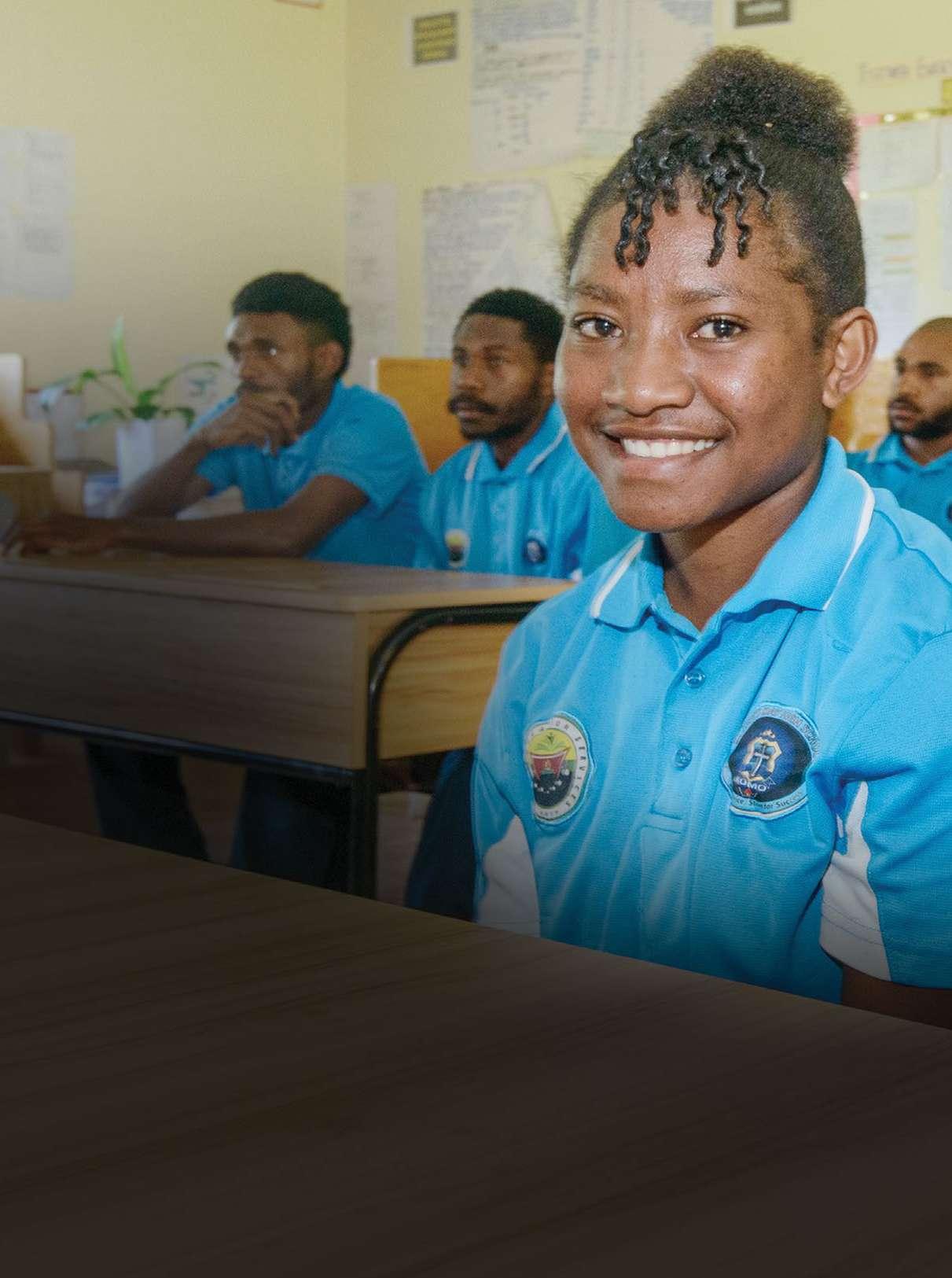
www.pnglng.com